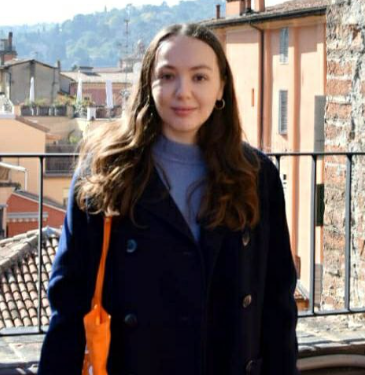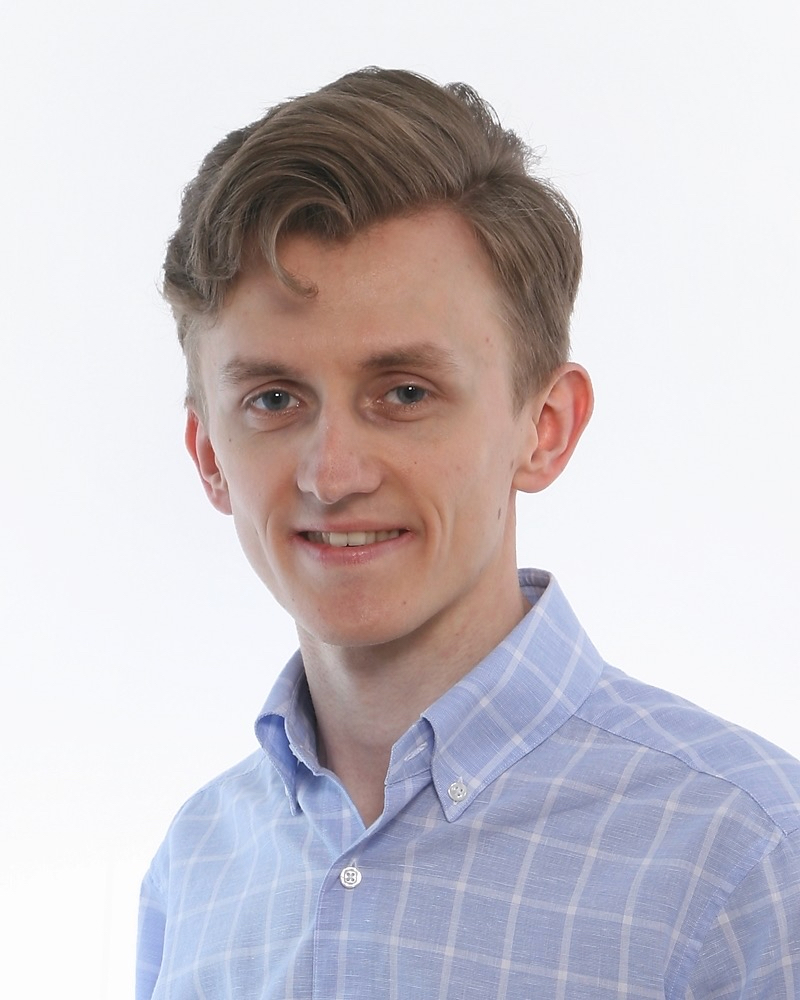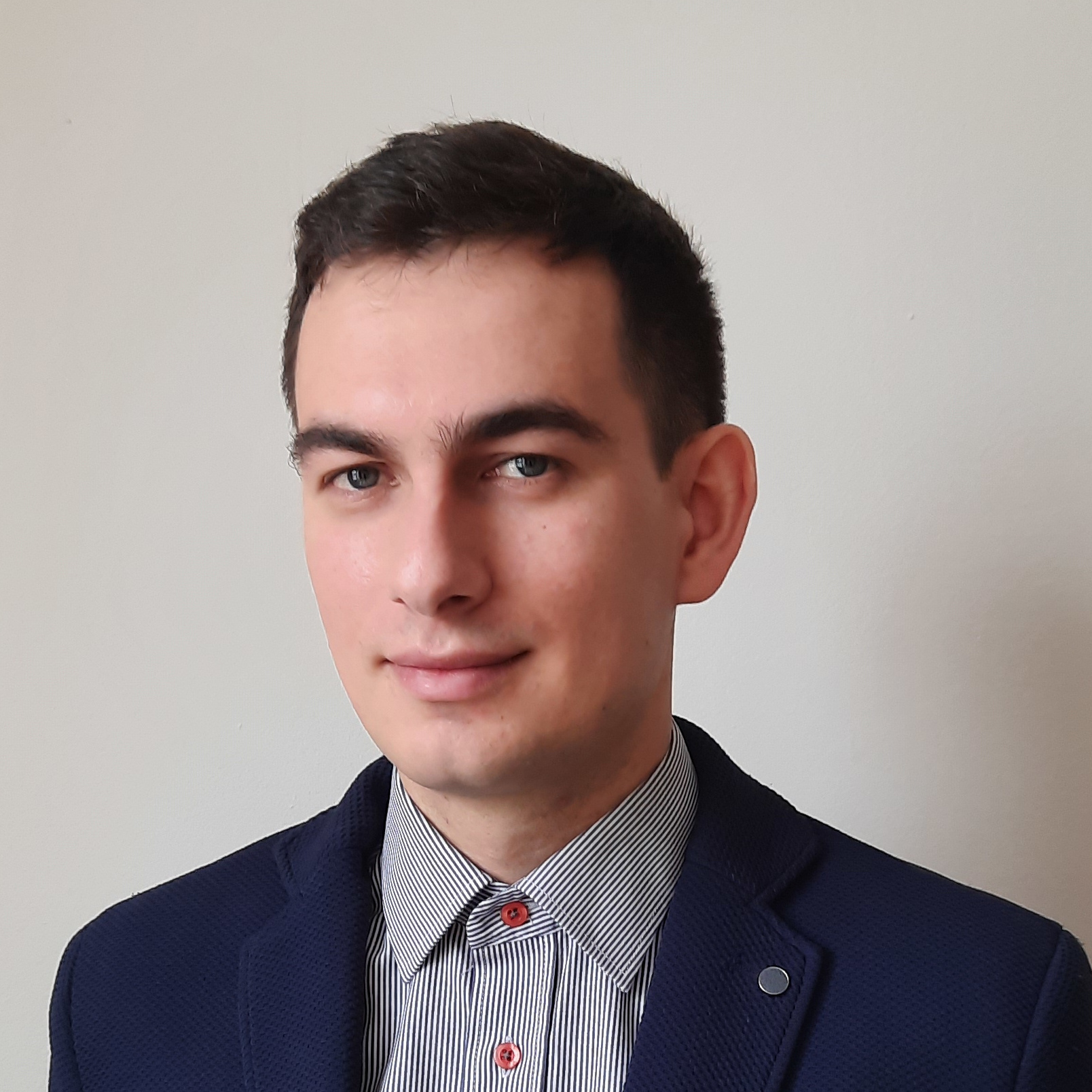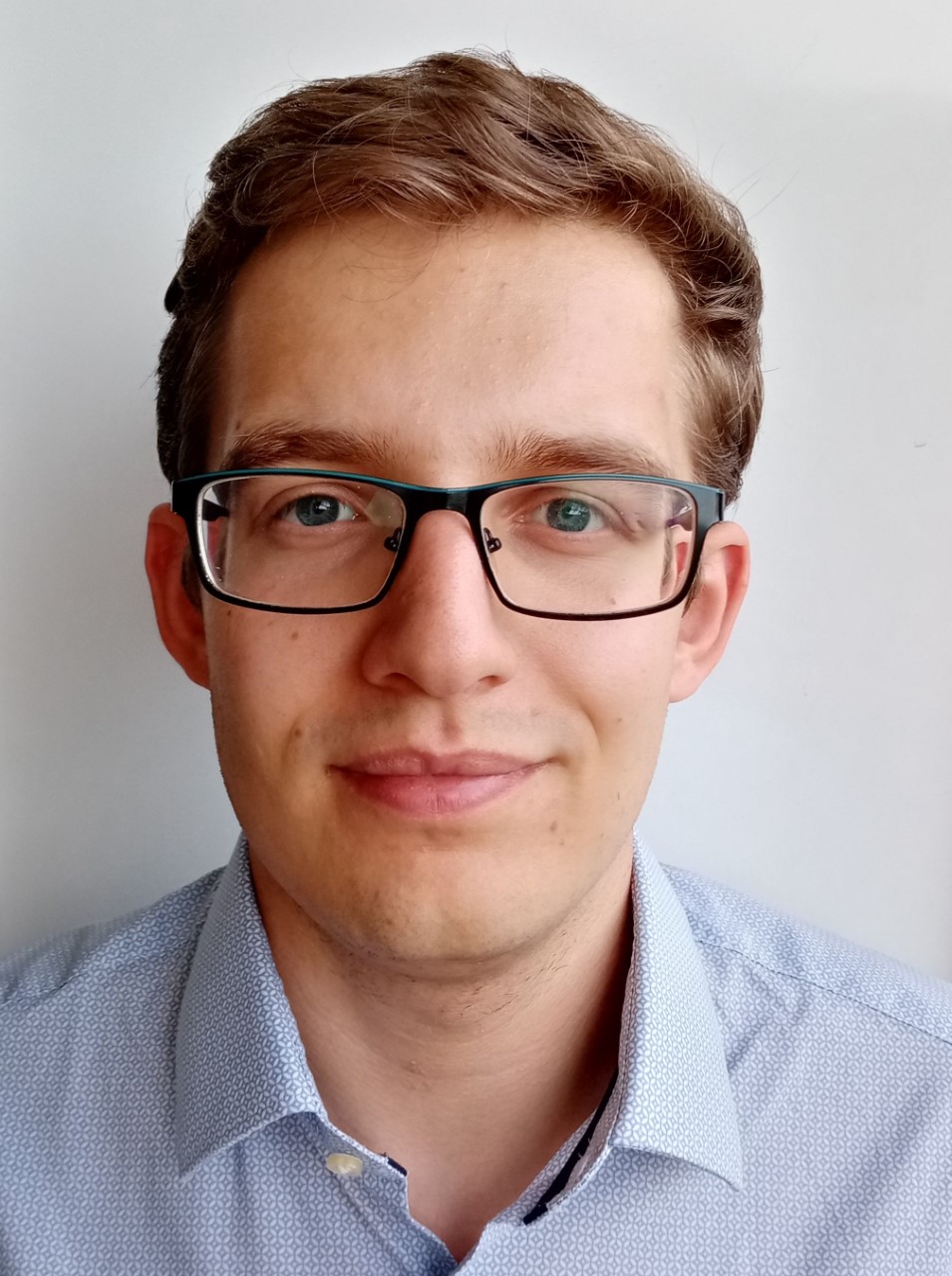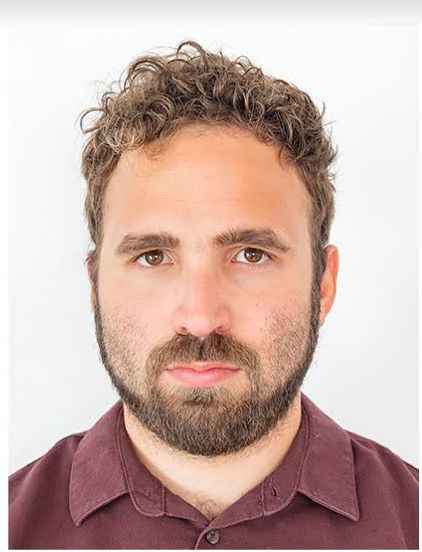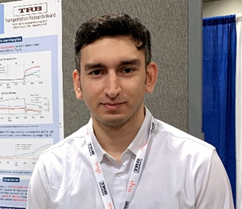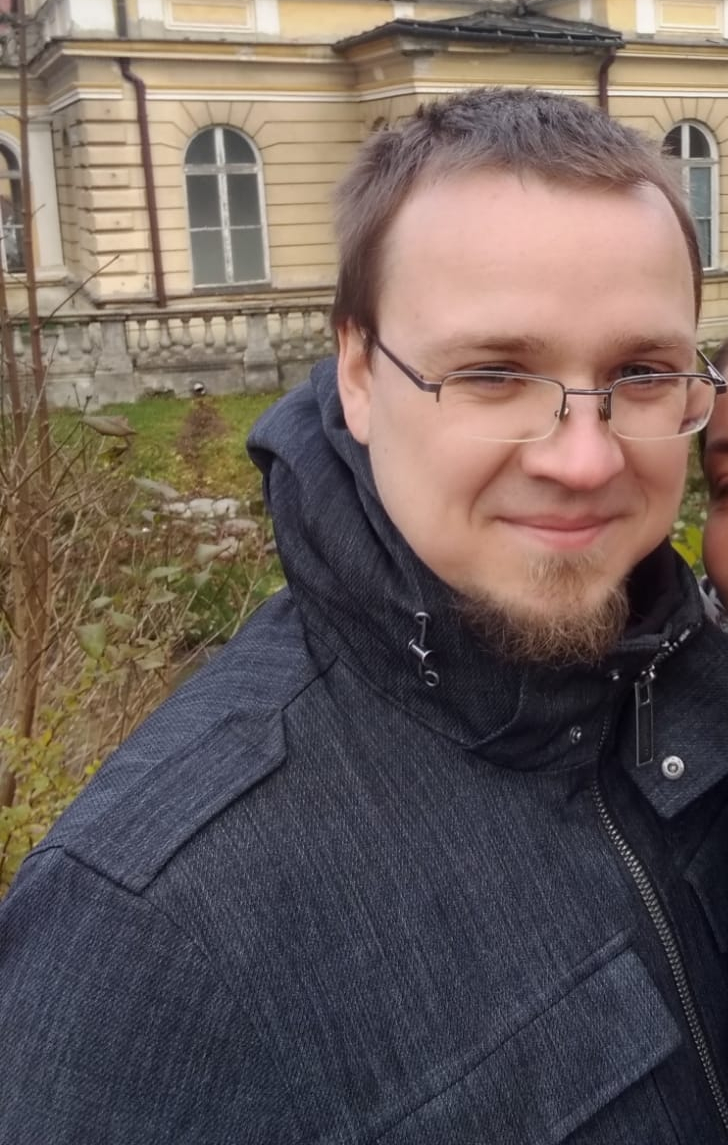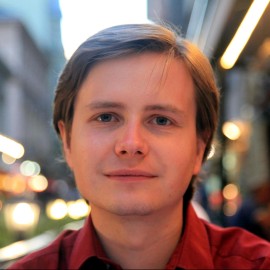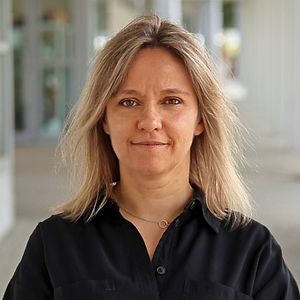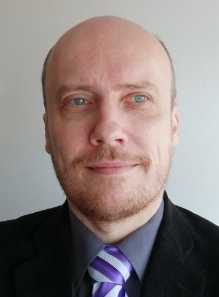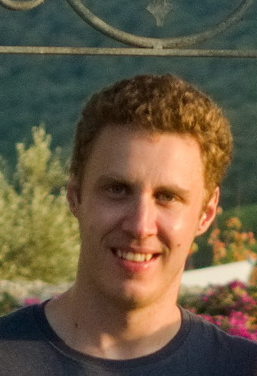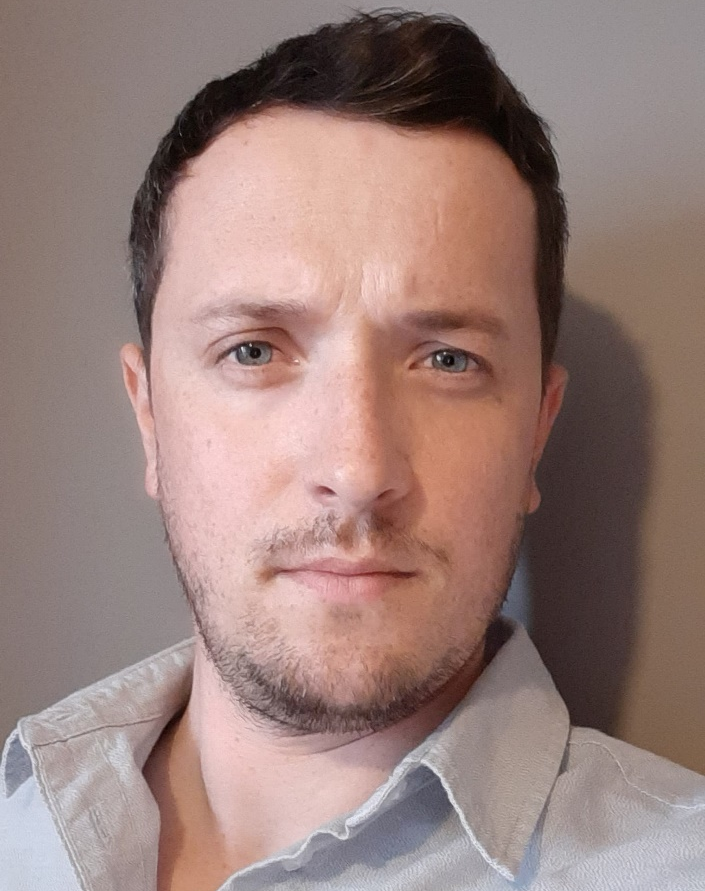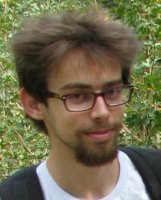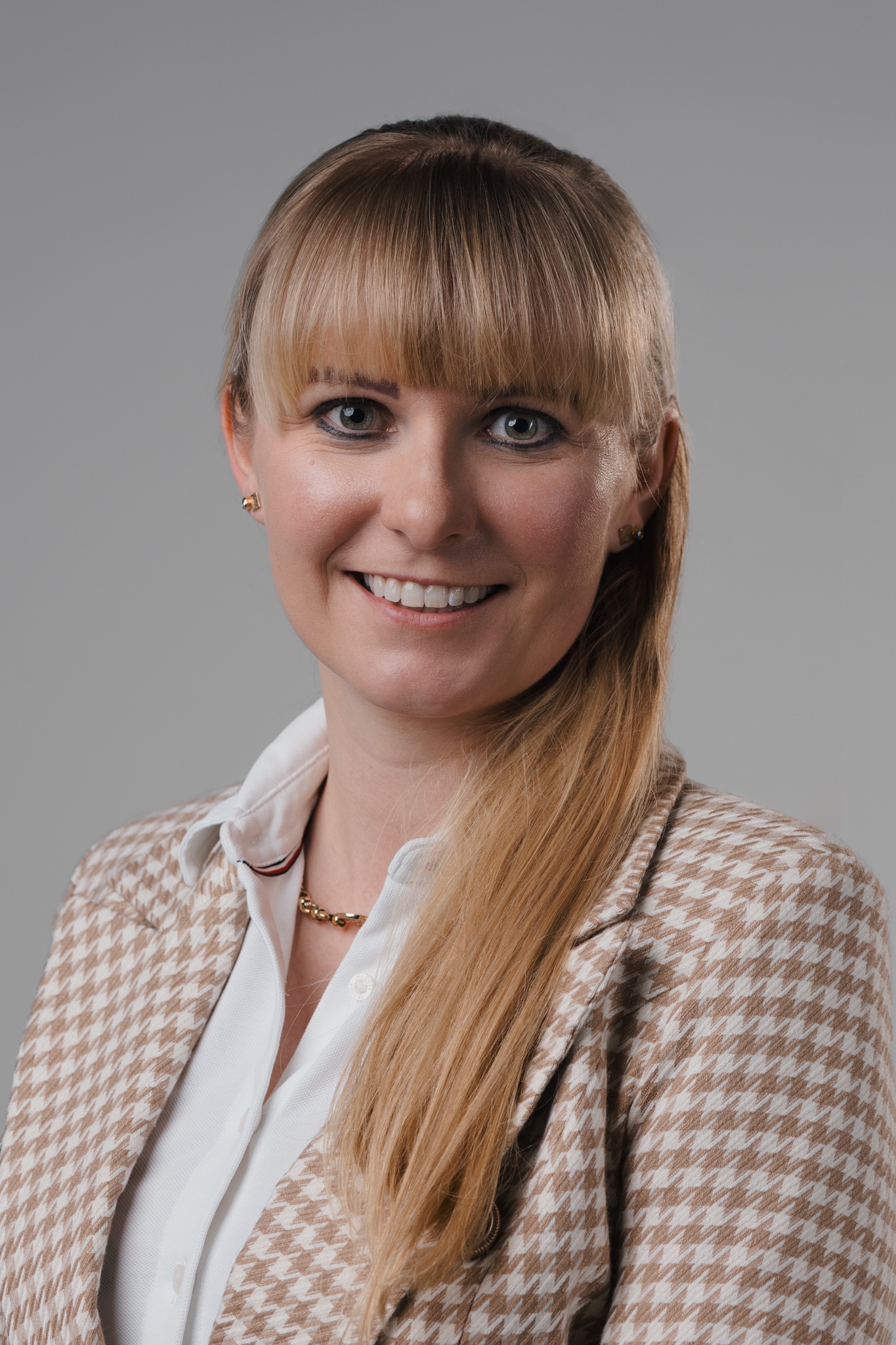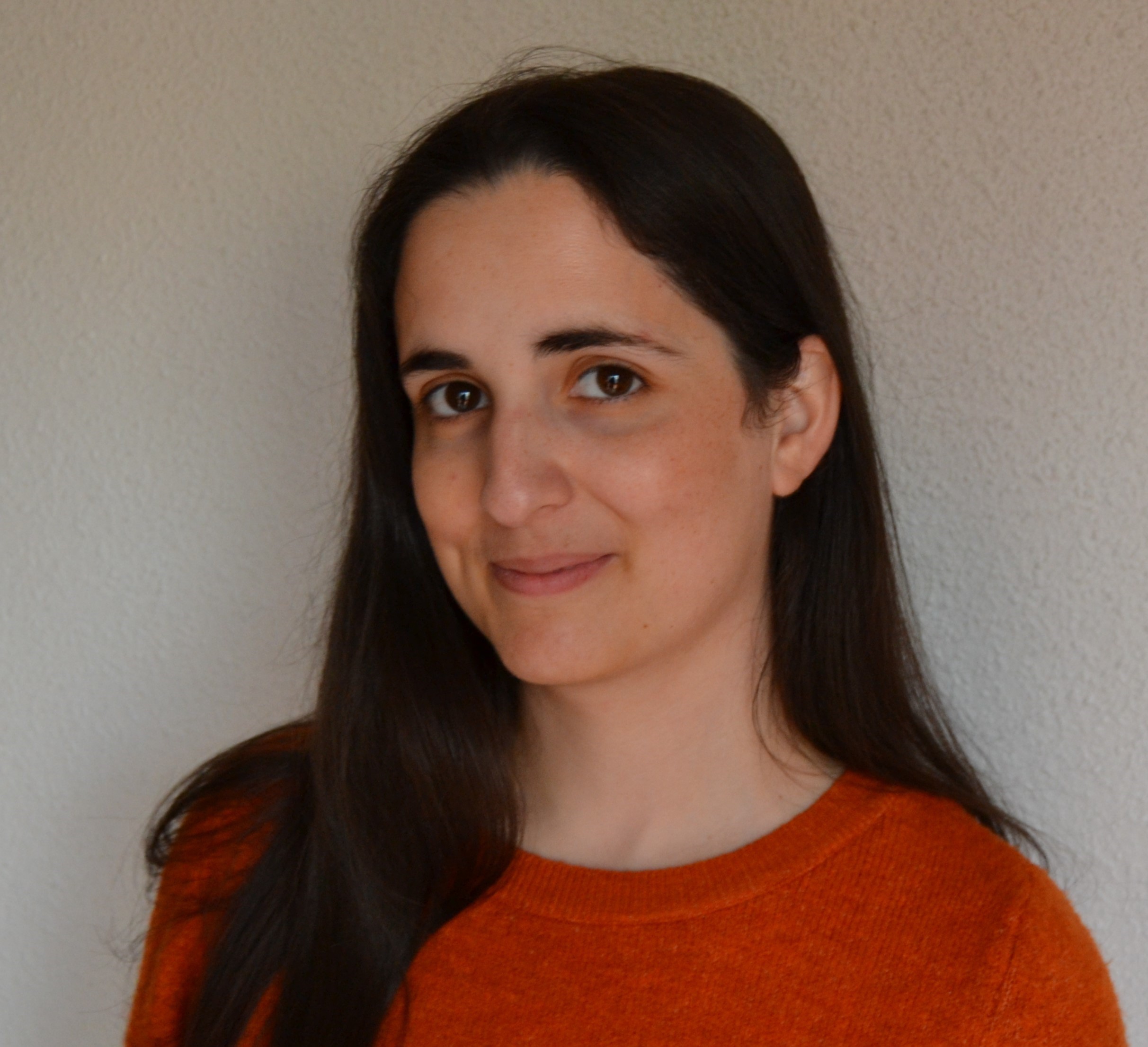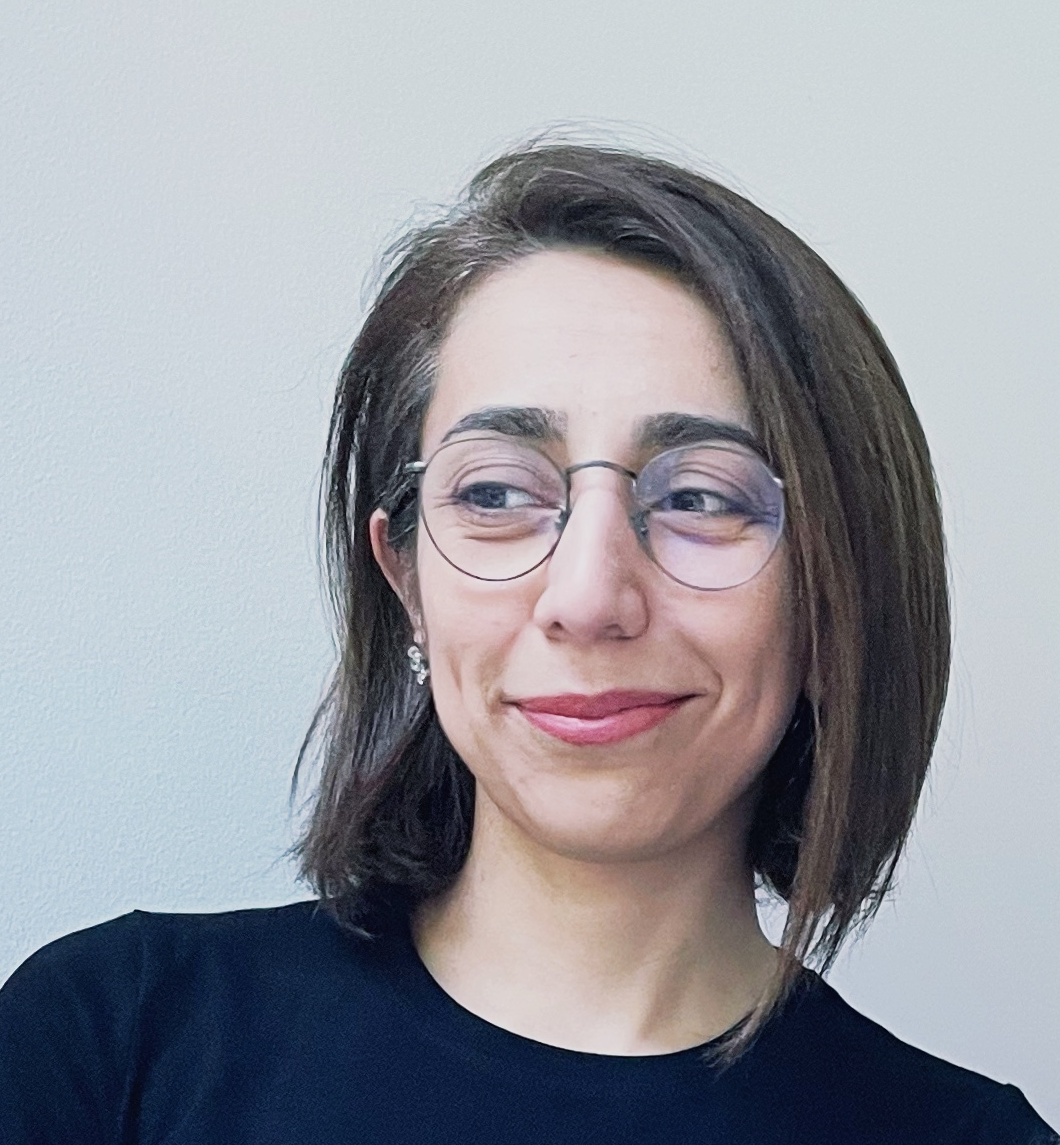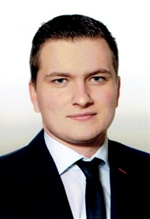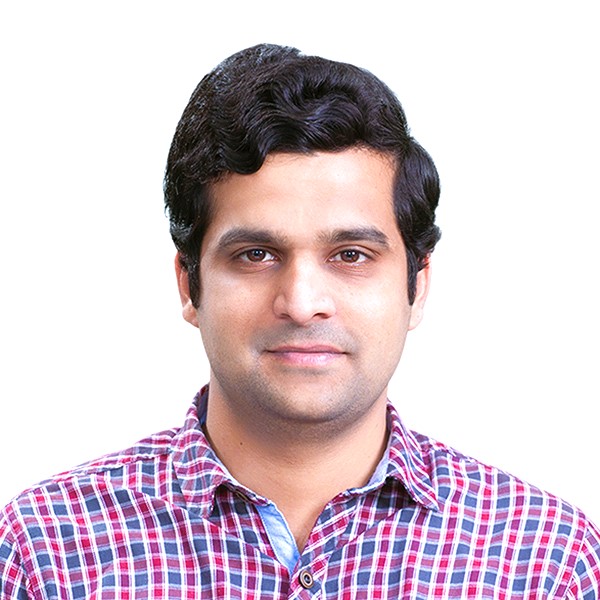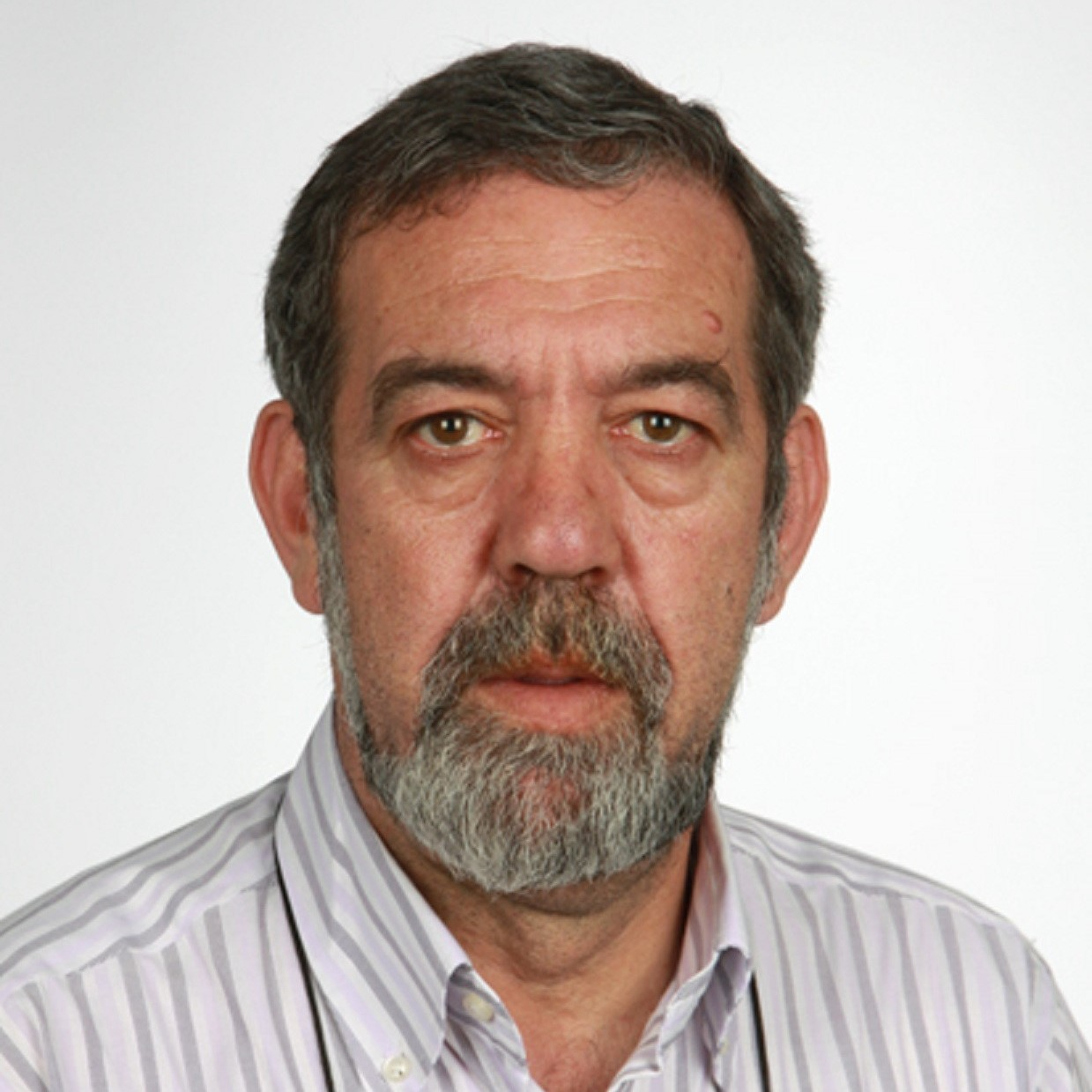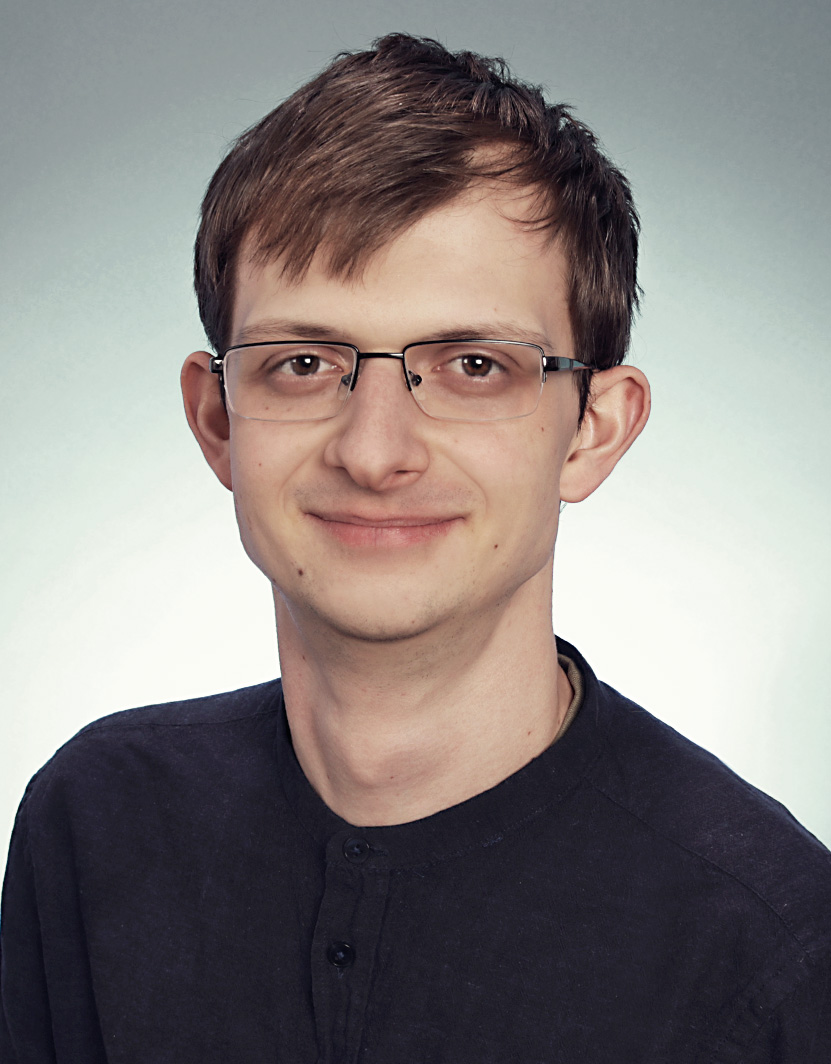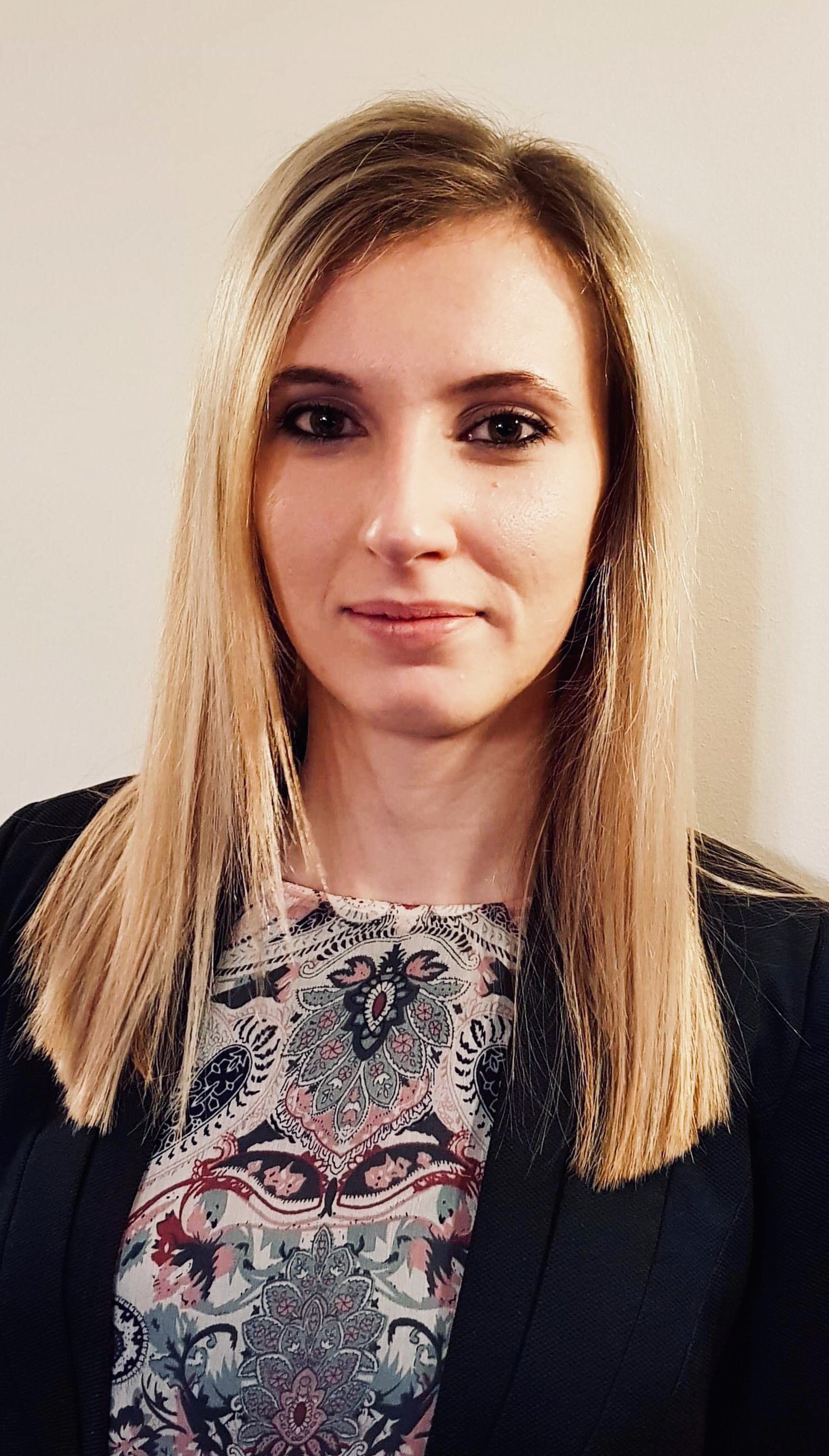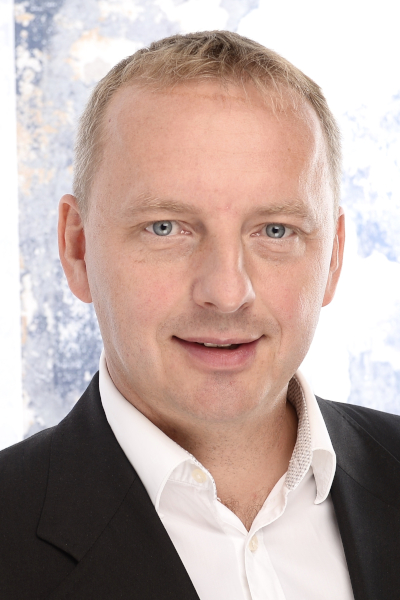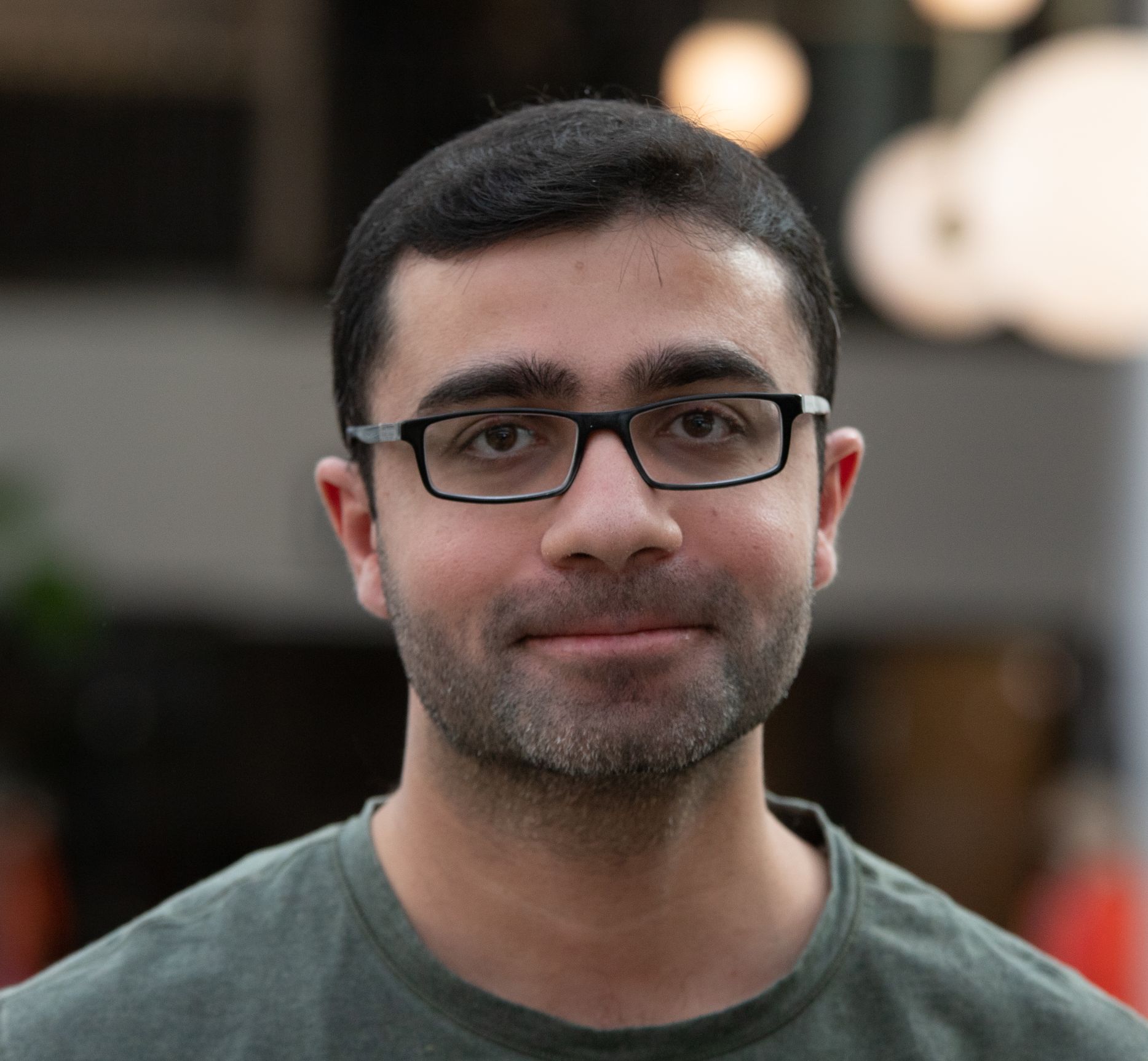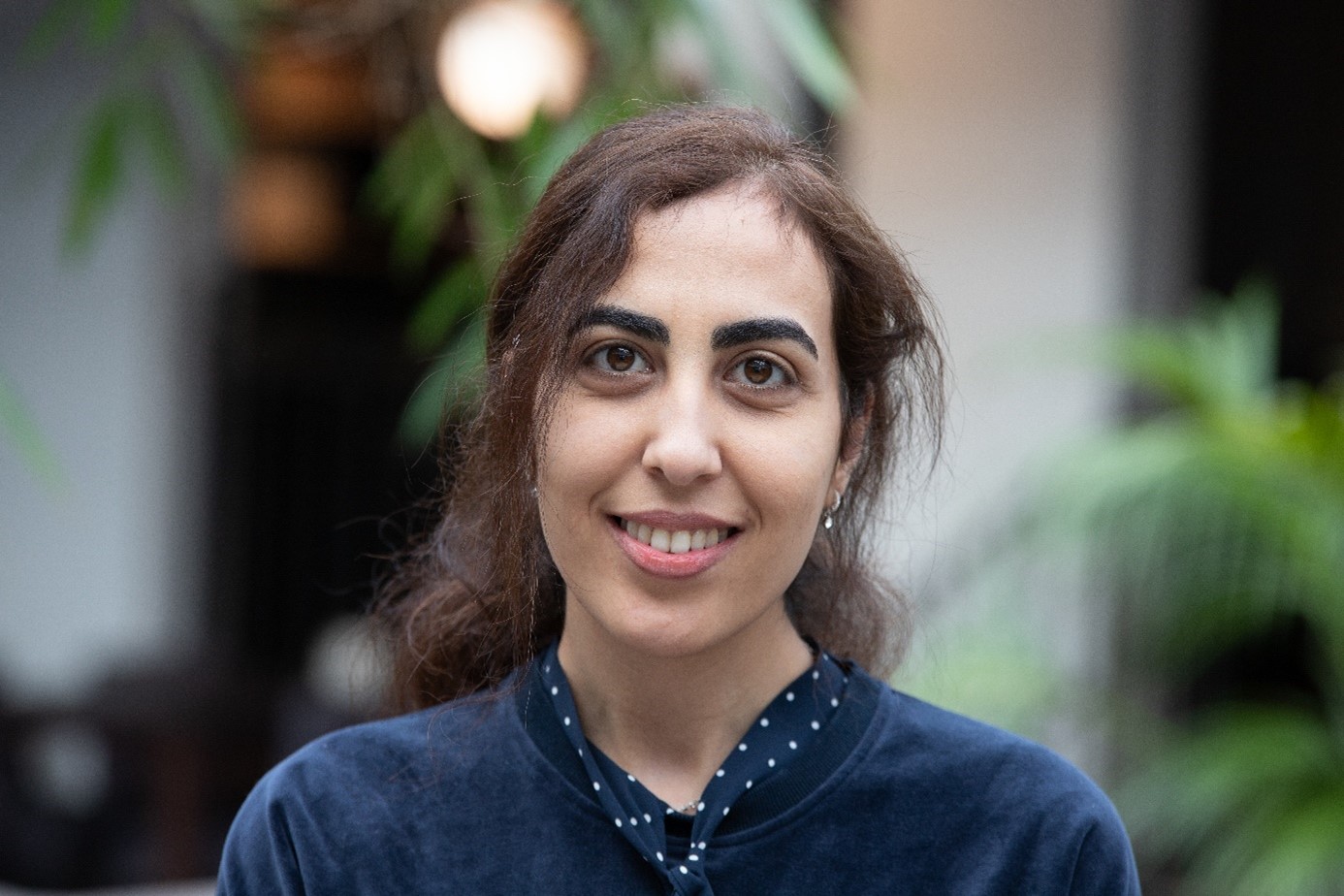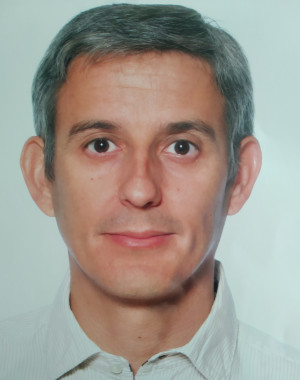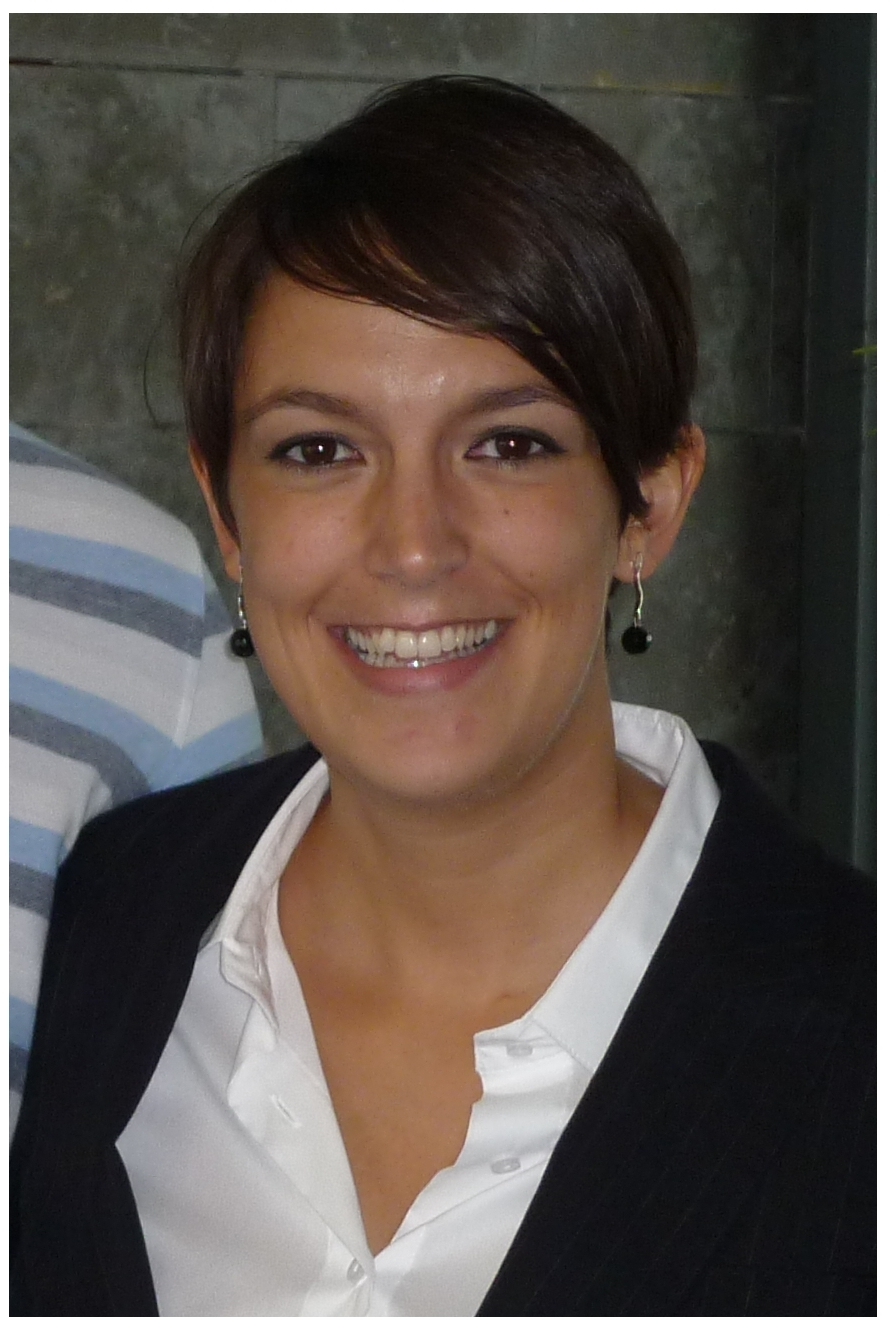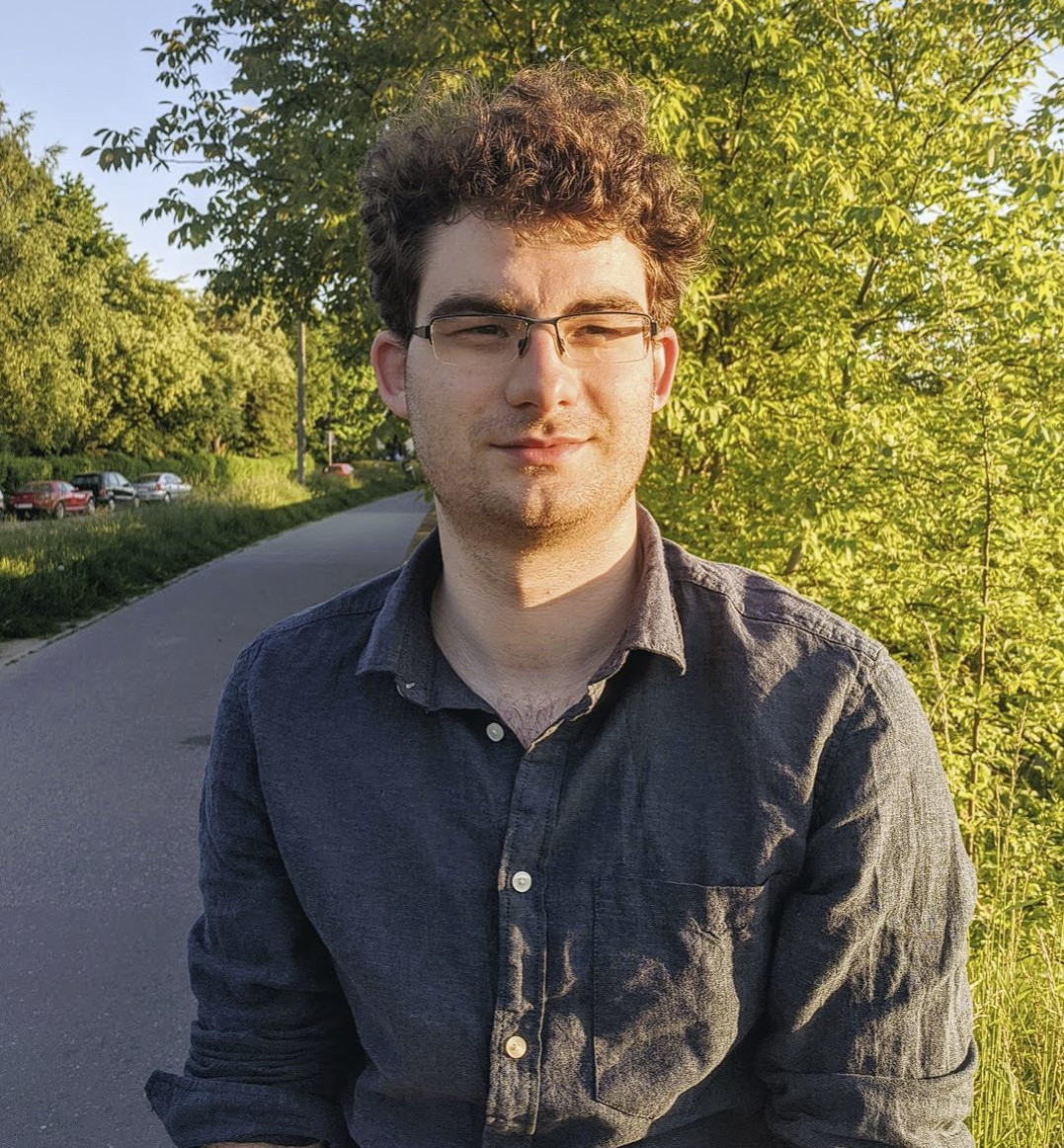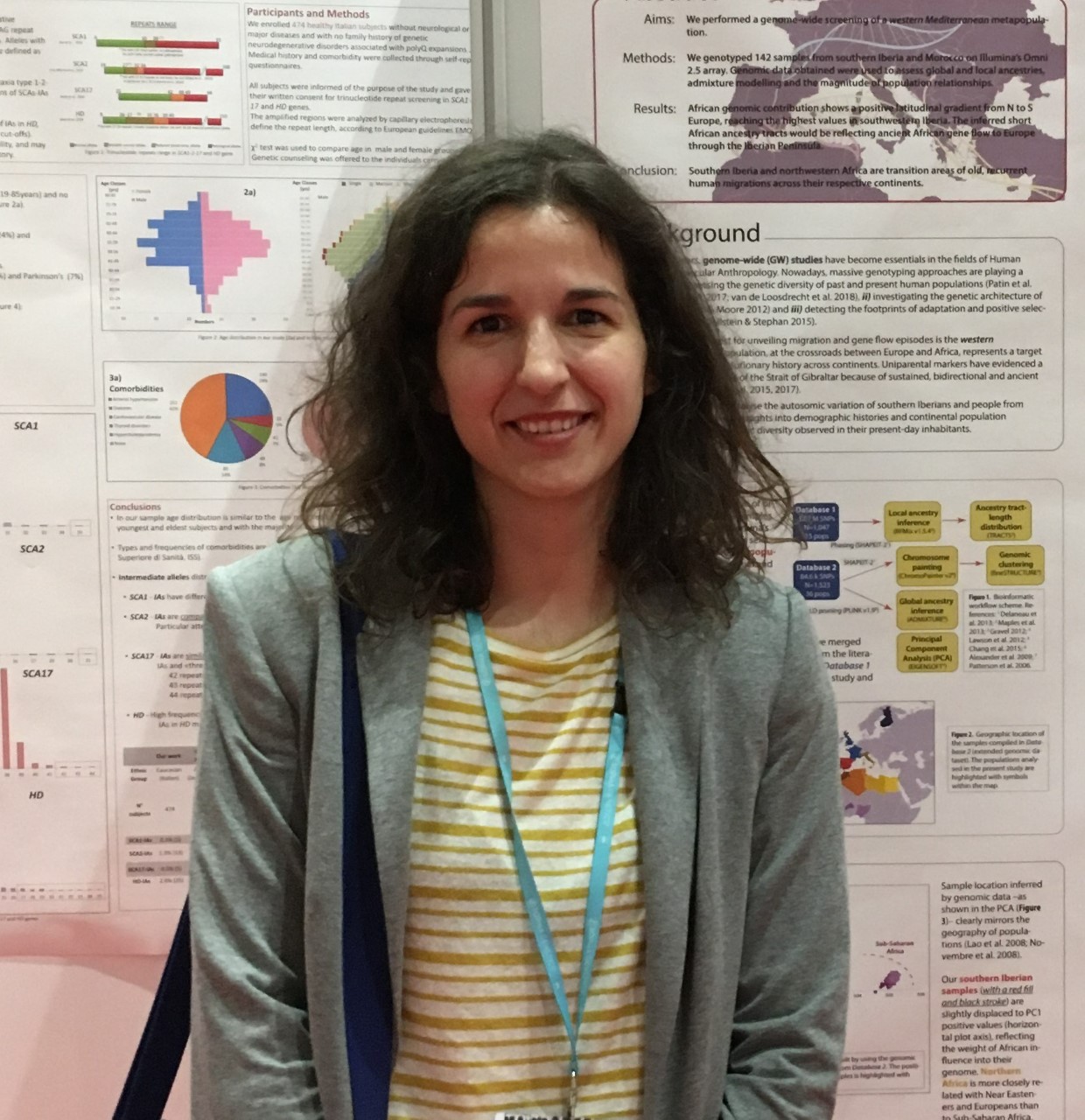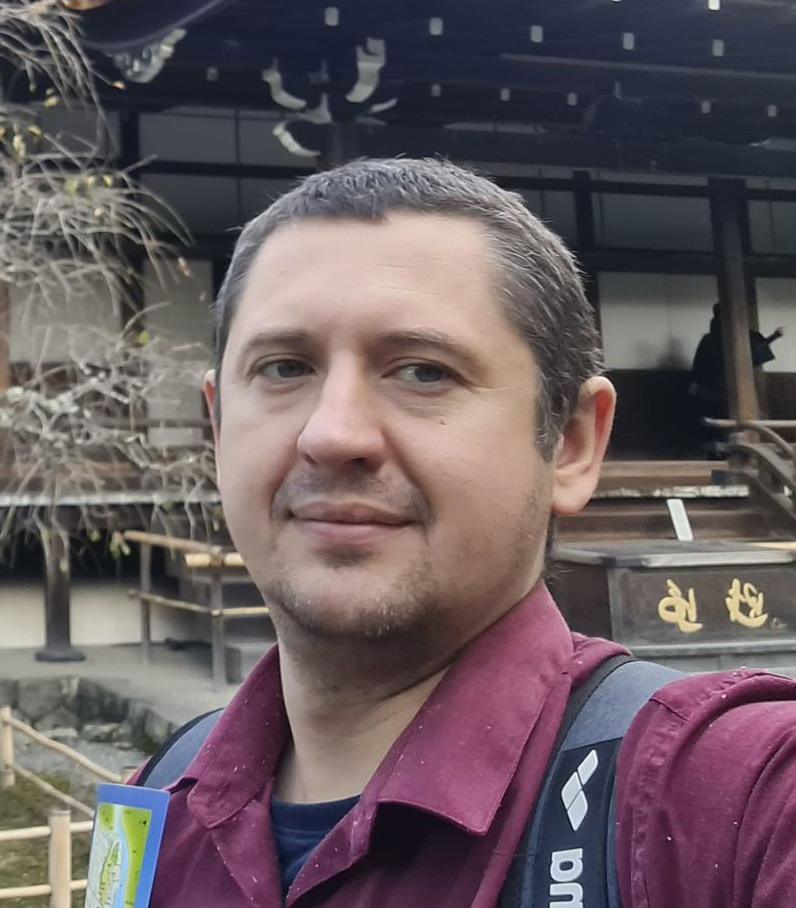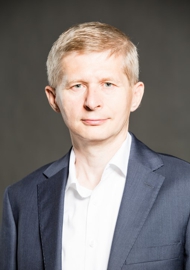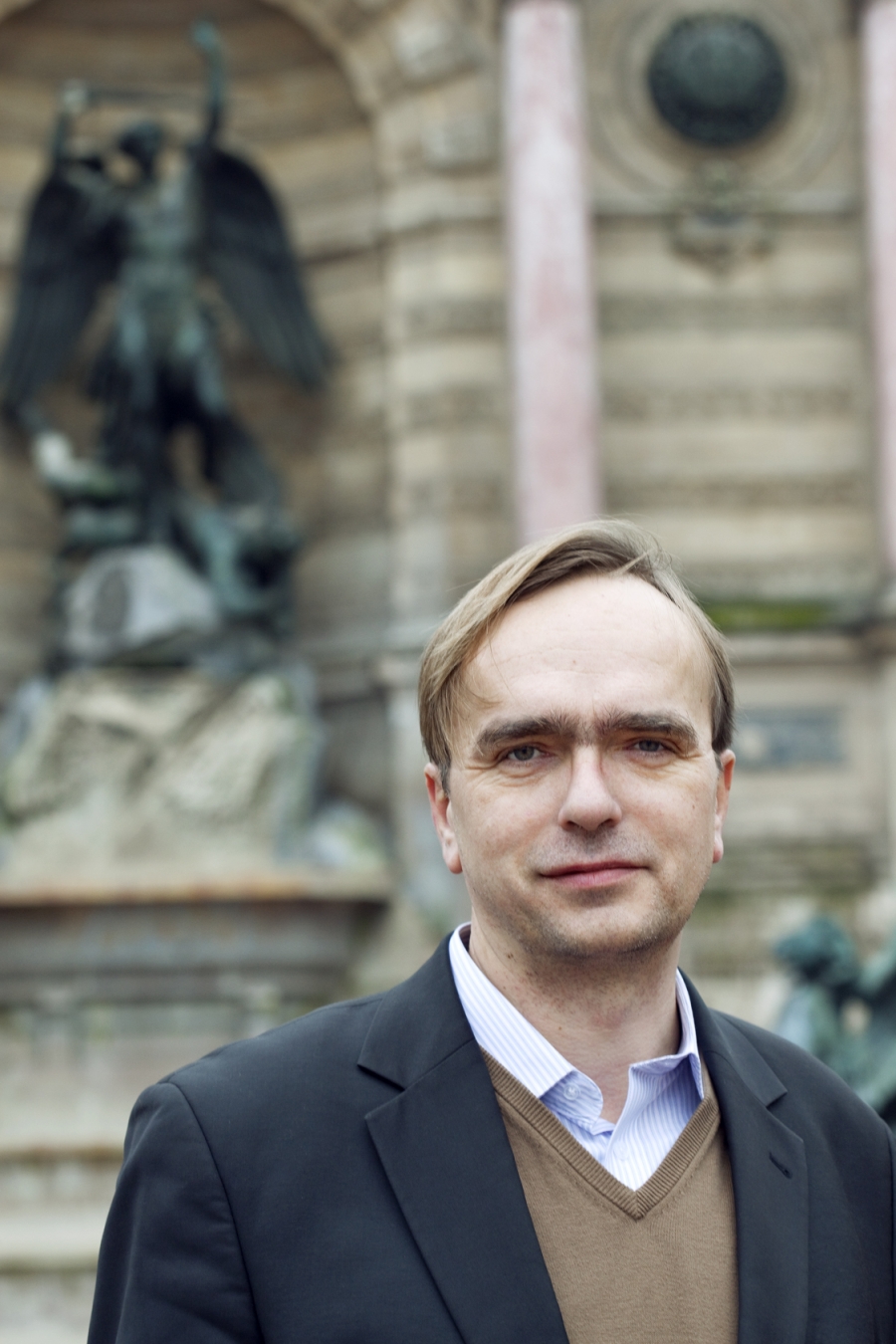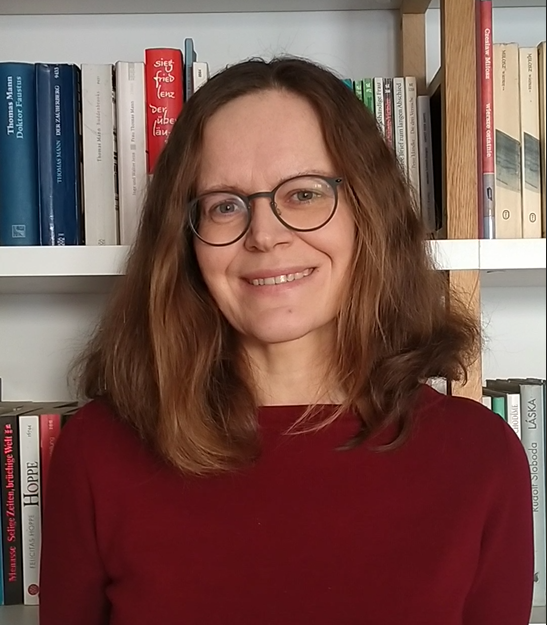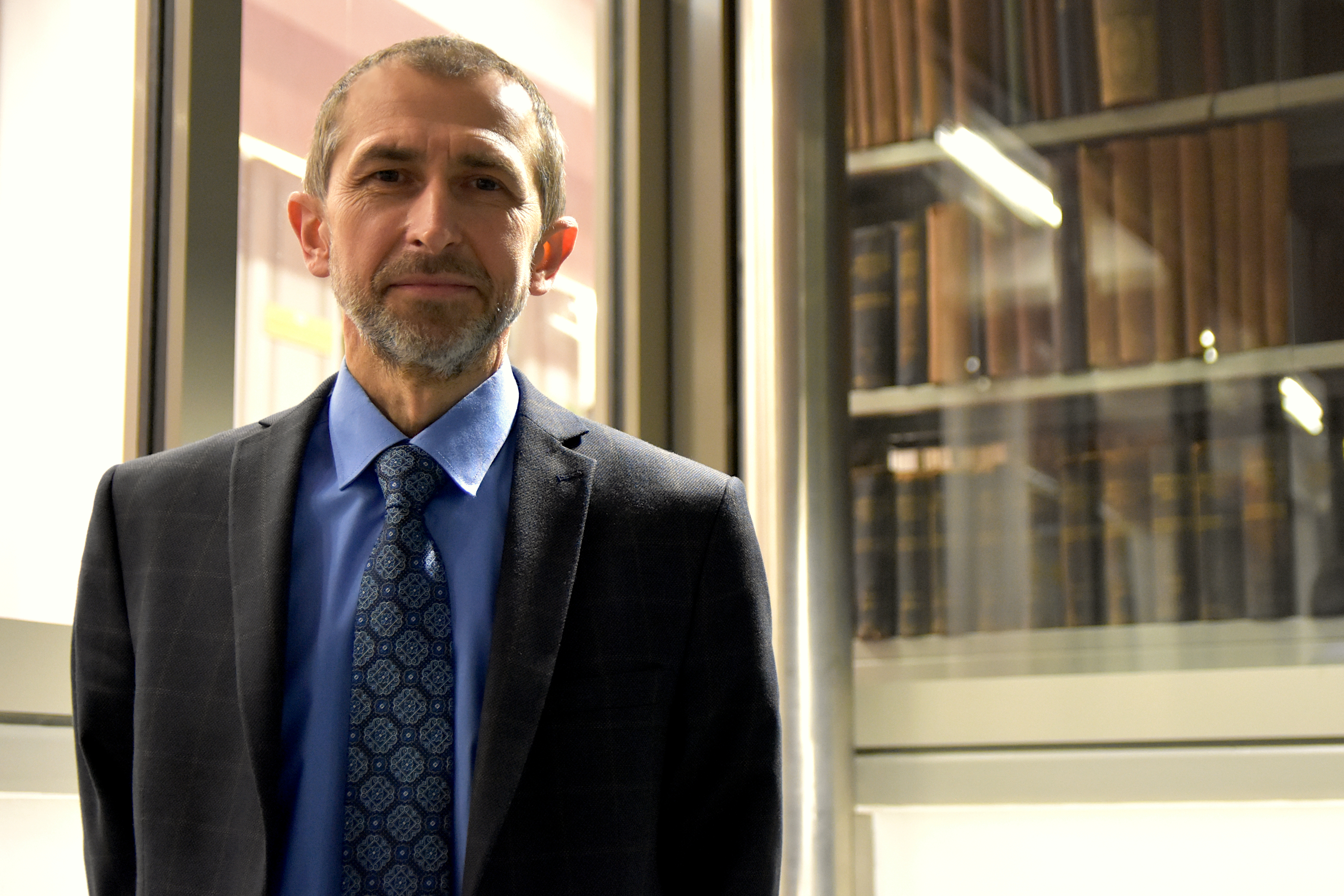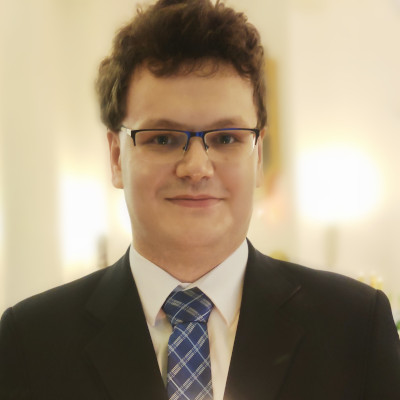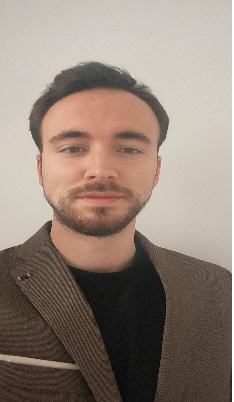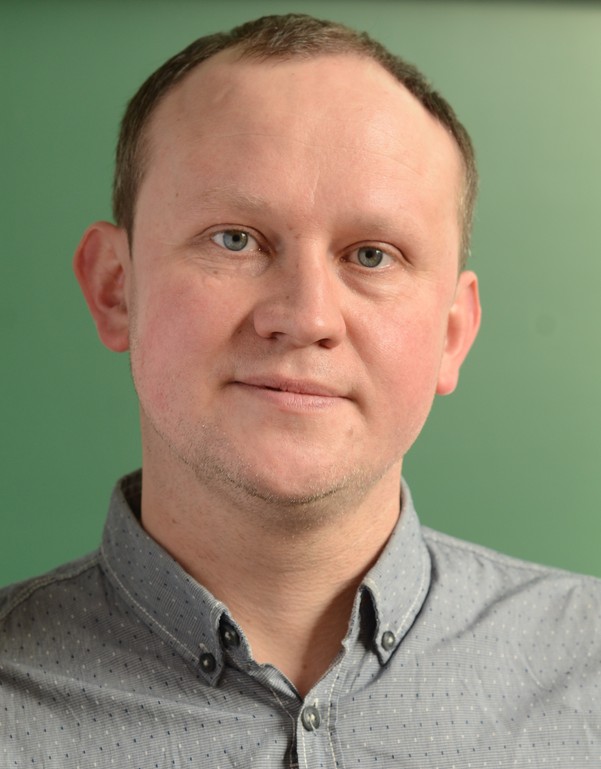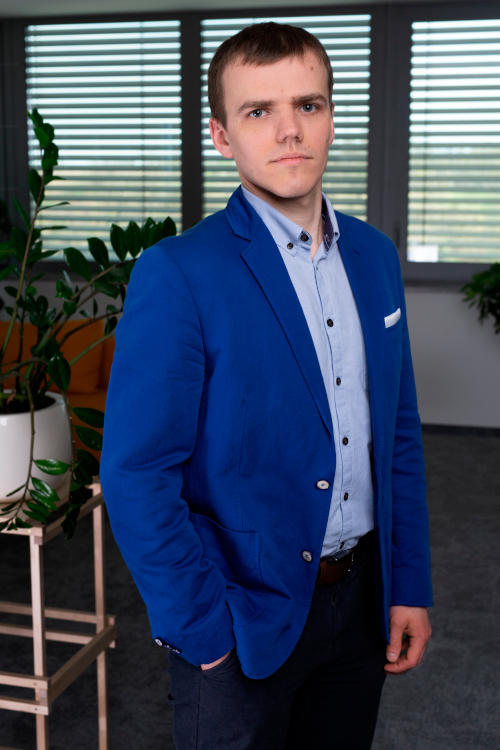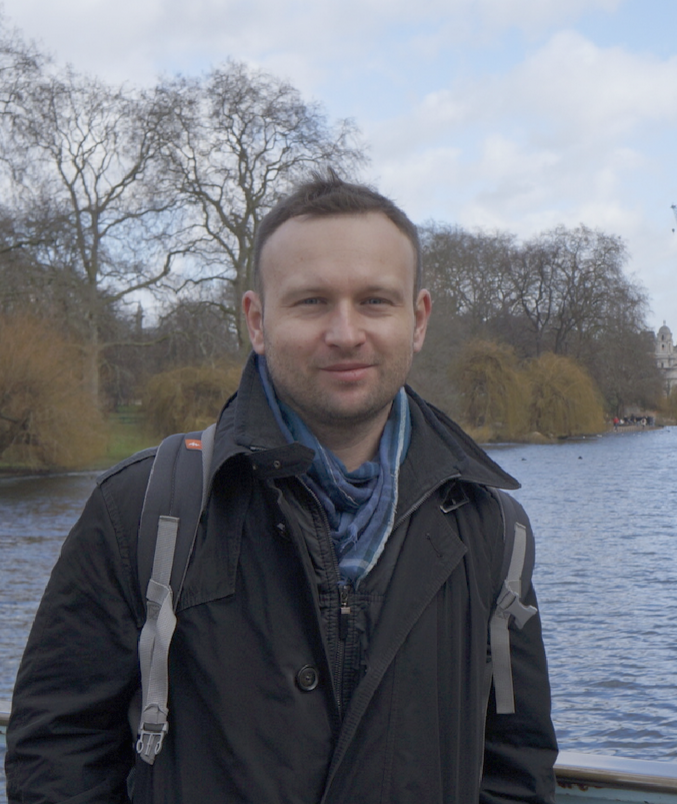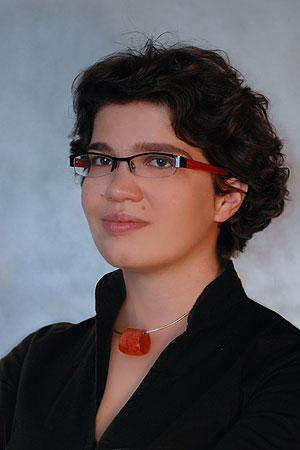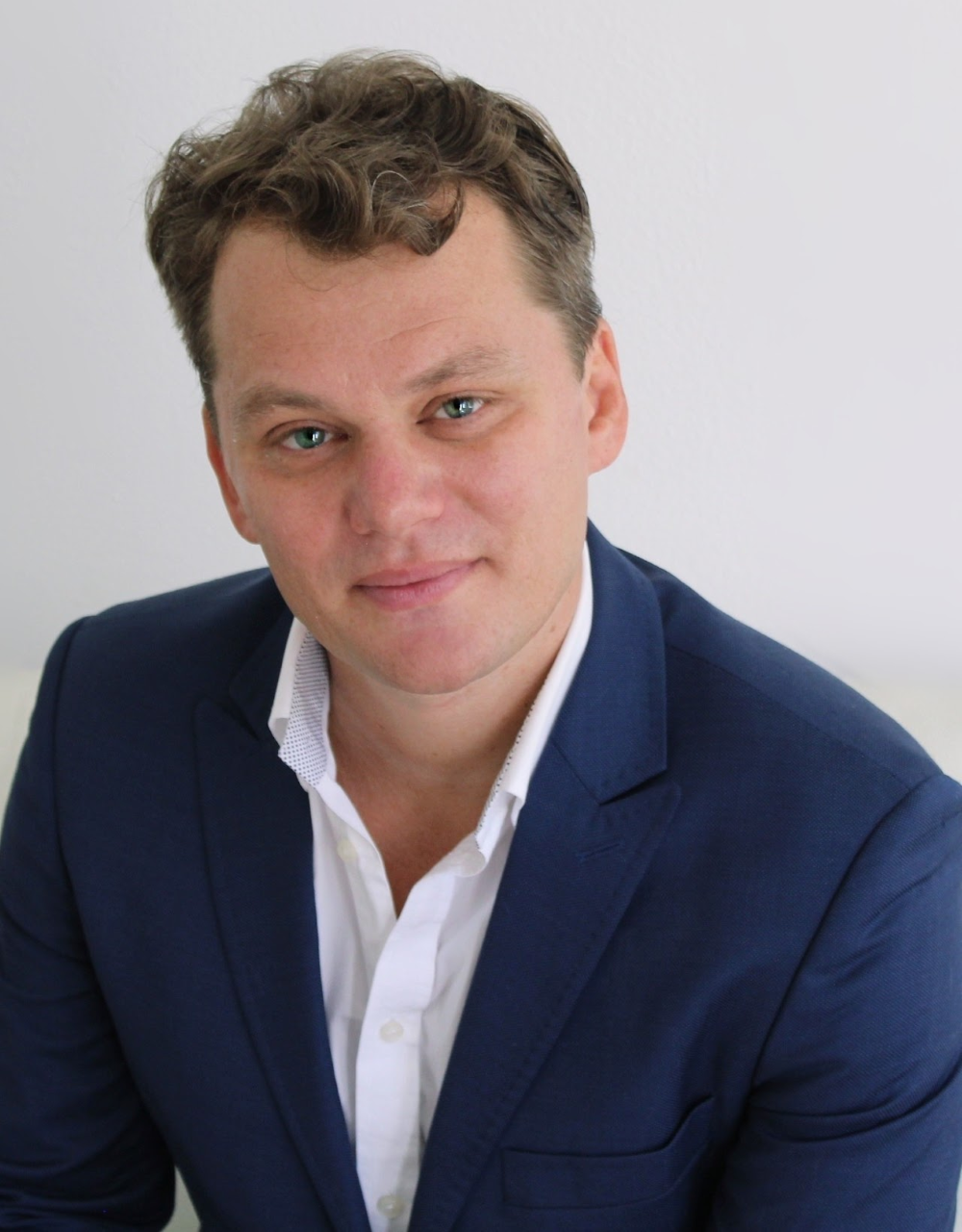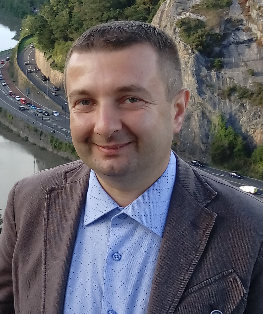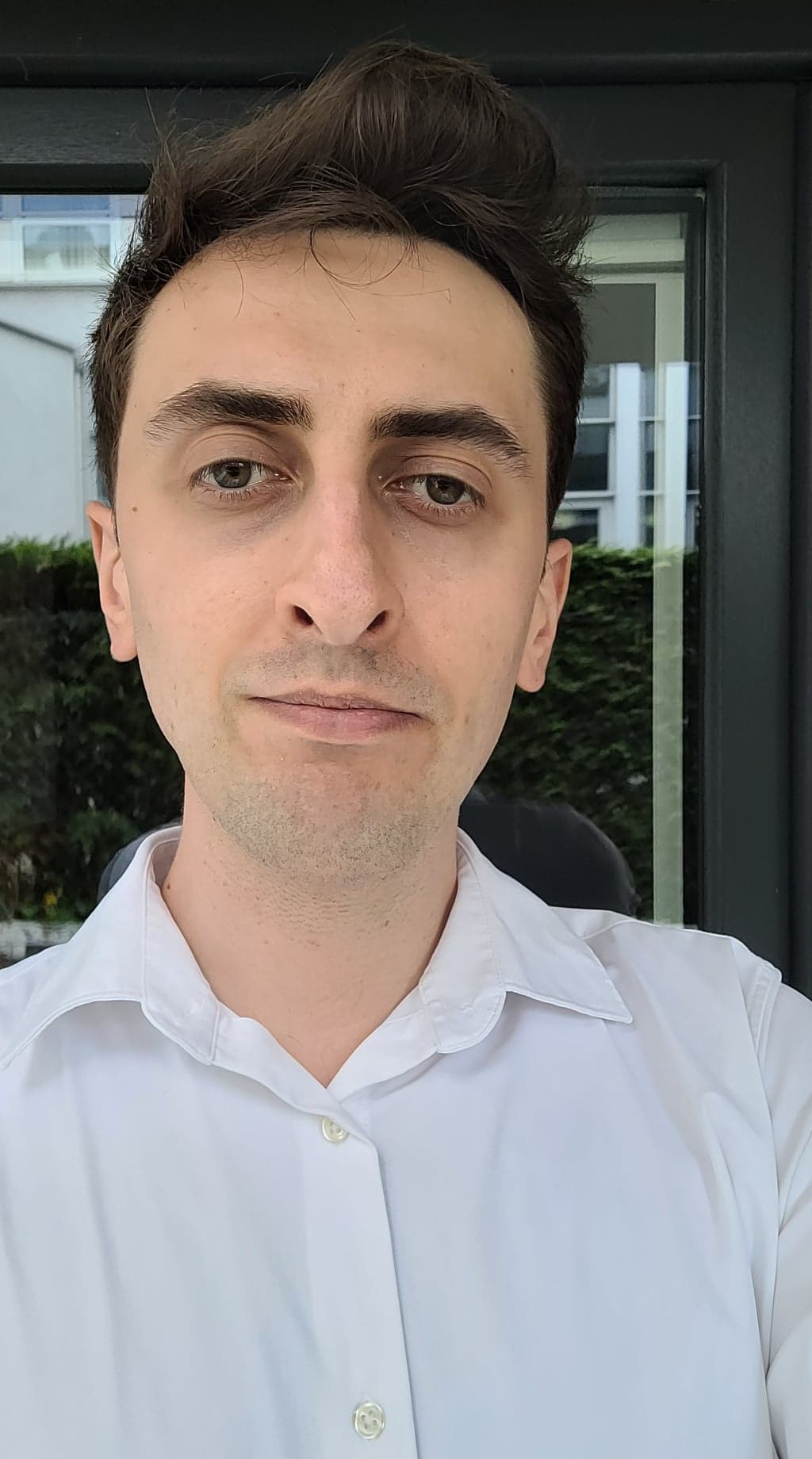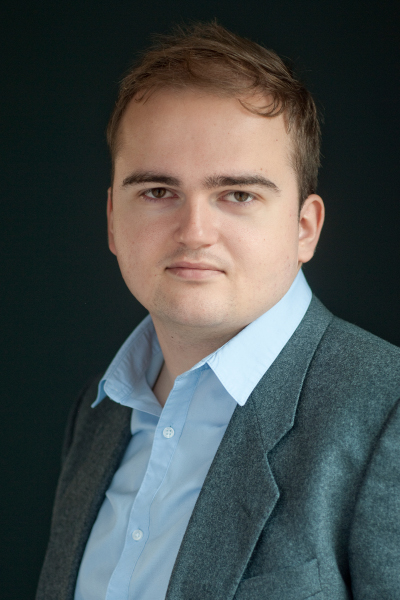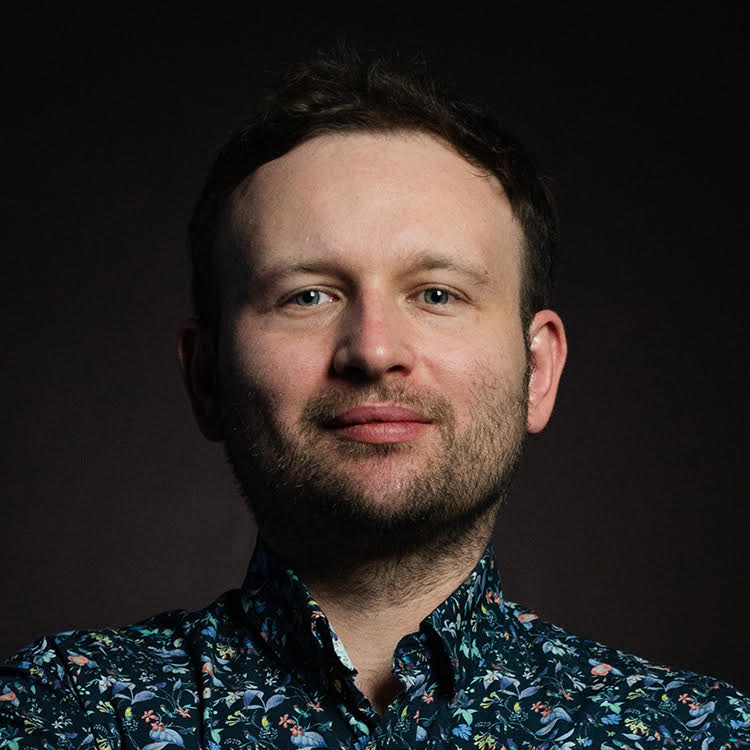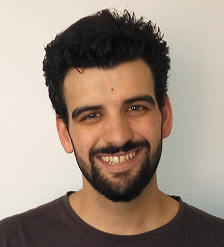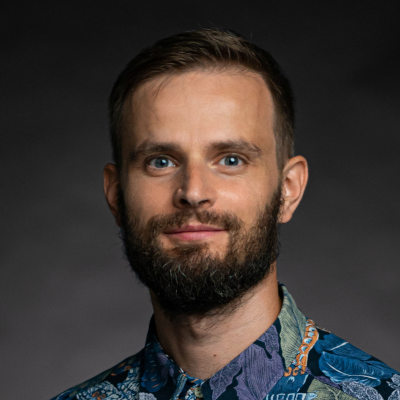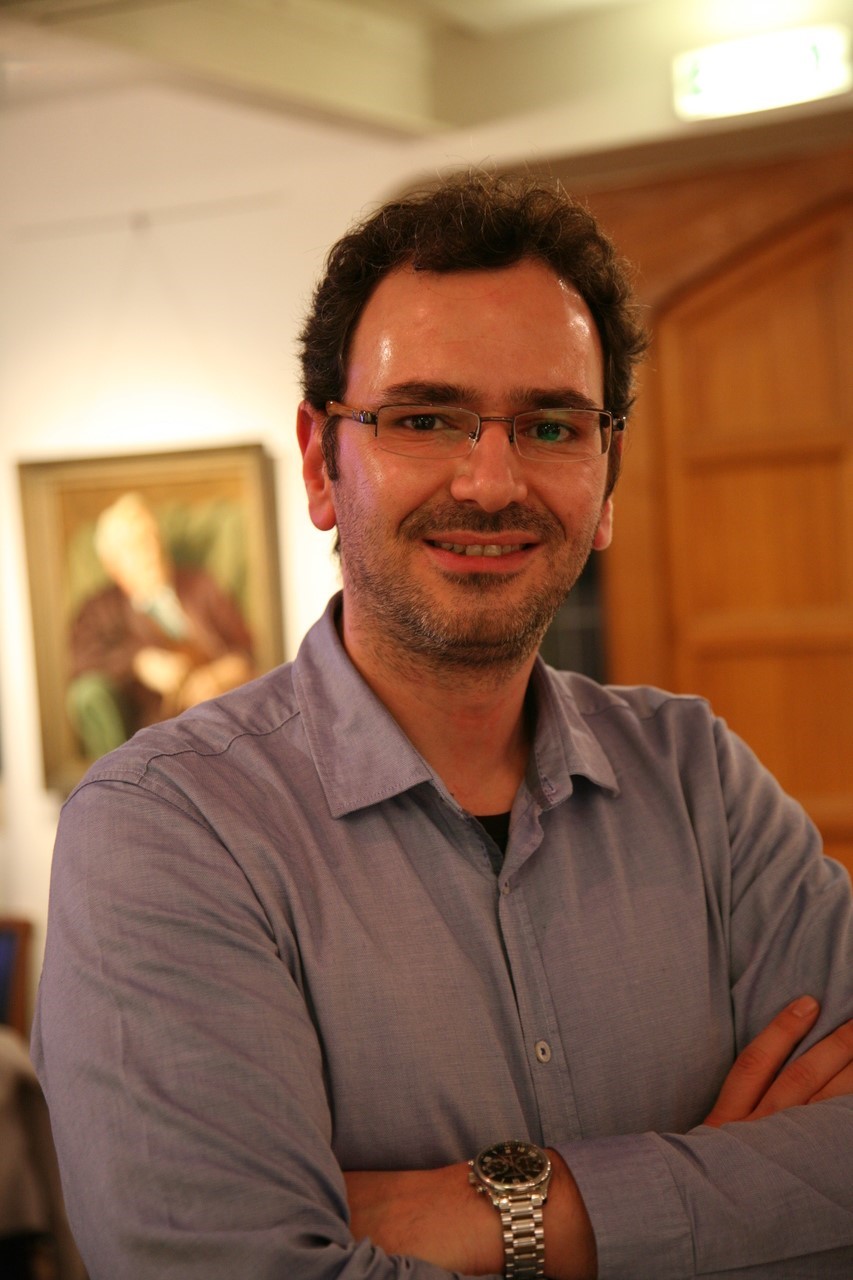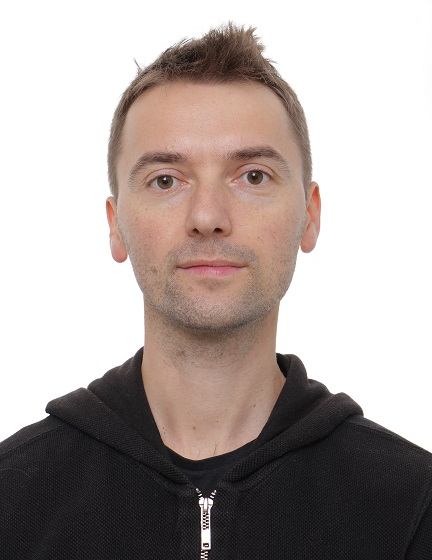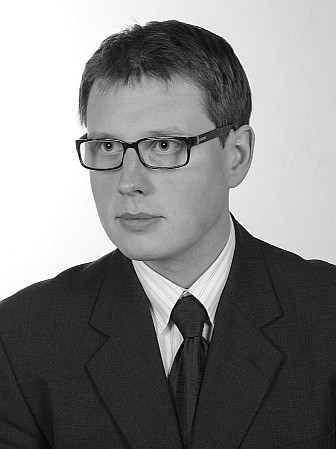Artificial Intelligence in Research and Applications Seminar (AIRA)
AIRA (the Artificial Intelligence Research and Applications) seminar (https://aira.geist.re) is an event organized by the GEIST group (https://www.geist.re) and the HCAI department (https://hcai.fais.uj.edu.pl) in the FAIS Faculty@JU in cooperation with the Mark Kac center (https://markkac.id.uj.edu.pl) and the JAHCAI lab (https://jahcai.id.uj.edu.pl). AIRA was created in 2021 and has been regularly organized since then as an online/hybrid event. During this time we had almost 100 speakers (as of mid 2025) including researchers from many EU countries, PhD students from the Jagiellonian University, Poland, and Europe.
The objective of AIRA is to create an open venue to discuss AI on an interdisciplinary level and from multiple perspectives. We invite AI talks from technical and exact sciences, but also welcome researchers from social sciences and humanities to share their views on AI development and its applications. Finally we are also open on practitioners from industry and business using AI in their companies.
AIRA also formally exists as a PhD course in the Jagiellonian University in the Technical Computer Science program as one of the foundational seminars ([WFAIS.SDSP-IT001.01] and [WFAIS.SDSP-IT001.02]). The students are invited to presents their research plans, as well as to share the progress of their PhD projects. Furthemore, we welcome PhD students from other programs in the JU who are interested in AI. PhD students can participate actively presenting their work and perspectives; however, participation with no presentation is also possible, e.g. for persons who are not computer scientists.
Please save your Thursdays between 3:15-4:45 PM Warsaw Time on MS teams.
The program will be published at the https://aira.geist.re webpage in advance (a dedicated MS Teams group for announcements is available for those who are interested).
Scientific coordination: Grzegorz J. Nalepa
Scientific secretaries Maciej Szelążek, Maciej Mozolewski, Szymon Bobek
Contact for enrollment of the JU PhD students Mrs Ewa Lelek @ WFAIS
Schedule Autumn 2025
- [PHD TRACK] 2026.01.29: Antonio Guillen Teruel, PhD Candidate @ University of Murcia, Calm-Data Generator: A Flexible Framework for Synthetic Dataset Creation Under Concept Drift.
- [PHD TRACK] 2026.01.22: Syed Muhammad Hamza Zaidi, PhD Candidate @ Otto von Guericke University Magdeburg, Localizing the invisible: Graph Neural Networks for Biomedical Signals.
- [RESEARCH TRACK] 2026.01.15: Luiz do Valle Miranda, Postdoc @ Jagiellonian University, Knowledge Graphs and Polyvocality in Cultural Heritage and Beyond. (Project CHExRISH)
- [PHD TRACK] 2026.01.08: Sabri Manai, PhD Candidate @ Jagiellonian University, Counterfactual Guidance for Transparent Hyperparameter Tuning.
- [RESEARCH TRACK] 2025.12.18: Maciej Zięba, Associate Professor @ Wrocław University of Technology, Normalizing Flows - fundamental concepts and applications in counterfactual explanations.
- [PHD TRACK] 2025.12.11: Anna Sofia Lippolis, PhD Candidate @ University of Bologna, Enhancing Knowledge Engineering with LLMs.
- [PHD TRACK] 2025.12.04: Bartłomiej Małkus, PhD Candidate @ Jagiellonian University, Towards Explainable Meta-Models for Ensembles of Financial Alphas.
- [RESEARCH TRACK] 2025.11.27: Aleksander Mendyk, Professor PhD, DSc @ Jagiellonian University, AI/ML for pharmaceutical sciences – an industrial perspective.
- [RESEARCH TRACK] 2025.11.13: Tomáš Kliegr with the research team @ Prague University of Economics and Business, RAG research, LLMs as digital twins, Rule Learning in relational data - perspectives in AI Research .
- [RESEARCH TRACK] 2025.11.06: Tomáš Kliegr and Lukáš Sýkora @ Prague University of Economics and Business, LLM-based feature generation from text for interpretable machine learning.
- [RESEARCH TRACK] 2025.10.30: Peter van Dam, Associate Professor @ Jagiellonian University, Inverse problem in electrocardiography: modeling the ECG.
- Meeting link:MS Teams
- Presentation slides: TDA
- [RESEARCH TRACK] 2025.10.23: Marek Pędziwiatr, PhD @ Jagiellonian University, Eye tracking as a bridge between psychology and computer science.
- [PHD TRACK] 2025.10.16: Karol Dobiczek, PhD Candidate @ Jagiellonian University, Applying Counterfactual Explanations in Evolving Scenarios and Expert Domains.
- 2025.10.09: Grzegorz J. Nalepa, AIRAmaster @ Jagiellonian University, Introduction to AIRA to the new PhD students
Schedule Spring 2025
- [RESEARCH TRACK] 2025.06.26: Artur Miroszewski, PhD @ Jagiellonian University, Exploring Quantum Machine Learning through Earth Observation Case Studies.
- [RESEARCH TRACK] 2025.06.05: Elżbieta Sroka, PhD @ Łukasiewicz Research Network - EMAG Institute of Innovative Technologies, Interaction Design in Consideration of User Research and UX Specialist Perspectives.
- [PHD TRACK] 2025.05.29: Bogdan Gulowaty, PhD @ Wrocław University of Science and Technology, Building transparent classification models.
- [PHD TRACK] 2025.05.22: Jacek Karolczak, PhD Candidate @ Poznań University of Technology, Explainable AI: Moving from numbers to meaningful insights via prototype-based explanations.
- [PHD TRACK] 2025.05.15: Anastasiya Pechko, PhD Candidate @ Jagiellonian University, Adaptive Modular Housing Design for Crisis Situations.
- [RESEARCH TRACK] 2025.05.08: Gianluca Guglielmo, PhD @ Tilburg University, From Video Games to Real-life ”Games”: The Emergence of Real-life Expertise in (Serious) Video Games.
- [PHD TRACK] 2025.04.24: Natalia Wojak-Strzelecka, PhD Candidate @ Jagiellonian University, Enhancing concept drift detection, explanation and adaptation to changes in industrial data streams.
- [PHD TRACK] 2025.04.03: Dmytro Polishchuk, PhD Candidate @ Jagiellonian University, Automated GitHub Repository Quality Evaluation: A Metrics-Based Approach.
- [PHD TRACK] 2025.03.27: Jakub Jakubowski, PhD Candidate @ AGH University, Dry run thesis defense IN POLISH - Explainable Predictive Maintenance in Steel Rolling.
- Meeting link: The talk will be held stationary in room C-2-10
- Recording: - (Dry run thesis defense)
- Presentation slides: Download
- [PHD TRACK] 2025.03.13: Maciej Szelążek, PhD Candidate @ Jagiellonian University, Semantic Data Mining methods for decision support in smart manufacturing.
- Meeting link: offline mode
- Recording: - (Dry run thesis defense)
- Presentation slides: Download
- [RESEARCH TRACK] 2025.03.06: Renata Włoch, Professor @ University of Warsaw, Does fear of automation motivate workers to reskill?
Schedule Autumn 2024
- [PHD TRACK] 2025.01.30: Mateusz Dobija, PhD Candidate @ Jagiellonian University, Accelerating training of Physics Informed Neural Network for 1D PDEs with Hierarchical Matrices
- [PHD GUEST TRACK] 2025.01.16: Antonio Guillén-Teruel, PhD Candidate @ University of Murcia, Exploring SHAP Values in Imbalanced: Insights on Bias and Concept Drift
- [PHD GUEST TRACK] 2024.12.19: Betül Bayrak, PhD Candidate @ Norwegian University of Science and Technology, Post-hoc XAI Methods: Counterfactuals and XCBR Applications
- [PHD TRACK] 2024.12.12: Jan Ignatowicz, PhD Candidate @ Jagiellonian University, Knowledge Graphs for Digitized Manuscripts in Cultural Heritage Applications
- [PHD GUEST TRACK] 2024.12.05: Ulvi Movsum-zada, PhD Candidate @ Jagiellonian University, VisTabNet: Adapting Vision Transformers for Tabular Data
- [RESEARCH TRACK] 2024.11.28: Michał Wierzchoń, Professor @ Jagiellonian University, Centre for Brain Research – aims, goals, case projects and available datasets
- [RESEARCH TRACK] 2024.11.21: Agnieszka Ławrynowicz, Associate Professor @ Poznan University of Technology, How to Build Trustworthy Knowledge Graphs?
- [RESEARCH TRACK] 2024.11.14: Dorota Głowacka, Professor @ University of Helsinki, User-centric Design and Evaluation of Exploratory Search and Recommender Systems
- [PHD GUEST TRACK] 2024.11.07: Weronika Hryniewska-Guzik, NormEnsembleXAI: Unveiling the Strengths and Weaknesses of XAI Ensemble Techniques
- [RESEARCH TRACK] 2024.10.24: Lucjan Janowski, Quality of Experience - Quality for Telecommunication
- [DOCTORAL TRACK] 2024.10.17: Luiz do Valle Miranda, Critical Early-Stage Decisions in Linked Data Projects for Cultural Heritage: Challenges, Choices, and Guidelines
Schedule Summer 2024
- [RESEARCH TRACK] 2024.06.27: José Palma,Juan Botía, Antonio Guillén-Teruel Context-Aware learning models: CALM-Project and Concept Drift in Imbalanced Problems
- Meeting link: MS Teams
- Recording: View (if you are not UJ employee, ask Szymon Bobek for access)
- Presentation slides: Download I Download II
- [RESEARCH TRACK] 2024.06.06: Żaneta Kubic European Cultural Heritage in Virtual Worlds – why and how : introduction to the IMPULSE project
- [DOCTORAL TRACK] 2024.05.16: Mateusz Bułat Image analysis for specialised therapy support
- [RESEARCH TRACK] 2024.05.09: Jason J. Jung Deep Learning for Anomaly Detection in Multivariate Time Series: Approaches, Applications, and Challenges
- [DOCTORAL TRACK] 2024.04.25: Bortłomiej Małkus Interpretable Time Series Classification With Prototypical Parts
- [DOCTORAL TRACK] 2024.04.18
- Farnoud Ghasemi Performance Optimization of the Platforms in Two-sided Mobility Market and
-
- Meeting link: MS Teams
- Presentation slides: Download 1st Download 2nd
- [RESEARCH TRACK] 2024.04.04: Barbara Strug Evolutionary methods in automatic floor layout generation
- [RESEARCH TRACK] 2024.03.28: Jarosław Wąs Complex Collective Systems
- [DOCTORAL TRACK] 2024.03.21: Maciej Szelążek Using ML and XAI for decision support in Business Intelligence analysis (Project CHIST-ERA XPM)
- [RESEARCH TRACK] 2024.03.14: Mateusz Ślażyński Formal Representation and Synthesis of Local Search Neighborhoods
Schedule Winter 2023
- [RESEARCH TRACK] 2024.02.01: Piotr Fudalej Artificial intelligence at the dentist - patient or assistant?
- [RESEARCH TRACK] 2024.01.25: Rita P. Ribeiro Online Anomaly Explanations - case study of Metro do Porto (Project CHIST-ERA XPM)
- [RESEARCH TRACK] 2024.01.18: Jakub Gomułka The Wittgenstein Ontology Project
- [RESEARCH TRACK] 2024.01.11: Arkadiusz Tomczyk Interpretable components and graph neural networks
- [RESEARCH TRACK] 2023.12.21: Tomasz Stebel Sampling states in statistical physics with neural networks
- [DOCTORAL TRACK] 2023.12.14: Bartłomiej Nawara Evolution of Science in the AI and Big Data Era: Modeling, Replication, Expertise
- [RESEARCH TRACK] 2023.12.07: Jeremi Ochab Fractal and multifractal organisation of neuroimaging signals in cognitive tasks and in disease
- [RESEARCH TRACK] 2023.11.30: Andrzej Siódmok Towards a deep learning model for hadronization - an example of the application of the ML generative models in high-energy physics
- [RESEARCH TRACK] 2023.11.23: Joanna Jaworek-Korjakowska The Impact of Artifacts on the Effectiveness of Deep Learning
- [RESEARCH TRACK] 2023.11.09: Jan Argasiński Neuroscientific Inspirations in AI: Spiking Neural Networks
- [DOCTORAL TRACK] 2023.10.26: Jakub Jakubowski Synthetic Data Generator for Predictive Maintenance in Steel Manufacturing (Project CHIST-ERA XPM)
- [RESEARCH TRACK] 2023.10.19: Raquel Espinosa Multi-objective evolutionary feature selection with deep learning applied to air quality spatio-temporal forecasting
- [RESEARCH TRACK] 2023.10.12: Przemysław Witaszczyk Reflections after Digital Dragons 2023
Schedule Summer 2023
- [RESEARCH TRACK] 2023.06.29: Sepideh Pashami Domain Adaptation for Predictive Maintenance (Project CHIST-ERA XPM)
- [TUTORIAL] 2023.06.26: Sepideh Pashami Causal Inference and its Connection to Machine Learning (Project CHIST-ERA XPM)
- [DOCTORAL TRACK] 2023.06.22: Michał Kuk Time-Series Complexity into Understandable Prototypes: A Generic Approach to Machine Learning Explanations in Industrial Processes (Project CHIST-ERA XPM)
- [RESEARCH TRACK] 2023.06.15: Usman Akhtar Unlocking Insights for Health and Wellness: Exploring the Data Curation Framework for Big Data
- [DOCTORAL TRACK] 2023.06.01: Michał Bujak Graph neural networks for community detection and clustering problems with application to urban mobility studies
- [RESEARCH TRACK] 2023.05.25: Przemysław Stanisz Modeling of advanced nuclear systems
- [RESEARCH TRACK] 2023.05.18: Artur Miroszewski Use of quantum computation in satellite data analysis
- [RESEARCH TRACK] 2023.05.11: Joao Gama Current Trends in Learning from Data Streams (Project CHIST-ERA XPM)
- [DOCTORAL TRACK] 2023.04.20: Mateusz Bułat Syntactic Pattern Recognition in Medical Applications
- [DOCTORAL TRACK] 2023.04.13: Edyta Kuk Machine Learning-based industrial process control with explainable decision support (Project CHIST-ERA XPM)
- [RESEARCH TRACK] 2023.03.30: Marcin Grzegorzek Profiling Humans Using Pattern Recognition Algorithms
- [RESEARCH TRACK] 2023.03.23: Amira Soliman, Awais Ashfaq, Atiye Sadat Hashemi Using AI in healthcare -- from outcome prediction through targeted interventions to EHR anonymisation
- Meeting link: MS Teams
- Recording: View Part I, View Part II (if you are not UJ employee, ask Szymon Bobek for access)
- Presentation slides: TBA
- [RESEARCH TRACK] 2023.03.16: Bartosz Zieliński Interpretable Deep Learning with Prototypical Parts
- [RESEARCH TRACK] 2023.03.02: Antonio Martinez-Sanchez Computational methods for Cryo-Electron Tomography: current challenges
Schedule Winter 2022
- [RESEARCH TRACK] 2023.01.26: Stella Heras Automatic Analysis of Argumentative Discourse and Argumentation-based Human Persuasion
- [DOCTORAL TRACK] 2023.01.19: Bartosz Soból Improving batch job scheduling with AI
- [RESEARCH TRACK] 2023.01.12: Candela Hernández Machine learning applications in Biological Anthropology
- Meeting link: MS Teams
- Recording View (if you are not UJ employee, ask Szymon Bobek for access)
- Presentation slides: TBA
- [RESEARCH TRACK] 2022.12.15: Przemysław Spurek Hypernetwork approach to few-shot learning
- Meeting link: MS Teams
- Recording View (if you are not UJ employee, ask Szymon Bobek for access)
- Presentation slides: Download
- [RESEARCH TRACK] 2022.12.08: Roman Sosnowski, Piotr Tylus, Jadwiga Kita-Huber, Remigiusz Sapa, Grzegorz J. Nalepa, Krzysztof Kutt Digitalization of library handwriting resources and opportunities for Artificial Intelligence. The case of Autographa Sammlung in the Jagiellonian Library
- Meeting link: MS Teams
- Recording View (if you are not UJ employee, ask Szymon Bobek for access)
- Presentation slides: Download
- [DOCTORAL TRACK] 2022.12.01: Marcin Tutajewski Detection of multiple sclerosis from EEG signals using machine learning methods
- Meeting link: MS Teams
- Recording View (if you are not UJ employee, ask Szymon Bobek for access)
- Presentation slides: Download
- [DOCTORAL TRACK] 2022.11.24: Bartłomiej Małkus Physics guided neural networks with application to financial modeling (GEIST)
- Meeting link: MS Teams
- Recording View (if you are not UJ employee, ask Szymon Bobek for access)
- Presentation slides: Download
- [RESEARCH TRACK] 2022.11.17: Jarosław Duda Hierarchical correlation reconstruction - between statistics and machine learning
- Meeting link: MS Teams
- Recording View (if you are not UJ employee, ask Szymon Bobek for access)
- Presentation slides: Download
- [DOCTORAL TRACK] 2022.11.10: Paweł Matyszok Action Rules induction by Sequential Covering
- Meeting link: MS Teams
- Recording View (if you are not UJ employee, ask Szymon Bobek for access)
- Presentation slides: Download
- [RESEARCH TRACK] 2022.10.27: Jerzy Stefanowski Learning classifiers from concept drifting and imbalanced data streams
- Meeting link: MS Teams
- Recording View (if you are not UJ empoyee, ask Szymon Bobek for access)
- Presentation slides: TBA
- [DOCTORAL TRACK] 2022.10.20: Maciej Mozolewski Human-in-the-loop approaches to XAI (Project CHIST-ERA XPM) (GEIST)
- Meeting link: MS Teams
- Recording View (if you are not UJ employee, ask Szymon Bobek for access)
- Presentation slides: Download
- [DOCTORAL TRACK] 2022.10.13: Iwona Grabska-Gradzińska Plot generation of computer narrative game with graph transformations
- Meeting link: MS Teams
- Recording View (if you are not UJ employee, ask Szymon Bobek for access)
- Presentation slides: Download
Schedule Summer 2022
- [DOCTORAL TRACK] 2022.06.23 : Bartosz Soból AI inference acceleration on FPGA
- Meeting link: MS Teams
- Recording: View (if you are not UJ employee, ask Szymon Bobek for access)
- Presentation slides: Download
- [RESEARCH TRACK] 2022.06.02 : Michał Klincewicz, Ph.D. Moral Improvement with Video Games
- Meeting link: MS Teams
- [RESEARCH TRACK] 2022.05.26 dr hab. inż. Marcin Hernes, prof. UEW & dr inż. Krzysztof Lutosławski assistant professor @ UEW & Agata Kozina, Ph.D. candidate @ UEW: Artificial intelligence for support business processes
- Meeting link: MS Teams
- Recording: View (if you are not UJ employee, ask Szymon Bobek for access)
- Presentation slides: Download
- [RESEARCH TRACK] 2022.05.19 dr hab. Mateusz Hohol, prof. UJ: Investigating and facilitating human geometric cognition through VR/AR technologies
- Meeting link: MS Teams
- Recording: View (if you are not UJ employee, ask Szymon Bobek for access)
- Presentation slides: Download
- [DOCTORAL TRACK] 2022.05.12 Michał Zwierzyński: AI methods in computer modeling and recognition of emotions and humanization of computer systems (GEIST)
- Meeting link: MS Teams
- Recording: View (if you are not UJ employee, ask Szymon Bobek for access)
- Presentation slides: Download
- [DOCTORAL TRACK] 2022.05.05 Magdalena Wiercioch: Machine Learning in Drug Discovery: Applications and Techniques
- Meeting link: MS Teams
- Recording: View (if you are not UJ employee, ask Szymon Bobek for access)
- Presentation slides: Download
- [DOCTORAL TRACK] 2022.04.14 Maciej Szelążek: Semantic Data Mining Based Decision Support for Quality Assessment in Steel Industry (Project CHIST-ERA Pacmel) (GEIST)
- Meeting link: MS Teams
- Recording: View (if you are not UJ employee, ask Szymon Bobek for access)
- Presentation slides: Download
- [RESEARCH TRACK] 2022.04.07 Przemysław Kazienko & Jan Kocoń: Personalized NLP
- Meeting link: MS Teams
- Recording: View (if you are not UJ employee, ask Szymon Bobek for access)
- Presentation slides: Download
- [DOCTORAL TRACK] 2022.03.31 Bartłomiej Nawara: On open problems of theory of knowledge, based on Luciano Floridi’s theory of semantic information (GEIST)
- Meeting link: MS Teams
- Recording: View (if you are not UJ employee, ask Szymon Bobek for access)
- Presentation slides: Download
- [RESEARCH TRACK] 2022.03.24 Michał Araszkiewicz: Artificial Intelligence and (Human Rights) Law (Project CHIST-ERA XPM) (GEIST)
- Meeting link: MS Teams
- Recording: View (if you are not UJ employee, ask Szymon Bobek for access)
- Presentation slides: Download
- [DOCTORAL TRACK] 2022.03.17 Radosław Pałosz: Explaining the Artificial Intelligence Act (Project CHIST-ERA XPM) (GEIST)
- Meeting link: MS Teams
- Recording: View (if you are not UJ employee, ask Szymon Bobek for access)
- Presentation slides: Download
- [DOCTORAL TRACK] 2022.03.10 Maciej Mozolewski: Demonstration of InXAI framework on ensemble classifier ML model (Project CHIST-ERA XPM) (GEIST)
- Meeting link: MS Teams
- Recording: View (if you are not UJ employee, ask Szymon Bobek for access)
- Presentation slides: Download
- [DOCTORAL TRACK] 2022.03.03 Michał Kuk: Enhancing cluster analysis with explainable AI and multidimensional cluster prototypes (Project CHIST-ERA Pacmel) (GEIST)
- Meeting link: MS Teams
- Recording: View (if you are not UJ employee, ask Szymon Bobek for access)
- Presentation slides: Download
Schedule Winter 2021
- [RESEARCH TRACK] 2022.01.27 Victor Rodriguez-Fernandez, PhD : Modern deep learning approaches for time series (Project CHIST-ERA Pacmel)
- Meeting link: MS Teams
- Recording: View (if you are not UJ employee, ask Szymon Bobek for access)
- Presentation slides: Download
- [DOCTORAL TRACK] 2022.01.20 Jakub Jakubowski: Explainable anomaly detection in hot-rolling process (Project CHIST-ERA XPM) (GEIST)
- Meeting link: MS Teams
- Recording: View (if you are not UJ employee, ask Szymon Bobek for access)
- Presentation slides: Download
- [RESEARCH TRACK] 2022.01.13 dr inż. Szymon Bobek: Challenges in Explainable Artificial Intelligence for Industry 4.0 (Project CHIST-ERA XPM) (GEIST)
- Meeting link: MS Teams
- Recording: View (if you are not UJ employee, ask Szymon Bobek for access)
- Presentation slides: Download
- [RESEARCH TRACK] 2021.12.16 Timoleon Kipouros, PhD: Visual Analytics for Aerospace and Healthcare Systems Design
- Meeting link: MS Teams
- Recording: View (if you are not UJ employee, ask Szymon Bobek for access)
- [DOCTORAL TRACK] 2021.12.09 Bartosz Soból: Recent developments of machine learning in experimental particle physics
- Meeting link: MS Teams
- Recording: View (if you are not UJ employee, ask Szymon Bobek for access)
- Presentation slides: Download
- [RESEARCH TRACK] 2021.12.02 prof. dr hab. inż. Grzegorz J. Nalepa: Artificial Intelligence in Industry 4.0: Data, Models, and Knowledge (Project CHIST-ERA Pacmel) (GEIST)
- Meeting link: MS Teams
- Presentation slides: Download
- Recording: View (if you are not UJ employee, ask Szymon Bobek for access)
- [DOCTORAL TRACK] 2021.11.25 Marcin Tutajewski: Classification of ROI-based fMRI data in short-term memory tasks using discriminant analysis and neural networks
- Meeting link: MS Teams
- Presentation slides: Download
- Recording: View (if you are not UJ employee, ask Szymon Bobek for access)
- [RESEARCH TRACK] 2021.11.18 dr inż. Krzysztof Kutt: AI with psychology -- a few words on affective adaptation and personalisation of intelligent systems (GEIST)
- Meeting link: MS Teams
- Presentation slides: Download
- Recording: View (if you are not UJ employee, ask Szymon Bobek for access)
- [RESEARCH TRACK] 2021.11.04 prof. Andrzej Grabowski: Telepresence and simulators - modern use of Virtual Reality in robotics and training with possible application of AI
- Meeting link: MS Teams
- Presentation slides: Download
- Recording: View (if you are not UJ employee, ask Szymon Bobek for access)
- [RESEARCH TRACK] 2021.10.28 prof. Marcin Woźniak: Smart environment – AI meets IoT
- Meeting link: MS Teams
- Recording View (if you are not UJ employee, ask Szymon Bobek for access)
- [DOCTORAL TRACK] 2021.10.21 Bartłomiej Małkus: Financial modeling with applications of machine learning and explainable AI (GEIST)
- Meeting link: MS Teams
- Presentation slides: Download
- Recording View (if you are not UJ employee, ask Szymon Bobek for access)
- 2021.10.14 Challenges and Opportunities for human-centred AI: A dialog between Yoshua Bengio (Turing Award) and Ben Shneiderman, moderated by Virginia Dignum.
- Meeting link: Zoom link
Presentation details
2026-01-29
Speaker: Antonio Guillen Teruel, PhD Candidate @ University of Murcia
Title: Calm-Data Generator: A Flexible Framework for Synthetic Dataset Creation Under Concept Drift.
Abstract: Calm-Data Generator is designed to produce realistic synthetic datasets exhibiting different types of concept drift, enabling controlled evaluation of machine-learning models in dynamic environments. The framework implements multiple drift mechanisms, supports tabular data with customizable complexity, and provides a flexible API for defining data-generation functions, experimental scenarios, and temporal transitions. Its primary goal is to facilitate reproducible experimentation in concept drift research, allowing researchers to benchmark methods, analyze performance degradation, and study model robustness under shifting data distributions. This presentation will introduce the simulator’s architecture, its main modules, practical use cases, and the types of experiments it enables for applied research.
Biogram: Antonio Guillén-Teruel (a.guillenteruel@um.es) is a PhD Student graduated in Mathematics from the University of Murcia in 2020. In 2021 he got a Masters degree in Big Data from the same university and started his Ph.D studies in Informatics. The following year he got a Masters degree in Advanced Mathematics at the University of Murcia. His research focuses on imbalanced problems in Machine Learning (ML), including both in regression and classification problems, as well as the study of concept drift in medical domains for imbalanced datasets.
2026-01-22
Speaker: Syed Muhammad Hamza Zaidi, PhD Candidate @ Otto von Guericke University Magdeburg
Title: Localizing the invisible: Graph Neural Networks for Biomedical Signals.
Abstract: The respiratory system can be significantly affected by thoracic injuries, which may lead to complications such as lung dysfunction. Immediate diagnosis, along with the precise location of these injuries is crucial as it allows targeted medical interventions, reduces unnecessary treatments and accelerates patient recovery. Traditional diagnostic tools like X-rays and CT scans offer high resolution imaging but rely on radiation exposure and hospital visits, making continuous monitoring impractical. This talk introduces a wearable sensor network coupled with Temporal Graph Neural Networks (TGCNs) to detect and localize breathing abnormalities non-invasively and in real time. By modeling the thorax as a graph of 14 IMU-based sensor nodes, the system captures both spatial dependencies and temporal dynamics of chest movement. The proposed model pinpoints the exact location and severity of breathing irregularities, such as shallow or asymmetric breathing patterns while maintaining high interpretability through spatially grounded predictions. The presentation will cover the underlying method, synthetic to real data strategy and the vision of a smart chest wearable system for continuous at home monitoring. Applications range from post-injury recovery and chronic disease management to early warning systems in preventive healthcare.
Biogram: Zaidi is a PhD researcher at Otto-von-Guericke University Magdeburg, working at the Knowledge Management & Discovery Lab (KMD) under the supervision of Prof. Myra Spiliopoulou. His research focuses on graph neural networks, wearable sensor systems and feature importance for biomedical applications. He has developed a temporal graph neural network framework to detect and localize respiratory abnormalities using chest-mounted IMU sensor networks. Beyond respiratory monitoring, his research spans spatio-temporal deep learning, health signal processing and interpretable machine learning methods aimed at bridging the gap between AI research and clinical practice.
2026-01-15
Speaker: Luiz do Valle Miranda, PhD Candidate @ Jagiellonian University
Title: Knowledge Graphs and Polyvocality in Cultural Heritage and Beyond.
Abstract: Over the past decade, Knowledge Graphs (KGs) have emerged as one of the most promising technologies for organizing and exploring cultural heritage data. Within this domain, several international standards have been developed to enable interoperable modelling of library, archive, and museum resources, such as CIDOC-CRM and LRMoo. Alongside these standards, new conceptual and methodological trends—such as polyvocality representation—are reshaping how cultural narratives and multiple perspectives can be expressed, connected, and contextualized within KGs. In this talk, I will share insights from my experience developing and applying KGs in two cultural heritage–related projects: CHExRISH and LKG. I will also discuss ongoing and future work on polyvocality in and beyond cultural heritage domains.
Biogram: Luiz do Valle Miranda is a Ph.D. candidate at the Jagiellonian University in Technical Computer Science since 2023. He graduated in BA in Cognitive Science at the John Paul II Catholic University of Lublin (2018), received the title of MA in Philosophy from the University of Antwerp (2020) and has a Ph.D. in Philosophy from the Charles University in Prague (2024). His research focuses on the development of knowledge-based systems, with particular emphasis on knowledge graphs. He is especially interested in the intersection of language model applications and explicitly represented knowledge, aiming to create intelligent technologies that promote human diversity and flourishing.
2026-01-08
Speaker: Sabri Manai, PhD Candidate @ Jagiellonian University
Title: Counterfactual Guidance for Transparent Hyperparameter Tuning.
Abstract: This research explores how hyperparameter optimization can be made more transparent and interactive by incorporating human preferences into the search process. Instead of treating optimization as a black-box task, the approach uses counterfactual explanations to suggest alternative configurations under user-defined constraints. The method enables domain experts to better understand and guide model behavior, supporting more informed decision-making.
Biogram: Sabri Manai is a PhD candidate in Technical Computer Science at Jagiellonian University in Kraków, where his research focuses on explainable AI and pattern detection in multimodal data. His work investigates how human feedback and domain knowledge can improve the transparency and reliability of AI systems. He holds a Master’s degree in Software Systems Engineering from the Universitat Politècnica de València and a Bachelor’s degree in Computer Science from the South Mediterranean University in Tunis. Previously, he worked on AI-driven urban analytics within the Valencia Smart City project at Idrica and contributed to mobile development and cloud integration at Peaksource.
2025-12-18
Speaker: Maciej Zięba, Associate Professor @ Wrocław University of Technology
Title: Normalizing Flows - fundamental concepts and applications in counterfactual explanations.
Abstract: During the talk, I will begin with a brief introduction to generative flow-based models. Then, I will present practical examples demonstrating how this class of models can be applied in real-world scenarios. I will introduce flows as probabilistic regression models, highlighting their versatility as plug-in components and their generative capabilities for point clouds. I will also discuss how we applied flow-based models to a few-shot regression problem. Finally, I will illustrate how normalizing flows can be used to address counterfactual explanation tasks.
Biogram: Maciej Zięba is a research scientist at Tooploox and an Associate Professor at Wroclaw University of Science and Technology, where he received a Ph.D. degree in computer science and a master's degree in economics. He also obtained a master's degree in computer science at the Blekinge Institute of Technology in Sweden. In 2017, he was a visiting scholar at the University of Wollongong (Australia). His research is directed towards deep learning, especially generative models and representation learning. He was the co-author of a variable number of research papers published in influential journals and presented at the top ML conferences, including NeurIPS, AAAI, ICML, CVPR, and ICLR. He is also leading genwro.ai research group (https://genwro.ai.pwr.edu.pl/) at Wroclaw University of Science and Technology.
2025-12-11
Speaker: Anna Sofia Lippolis, PhD Candidate @ University of Bologna
Title: Enhancing Knowledge Engineering with LLMs.
Abstract: The development and spread of Large Language Models (LLMs) are having a growing impact on the world of the Semantic Web, profoundly transforming the field of Knowledge Engineering. This field, traditionally characterized by a high degree of manual work and collaboration between technical professionals and domain experts, faces various challenges related to scalability and the continuous evolution of knowledge. In this context, LLMs are emerging in several areas, from law to medicine, as tools that support researchers: from the automatic generation of ontologies to the assessment of the quality and semantic coverage of conceptual models, and even the exploration of analogical reasoning, through which it is possible to identify structural correspondences between different domains. This talk will present current research directions on collaboration between LLMs and researchers for knowledge modeling, within a critical overview of the opportunities offered by these tools for the future of the Semantic Web.
Biogram: Anna Sofia Lippolis (she/her) is a PhD student at the University of Bologna, Italy, affiliated with the National Research Council’s Institute for Cognitive Sciences and Technologies (Rome, Italy). Her work investigates how semantic technologies intersect with Digital Humanities research and how AI can automate knowledge-engineering practices.
2025-12-04
Speaker: Bartłomiej Małkus, PhD Candidate @ Jagiellonian University
Title: Towards Explainable Meta-Models for Ensembles of Financial Alphas.
Abstract: One branch of systematic trading research studies large libraries of formulaic alphas: small predictive models built from price and volume data. In practice, these alphas are combined into an ensemble whose composition changes with market conditions. From an ML perspective, this can be viewed as a meta-model that selects and weights weak experts based on their characteristics and the current environment. In this talk I will introduce this setting with minimal financial background (cross-sectional returns, information coefficient, long–short factor portfolios), and then reframe it in familiar ML terms. I will show how individual alphas can be treated as models with their own structural and behavioural features, and how this enables clustering them into “families” and reasoning about dynamic ensemble construction. Finally, I will sketch the idea of an explainable meta-model that maps alpha features and market descriptors to ensemble decisions, and highlight open methodological questions and possible research directions.
Biogram: Bartłomiej Małkus is a PhD candidate at the Jagiellonian University in Technical Computer Science since 2021. He completed BSc and MSc studies in Computer Science at the AGH University of Science and Technology, and MSc studies in Financial Markets at the Cracow University of Economics. His field of interest are neurosymbolic approaches, prototypical networks, and financial applications of explainable ML. Commercially, he works in IBM on database and master data management solutions.
2025-11-27
Speaker: Aleksander Mendyk, Professor @ Jagiellonian University
Title: AI/ML for pharmaceutical sciences – an industrial perspective.
Abstract: Although reluctantly, pharmaceutical industry follows the footsteps of the other industries into the digital age. Among the digital innovations, data-driven approaches are more and more exploited in the various stages of drug discovery and development, including manufacturing as well. AI/ML is perceived as a disruptive technology capable of bringing safe innovation strategies and in the same time extending well known statistical process control and good practices for the benefit of development of safe and efficacious drugs. This movement towards AI/ML applications is stimulated both by industry itself and Regulatory Agencies like EMA and FDA. This talk will outline current areas and trends in the AI/ML applications for the pharmaceutical sciences, which are the backbone of the marketed medicinal products.
Biogram: Prof. Aleksander Mendyk, PhD, DSc. is an expert in application of artificial&computational intelligence methods in pharmaceutical technology&biopharmacy, in vitro in vivo correlation (IVIVC) and bioequivalence, Author of over 100 publications. A pharmacist and programmer both in Open Source and commercial applications (R, Python, Java). Currently Head of the Department of Pharmaceutical Technology and Biopharmaceutics, Jagiellonian University-Medical College (JUMC), Kraków, Poland and Vice Dean for Science and Development at the Faculty of Pharmacy JUMC.
2025-11-13
Speaker: Tomáš Kliegr with the research team @ Prague University of Economics and Business
Title: RAG research, LLMs as digital twins, Rule Learning in relational data - perspectives in AI Research .
Abstract: - Mateusz Ploskonka: RAG Research Presentation - Mateusz will present a comprehensive empirical evaluation of 32 LLMs (from 0.6B to 1T parameters) across various Retrieval-Augmented Generation (RAG) configurations. His research challenges the ““bigger is better”” assumption by identifying a critical performance plateau at 30B parameters, offering evidence-based guidance for practitioners to balance answer quality, cost, and sustainability in production RAG deployments.
- Barbara Moreová: LLMs as digital twins for simulating effect of cognitive biases - Barbara will present her research on using Large Language Models to create digital twins for the simulation of human cognitive biases.
- Kateřina Hrudková: Rule Learning in Relational Data: Methods, Interoperability, and Bioscience Applications - Kateřina’s research bridges the gap between expressive Inductive Logic Programming (ILP) and scalable RDF rule learners. She will present tools (popper2rdf, rdf2popper) that enable this interoperability and demonstrate a practical application using the RDFRules system to discover interpretable ““nuggets”” from large-scale biomedical knowledge graphs, aiding in tasks like drug repurposing for COVID-19 and classifying microbial media.
Biogram: Tomáš Kliegr is a Professor at the Faculty of Informatics and Statistics at the Prague University of Economics and Business (VSE Praha), where he is part of the Data Science & Explainable AI (DSXAI) research team. His research interests include Explainable AI (XAI), Interpretable Machine Learning, and neurosymbolic methods. He has published on topics such as the effect of cognitive biases on model interpretation in journals including Artificial Intelligence and Machine Learning. He is active in the rule-based systems community.
2025-11-06
Speaker: Tomáš Kliegr and Lukas Sykora @ Prague University of Economics and Business
Title: LLM-based feature generation from text for interpretable machine learning.
Abstract: Traditional text representations like embeddings and bag-of-words hinder rule learning and other interpretable machine learning methods due to high dimensionality and poor comprehensibility. This article investigates using Large Language Models (LLMs) to extract a small number of interpretable text features. We propose two workflows: one fully automated by the LLM (feature proposal and value calculation), and another where users define features and the LLM calculates values. This LLM-based feature extraction enables interpretable rule learning, overcoming issues like spurious interpretability seen with bag-of-words. We evaluated the proposed methods on five diverse datasets (including scientometrics, banking, hate speech, and food hazard). LLM-generated features yielded predictive performance similar to the SciBERT embedding model but used far fewer, interpretable features. Most generated features were considered relevant for the corresponding prediction tasks by human users. We illustrate practical utility on a case study focused on mining recommendation action rules for the improvement of research article quality and citation impact.
Biogram: Tomáš Kliegr is a Professor at the Faculty of Informatics and Statistics at the Prague University of Economics and Business (VSE Praha), where he is part of the Data Science & Explainable AI (DSXAI) research team. His research interests include Explainable AI (XAI), Interpretable Machine Learning, and neurosymbolic methods. He has published on topics such as the effect of cognitive biases on model interpretation in journals including Artificial Intelligence and Machine Learning. He is active in the rule-based systems community.
Dr. Lukas Sykora is a Research Assistant at the Department of Information and Knowledge Engineering and a Lecturer at the Prague University of Economics and Business. He holds a PhD in Applied Informatics (2025), where his doctoral thesis focused on action rule mining. He has authored several publications on this topic, including “Apriori Modified for Action Rules Mining.” He also brings industry experience as a Solution Architect Team Lead at Ogilvy.
2025-10-30
Speaker: Peter van Dam, Associate Professor @ Jagiellonian University
Title: Inverse problem in electrocardiography: modeling the ECG.
Abstract: The electrocardiogram (ECG) measured on the body surface shows beat-by-beat the electrical functioning of the heart. This ECG consists of a number of electrical time signals that are caused by the currents produced by the myocardial cells. These ECG signals require clinical interpretation, which in the In current clinical practice is close to an art. Modeling the ECG, i.e. have a model of the heart that simulates the electrical processes of the myocardium and calculates the ECG signals on the body surface, can help to understand these waveforms in a cause -effect relationship. This is the major subject of my current and past research, which I will introduce during this talk.
Biogram: Dr hab. Peter van Dam is a scientist and lecturer specializing in cardiac modeling, electrocardiographic diagnostics, and the development of innovative educational and clinical tools based on heart signal analysis and 3D imaging. In 2025, he obtained his postdoctoral degree (habilitation) in medical sciences at the Jagiellonian University Medical College, presenting a scientific achievement entitled “Localization of PVC (Premature Ventricular Contraction): Evaluation and Validation of Inverse ECG Modeling.” He is also a laureate of the prestigious NCN OPUS grant, focused on inverse modeling of repolarization heterogeneity to assess arrhythmogenic risk. His academic path began with studies in electronic engineering at MBO-College Gouda (1981–1985) and Hogeschool Utrecht (1985–1990). He also studied philosophy (Rijksuniversiteit Utrecht, 1991–1992) and physics (Universität Oldenburg, 1992–1993). Between 1997–2004, he earned a master’s degree in biology and physics at the Open University in Heerlen, where his thesis involved developing a simulation of the P-wave in ECG and IEGM (2004). In 2010, he defended his PhD at Radboud University Nijmegen under the supervision of Prof. Adriaan van Oosterom, presenting the dissertation “The shortest path to cardiac activation.” Peter van Dam’s professional experience spans both academia and the medical industry. He began his career in 1997 as a senior scientist at Vitatron/Medtronic. Since 2009, he has been affiliated with Peacs BV (Chief Scientific Officer). In 2020, he became CEO of ECG-Excellence, focusing on developing innovative diagnostic and educational tools based on heart signal analysis and 3D modeling. In academia, he has worked at Radboud University (2011–2017, validating ECGI methods in an animal model), at UCLA (2013–2016, developing arrhythmia mapping methods), and currently conducts research and teaching at UMC Utrecht, UT Twente, and Hochschule Luzern Technik & Architektur. Since 2023, he has also collaborated with the Jagiellonian University Medical College, Center for Digital Medicine and Robotics, where he serves as Visiting Professor at the Department of Radiology. Since 2024, he has also been a specialist at the Laboratory of Functional and Virtual Medical 3D Imaging (3D-FM) at the University Hospital in Kraków. His research focuses on: inverse ECG modeling and arrhythmia source localization; the use of 3D imaging and simulation in cardiology; developing modern educational tools for students and physicians; integrating engineering and clinical expertise in the diagnosis of cardiac rhythm disorders.
Dr hab. Peter van Dam sees great potential in interdisciplinary collaboration between universities and university hospitals worldwide. His goal is to create and implement groundbreaking 3D ECG technologies that not only enable more precise diagnostics but also open new possibilities for more effective treatment of cardiac arrhythmias. By combining clinical and engineering perspectives, he strives to set new standards in modern cardiology.
2025-10-23
Speaker: Marek Pędziwiatr, PhD @ Jagiellonian University
Title: Eye tracking as a bridge between psychology and computer science.
Abstract: We move our eyes around three times per second. While we are rarely aware of these movements, they play a crucial role in shaping how we see the world: they determine what visual input reaches the brain and is processed by it (e.g., memorized). Understanding the process of (involuntarily) deciding where to look is one of the key problems in modern experimental psychology, and it has substantial practical significance for domains such as automated content-aware image cropping. Studies aimed at solving this problem typically rely on recording eye movements of individuals viewing visual materials (e.g. images) and relating these recordings to the outputs of image-processing algorithms that attempt to predict which image regions would attract human gaze. In my talk, I will provide an overview of this field and use examples from my work to showcase the potential of combining methods from experimental psychology and computer science.
Biogram: Marek Pędziwiatr is a vision scientist interested in how we make sense of what we see. In particular, he studies human eye movements during picture viewing. He completed a PhD in psychology at Cardiff University (UK). Afterwards, Marek worked as a postdoctoral researcher at Queen Mary University of London. Then, he returned to Krakow, where, before moving to the UK, he obtained undergraduate degrees in Control Engineering and Robotics (BSc and MSc) and Cognitive Science (BSc), and joined the Centre for Brain Research at Jagiellonian University.
2025-10-16
Speaker: Karol Dobiczek, PhD Candidate @ Jagiellonian University
Title: Applying Counterfactual Explanations in Evolving Scenarios and Expert Domains.
Abstract: Counterfactual explanations (CE) are one of the building blocks of many explainable machine learning methods, however their application and effects when applied to realistic scenarios are often missing. This seminar presents two works on counterfactual explanations that address some of these scenarios. First work explores the effects of applying CEs in an evolving domain and model, the second investigates whether existing methods for natural language CEs can handle being applied to expert domains. Other current and future directions in applying CEs and other XAI methods will be discussed.
Biogram: Karol Dobiczek is a PhD candidate in the team led by professor Grzegorz J. Nalepa at the Jagiellonian University in Kraków. He received his Master's degree from the Delft University of Technology in 2024 and his Bachelor's thesis from the same university in 2022. His work focuses on explainable and interpretable machine learning, mostly on the use of counterfactual explanations. Karol is currently a Software Engineer at Qualtrics and a Research Software Engineer at the MI2 team at the Warsaw University of Technology.
2025-06-26
Speaker: Artur Miroszewski, PhD @ Jagiellonian University
Title: Exploring Quantum Machine Learning through Earth Observation Case Studies.
Abstract: The analysis of satellite images has attracted significant research interest due to its numerous applications and unparalleled scalability in Earth Observation (EO). Although artificial intelligence algorithms for EO emerge at a steady pace, the community still needs to address many practical challenges that are concerned with such highly dimensional and unprecedentedly large volumes of image data. Quantum Machine Learning (QML) is a promising research avenue here. Despite the growing interest and funding in the field, current results remain inconclusive, shifting focus toward understanding the strengths and limitations of QML rather than solely expanding applications of such methods. This seminar addresses a critical gap by consolidating advancements in QML, with a special focus put on quantum kernel methods - which already proved their value in EO - to evaluate their role in advancing state-of-the-art EO solutions and exploring the potential quantum advantage via identifying their benefits and shortcomings in an unbiased and thorough way.
Biogram: Artur Miroszewski received the Ph.D. degree in theoretical physics from the National Centre for Nuclear Research, Otwock, Poland, in 2021. He is a Postdoctoral Researcher with the Jagiellonian University, Kraków, Poland. He is involved in European Space Agency projects exploring the potential of quantum machine learning for satellite data analysis and serves as a quantum computing lecturer at the IEEE GRSS HDCRS summer schools. He is a co-chair of the QUEST IEEE GRSS Technical Committee. His main research interest include the study and applications of quantum kernel methods.
2025-06-05
Speaker: Elżbieta Sroka, PhD @ Łukasiewicz Research Network - EMAG Institute of Innovative Technologies
Title: Interaction Design in Consideration of User Research and UX Specialist Perspectives: Artificial intelligence in UX Design, users experience in digital library and the needs of digital humanities researchers, reception of signed avatars by Deaf users.
Abstract: The presentation presents the results of research in the field of Human-Computer Interaction (HCI), with a special focus on the needs of different user groups and the application of artificial intelligence (AI) tools in both the design and research processes. The areas discussed include: the use of AI in UX design and designers' perspectives; the experiences of digital library users, especially in the context of orientation in the field, navigation, and information retrieval; the needs of digital collection researchers and their expectations regarding AI-supported solutions; and the accessibility of research tools for Deaf people and the reception of sign avatars communicating in Polish Sign Language (PJM) in the Deaf community.
Biogram: Elżbieta Sroka, PhD, certified UX designer, Senior Specialist at the Łukasiewicz Research Network – Institute of Innovative Technologies EMAG in Katowice, Poland. She obtained her doctoral degree in 2018 from the University of Silesia in Katowice, based on a dissertation focused on the digitization of social life documents in Polish digital libraries. Her research interests include research users information behavior, user experience (UX) design, and digital humanities, as well as applications of artificial intelligence—particularly in the context of human–AI interaction, the impact of AI on UX, and the use of AI in the study of digital collections. She also conducts research in the areas of digital accessibility, information management and information retrieval.
2025-05-29
Speaker: Bogdan Gulowaty, PhD @ Wrocław University of Science and Technology
Title: Building transparent classification models.
Abstract: As AI and ML technologies advance and become deeply integrated into daily life, the need for transparent and interpretable models grows increasingly urgent. AI systems must be understandable, trustworthy, and ethical, especially in critical healthcare, finance, and legal sectors. The rise of XAI seeks to address these challenges by providing explanations of model decisions, making AI systems more transparent. However, much of the progress in XAI has focused on deep neural networks, leaving other complex models like ensemble methods needing to be explored more regarding their interpretability.
The thesis aims to fill that gap by developing novel methods to improve the transparency and interpretability of ensemble classifiers while ensuring these models maintain competitive predictive performance and build inherently transparent models. The central hypothesis of the thesis is that it is possible to construct such transparent or explainable models that perform as well as black-box models in a wide range of classification tasks. The work focuses on three primary methods designed to either explain or replace complex models with transparent alternatives: NOTE, optimal-centroids and quad-split algorithms.
Biogram: Finished his PhD at Wroclaw University of Technology in 2025. Full time Software Engineer. Enthusiast of mountaineering, various sports activities and motorcycling. Born in Bolesławiec, currently lives in Wrocław.
2025-05-22
Speaker: Jacek Karolczak, PhD Candidate @ Poznań University of Technology
Title: Explainable AI: Moving from numbers to meaningful insights via prototype-based explanations.
Abstract: The increasing complexity of machine learning models has heightened the demand for their explainability. Most existing work in explainable artificial intelligence (xAI) focuses on techniques like pixel attribution or feature importance, especially Shapley values. However, these types of explanations are often criticized for being hard to interpret—not just for laypersons, but even for machine learning experts. In contrast, the XAI 2.0 manifesto advocates for concept-based explanations, such as prototypes - representative instances. This talk will introduce the problem and survey existing approaches, with a focus on recent developments in prototype-based explainability. It will also present the author’s own work on prototype-based concept drift detection, which maintains intrinsic interpretability. Finally, open challenges and directions for future work in prototype-based explainability will be discussed.
Biogram: Jacek Karolczak is a PhD student at Poznan University of Technology, where he also earned BSc and MSc in Artificial Intelligence. His research focuses on improving the interpretability of machine learning models, particularly in dynamic environments where data continuously evolves. He believes the world of explainable AI (xAI) is shifting beyond feature-importance explanations, embracing high-level concept-based interpretations that better align with the language and reasoning of end users.
2025-05-15
Speaker: Anastasiya Pechko, PhD Candidate @ Jagiellonian University
Title: Adaptive Modular Housing Design for Crisis Situations.
Abstract: Today, the world is facing many challenges, and one of the most pressing is the humanitarian crisis caused by the war in Ukraine. A large number of people have been displaced and left without homes. That's why the need for scalable, adaptable housing solutions is highly relevant. This talk presents a new way of using computational tools—specifically, an adapted version of the Wave Function Collapse (WFC) algorithm—to design modular housing estates. The applied heuristics allow the solutions o meet specific project requirements, generating various modular settlement designs that consider functionality and social aspects. The talk will include examples of generated modular arrangements, highlighting the potential of this approach in real-world applications.
Biogram: Anastasiya Pechko is a first-year PhD student in Technical Computer Science with a master's degree in computer game science (2023). She is a member of the Neu3D research group led by Dr. Przemysław Spurek and is also involved in the project “Effective Rendering of 3D Objects Using Gaussian Splatting in an Augmented Reality Environment” under the FIRST TEAM FENG programme of the Foundation for Polish Science. Her research focuses on computer-aided design and neural rendering—particularly Gaussian Splatting. In addition, Anastasiya has a deep interest in the synergy between art and algorithms, with a particular fascination for complex, emergent behaviors in digital systems.
2025-05-08
Speaker: Gianluca Guglielmo, PhD @ Tilburg University
Title: From Video Games to Real-life ”Games”: The Emergence of Real-life Expertise in (Serious) Video Games.
Abstract: Can real-life behaviors carry over into digital environments like serious and video games? Do we make decisions and respond to events in simulated settings the same way we do in the real world? These are the underlying questions that Gianluca Guglielmo will explore in this talk. Gianluca Guglielmo is a researcher who recently obtained his PhD in Cognitive Science and Artificial Intelligence at Tilburg University (Netherlands). In this seminar presentation, Gianluca will present some results of his PhD project, which was conducted in collaboration with Port of Rotterdam. During this project, he focused on using serious games to address some future challenges that the Port of Rotterdam will face in the future. Such challenges include the green transition, in line with the European Green Deal goals, as well as identifying new potential employees. These objectives are based on the idea that serious games, like video games, over safe simulated environments where specific skills can emerge and be developed. Throughout his PhD, Gianluca applied methods drawn from cognitive science, data science, and game studies. He combined non-invasive techniques to track physiological responses with machine learning algorithms to evaluate the effectiveness of a fordable and scalable approaches that can be used both in research with limited resources and in business contexts. The methods proposed may be applied not only to serious and video games but also to other screen-based tasks across different domains. The results presented in this seminar presentation will provide evidence that skills acquired in real life also manifest in serious games and that this transferability overs a solid foundation for using serious games to simulate future developments within companies and to help identify the experts of tomorrow.“
Biogram: Gianluca Guglielmo is an Italian researcher born and raised in Milan. He recently earned his PhD in Cognitive Science and Artificial Intelligence at Tilburg University. His PhD project, conducted in collaboration with the Port of Rotterdam, focused on decision-making, expertise, and the use of serious games. The project aimed to demonstrate how serious games can be powerful tools not only for communicating innovative business concepts to stakeholders but also for identifying and selecting new employees. Academically, Gianluca has a diverse and interdisciplinary background. He began with a Bachelor's degree in Philosophy at Università Statale di Milano, where he specialized in philosophy of science writing a thesis focused on game theory and evolutionary game theory. His interest in philosophy reflects his strong belief that the way we define a problem fundamentally shapes how we investigate it and the research outcomes we obtain. He then pursued a Master's in Cognitive Science and Neuroscience through a joint program at Università Statale di Milano and Maastricht University, majoring in psychopharmacology. During this time, he joined a research team at San Paolo Hospital in Milan, working on the clinical use of ketamine as a fast-action antidepressant for patients with major depressive disorder. His contributions helped produce the first Italian case series on this treatment, which also formed the basis of his master’s thesis. Before starting his PhD, Gianluca completed a second Master’s in Cognitive Science and Artificial Intelligence. During this period, he worked as a student assistant on a project employing video games to study moral decision-making. This research culminated in a conference paper titled “The Temperature of Morality: A Behavioral Study on the Efect of Moral Decisions on Facial Thermal Variations in Video Games.”
2025-04-24
Speaker: Natalia Wojak-Strzelecka, PhD Candidate @ Jagiellonian University
Title: Automated GitHub Repository Quality Evaluation: A Metrics-Based Approach.
Abstract: In this seminar, we will explore three complementary approaches to handling evolving data in industrial environments. We'll discuss methods for detecting and adapting to domain shifts in data streams, distinguishing between real system failures and normal process changes, and using explainable AI to better understand and interpret concept drift. The presented work combines domain adaptation, drift detection, and XAI to improve the robustness and transparency of machine learning models in real-time settings like manufacturing and healthcare.
Biogram: Natalia has received Bachelor's (2020) and Master's (2022) degrees in Mathematics from Silesia Univerity of Technology, Faculty of Applied Mathematics. Her career path is deeply rooted in the industry, she started as a data scientist working on vibration signals for predictive maintenance applications and continuing as a modelling specialist at ArcelorMittal, where she develops and implements models for production optimization and image processing. Currently, as a PhD candidate, she is working on advanced domain adaptation techniques for industrial data stream applications and explainable anomaly detection.
2025-04-03
Speaker: Dmytro Polishchuk, PhD Candidate @ Jagiellonian University
Title: Automated GitHub Repository Quality Evaluation: A Metrics-Based Approach.
Abstract: This research aims to develop an automated system for evaluating the quality of GitHub repositories using a pre-established quality model. The system will assess repositories based on a variety of quality metrics, such as the commit history and its associated metadata (e.g., size, date, description), code coverage, pull request review time, issue resolution time, number of open issues, code churn, and code complexity. Additional metrics may also be considered, potentially including those defined by standards like ISO/IEC 25010:2011.
Biogram: Software engineer with a background in the telecom domain, specializing in network management systems and Software Defined Networking (SDN). Experienced in performance engineering, including byte code instrumentation, and has worked across various technologies, including IoT. Previously contributed to major companies like Ericsson, Cisco Systems, and Playtech.
2025-03-27
Speaker: Jakub Jakubowski, PhD Candidate @ AGH University
Title: Dry run thesis defense IN POLISH - Explainable Predictive Maintenance in Steel Rolling.
Abstract: In recent years, there has been a growing interest in Industry 4.0, which seeks to integrate digital technologies into manufacturing processes. One key area that stands to benefit from these advancements is maintenance of the equipment. Artificial Intelligence (AI) can play a crucial role in developing Predictive Maintenance (PdM) solutions, which aim to reduce downtime, lower maintenance costs, and enhance safety in manufacturing environments. These technologies are particularly valuable in steel manufacturing, a resource-intensive and economically critical industry. However, a significant challenge in deploying AI-based PdM solutions in production is the lack of transparency, as many AI methods function as “black boxes.” Without a clear understanding of the AI’s decision-making process, operators and engineers may struggle to take appropriate corrective actions. The research conducted by the presenter focused on the development and implementation of Explainable Artificial Intelligence (XAI) techniques in the steel rolling process, a critical step in steel production. This presentation summarizes the PhD thesis, which addresses the discussed problems.
Biogram: Jakub Jakubowski earned his Bachelor's degree in Energy Engineering from AGH University of Science and Technology in 2016, followed by a Master's degree in 2017 from the Faculty of Fuels and Energy. Since 2018, he has been working at ArcelorMittal, the world's largest steel producer, as a modeling specialist and data scientist. His responsibilities include developing and implementing mathematical models to optimize manufacturing processes. Additionally, he assists engineers in analyzing large-scale industrial data and developing business intelligence tools. In 2020, he completed postgraduate studies in Data Science at AGH UST's Faculty of Computer Science, Electronics, and Telecommunications. That same year, he became a PhD candidate at AGH UST, participating in the Implementation Doctorate Programme, which integrates academic research with industry work. His PhD thesis has been completed and is currently under review. His primary research interest is the application of AI techniques in industrial settings, particularly in predictive maintenance solutions.
2025-03-13
Speaker: Maciej Szelążek, PhD Candidate @ Jagiellonian University
Title: Semantic Data Mining methods for decision support in smart manufacturing.
Abstract: This thesis focuses on integrating Machine Learning (ML) and Explainable Artificial Intelligence (XAI) techniques in a suitable way for their effective use in the decision–making process in the industrial Quality Management (QM) field. Continuous improvement in product and process quality is essential for manufacturers to stay competitive, and ML is increasingly being used for tasks like production planning or advanced control of production line devices. However, the complexity of ML models often makes their results difficult for non–expert users to interpret, limiting their practical applications. To overcome this challenge, we introduces Semantic Data Mining (SDM) concept that refers, in this thesis, to utilisation of ML models along with explainability methods in industrial quality control tasks. We considered SDM approach to detect patterns and extracting inferences from data that are both meaningful and interpretable by end users, providing easy to understand and act upon insights. This ensures that ML–generated results can be effectively used in decision–making processes. The thesis explores three main research challenges: integrating XAI insights into QM systems, developing visualization methods that fuse ML outputs with existing quality control tools, and applying SDM to enhance decision–making in industrial contexts. By proposing a new SDM component for QM, the research aims to improve the usability and impact of ML models in smart manufacturing. The study also focuses on ensuring that these new approaches can be seamlessly integrated with current industry standards and practices, making them applicable in a wide range of industrial settings. Through the development of these methods, the research contributes to the advancement of smart manufacturing, enabling more accurate and actionable quality control decisions. Presented thesis consists o fa series of publications that explore various aspects of the SDM approach for industrial quality control. Collectively, they offer a comprehensive analysis of the QM field and advance both the theoretical understanding and practical aspects of incorporating ML models to facilitate decision–making for smart manufacturing.
Biogram: Maciej Szelążek is a member of the GEIST research team led by Prof. Gregory J. Nalepa (Jagiellonian University). Conducting research in the areas of machine learning, modeling, statistics and Semantic Data Mining (SDM) methods. International research collaboration in projects related to predictive maintenance, quality optimization, and state-of-the-art methods for unsupervised data evaluation using explainable AI (XAI). He worked as a data analyst in the Statistical Process Control (SPC) Office of Arcelor Mittal Poland. He participated in the creation and development of an analytical system, as well as multidimensional big data analysis related to bottleneck finding, logistics, cost optimization and process variability reduction. In the role of Data Scientist at Comarch Sp. z o.o., he carried out a project related to predicting customer behavior to increase the effectiveness of marketing campaigns. Responsibilities included the design, execution and implementation in a production environment of a procedure based on a machine learning model.
2025-03-06
Speaker: Renata Włoch, Professor @ University of Warsaw
Title: Does fear of automation motivate workers to reskill?
Abstract: As AI-driven automation rapidly reshapes workplaces, concerns about job displacement have grown. However, beyond the widely discussed fear of automation, how are workers actually responding? While mainstream discussions present reskilling as a simple solution to labor market shifts, our research takes a critical approach, exploring how both structural and individual factors influence workers’ training motivations.
Drawing on survey data from six European countries (Austria, Czechia, Germany, Hungary, Poland, and Slovakia), we explore how exposure to technology, labor market vulnerability, and perceptions of control shape automation anxiety. Our findings show that workers in highly routinized and substitutable occupations experience heightened fear of automation, yet paradoxically exhibit lower willingness to engage in training. While exposure to technology intensifies automation fears, it does not necessarily translate into proactive skill acquisition—particularly for lower-income and lower-educated workers who lack institutional support for reskilling. Instead, training motivation is highest among workers in AI-augmented roles, where upskilling aligns with career advancement rather than job survival.
This research challenges the dominant rhetoric of lifelong learning, which assumes that all workers can continuously retrain to remain employable. By situating reskilling within the broader sociotechnical landscape, we highlight how labor market structures, employer-supported training schemes, and national policies shape access to learning opportunities. Rather than framing automation as an inevitable force requiring individual adaptation, we call for policy approaches that prioritize structural interventions, ensuring equitable access to training and fostering worker agency in shaping the future of work.
Biogram: Renata Włoch is Professor at the Faculty of Sociology, University of Warsaw, where she leads the Department of Digital Sociology. She serves as the Scientific Director of the Digital Economy Lab (DELab), an interdisciplinary center of research excellence focused on the societal and economic impacts of digitalization. With a strong background in qualitative and applied research, she has advised public institutions and produced research reports for businesses and NGOs. Since 2014, her work has centered on digital transformation, culminating in her co-authorship of The Economics of Digital Transformation (Routledge, 2021, with K. Śledziewska), which examines its effects on labor markets and business practices. She is currently conducting research on the development of workers’ digital skills as part of two international consortia within the Horizon INAiR project (focused on the retail sector) and the Erasmus USMED project (focused on the accommodation and food sector).
2025-01-30
Speaker: Mateusz Dobija, PhD Candidate @ Jagiellonian University
Title: Accelerating training of Physics Informed Neural Network for 1D PDEs with Hierarchical Matrices
Abstract: We consider a training of Physics Informed Neural Networks with fully connected neural networks for approximation of solutions of one-dimensional advection-diffusion problem. In this context, the neural network is interpreted as a non-linear function of one spatial variable, approximating the solution scalar field, namely y = PINN(x) = Anσ(An−1…A2σ(A1 + b1) + b2) + … + bn−1) + bn. In the standard PINN approach, the Ai denotes dense matrices, bi denotes bias vectors, and σ is the non-linear activation function (sigmoid in our case). In our paper, we consider a case when Ai are hierarchical matrices Ai = Hi. We assume a structure of our hierarchical matrices approximating the structure of finite difference matrices employed to solve analogous PDEs. In this sense, we propose a hierarchical neural network for training and approximation of PDEs using the PINN method. We verify our method on the example of a one-dimensional advection-diffusion problem.
Biogram: Mateusz Dobija (mateusz.dobija@doctoral.uj.edu.pl) is a PhD candidate at the Jagiellonian University in the field of Technical Computer Science since 2021. He received BCs degree in Computer Science at the Faculty of Physics, Astronomy and Applied Computer Science of the Jagiellonian University in 2018, and MSc degree from Applied Computer Science at the Faculty of Physics, Astronomy and Applied Computer of the Jagiellonian University in 2020. He is interested in speeding up the MES/rIGA computations with the usage of hierarchical matrices. Lately working on the Physics Informed Neural Networks.
2025-01-16
Speaker: Antonio Guillén-Teruel, PhD Candidate @ University of Murcia
Title: Exploring SHAP Values in Imbalanced: Insights on Bias and Concept Drift
Abstract: SHAP values have become a cornerstone in explaining machine learning models by providing insights into the importance of individual features. In this talk, we delve into the application of SHAP values in two challenging scenarios: imbalanced binary classification and longitudinal problems with concept drift. First, we explore how data imbalance affects SHAP values, potentially introducing biases in feature importance assessments. Then, we discuss an ongoing project leveraging SHAP values to intuitively analyze types of concept drift in longitudinal datasets, processed in chunks, within imbalanced scenarios. This work highlights the potential of SHAP values to uncover meaningful trends and drift types through innovative visual representations. Additionally, the projects presented are part of collaborative efforts with GEIST researchers, fueled by a three-month PhD research stay in Krakow.
Biogram: Antonio Guillén-Teruel (a.guillenteruel@um.es) is a PhD Student graduated in Mathematics from the University of Murcia in 2020. In 2021 he got a Masters degree in Big Data from the same university and started his Ph.D studies in Informatics. The following year he got a Masters degree in Advanced Mathematics at the University of Murcia. His research focuses on imbalanced problems in Machine Learning (ML), including both in regression and classification problems, as well as the study of concept drift in medical domains for imbalanced datasets.
2024-12-19
Speaker: Betül Bayrak, PhD Candidate @ Norwegian University of Science and Technology
Title: Post-hoc XAI Methods: Counterfactuals and XCBR Applications
Abstract: This talk provides insights into the development of explainable AI (XAI) frameworks, with a particular focus on post-hoc explanation methods and their applications. Emphasizing the role of counterfactuals and the utilization of case-based reasoning methodologies in XAI, the presentation explores how tailored explanations enhance model comprehensibility, support actionable decision-making, and foster trust in AI systems. Additionally, it addresses challenges in evaluating instance-based explanations, integrating human-centered design principles, and balancing technical performance with user-centric needs. Through practical use cases and a discussion of key evaluation metrics, this session aims to bridge the gap between technical innovation and user trust in XAI.
Biogram: Betül Bayrak is a PhD candidate in the Computer Science Department at the Norwegian University of Science and Technology (NTNU), specializing in Explainable AI (XAI). Doctoral research focuses on instance-based explanations and their evaluation, with a particular emphasis on counterfactual explanations, bridging technical advancements with user experience and applying expertise across diverse domains. Betül's research aims to develop frameworks that enhance comprehensibility, trustworthiness, and practical usability in AI systems, contributing to the XAI literature.
2024-12-12
Speaker: Jan Ignatowicz, PhD Candidate @ Jagiellonian University
Title: Knowledge Graphs for Digitized Manuscripts in Cultural Heritage Applications
Abstract: The integration of knowledge graphs with digitized manuscripts opens new possibilities for cultural heritage applications by enabling structured and enriched representations of historical data. This presentation explores an ongoing project utilizing pre-trained deep learning models, fine-tuned on a custom dataset specifically curated for this task. These models extract additional information from digitized manuscript images, such as identifying the presence and location of textual elements, decorative patterns, stamps, and other significant features. By combining these extracted details with pre-existing metadata, comprehensive knowledge graphs are constructed to provide a semantic, interconnected view of the digitized manuscripts. These knowledge graphs aim to support advanced querying, reasoning, and interoperability within cultural heritage collections. The project demonstrates how these enriched digital resources can foster a deeper understanding of historical manuscripts while creating a foundation for their integration into broader cultural and academic frameworks.
Biogram: Jan Ignatowicz (jan.ignatowicz@doctoral.uj.edu.pl) is a PhD candidate at the Jagiellonian University in Technical Computer Science since 2023. He received BCs degree from Computer Science at the Faculty of Electrical Engineering, Automatics, Computer Science and Biomedical Engineering of the AGH University of Science and Technology in 2020, and MSc degree from Computer Science at the Faculty of Mathematics and Computer Science of the Jagiellonian University in 2022. He is mainly interested in machine learning and its applications in fields of Image Understanding and Natural Language Understanding. In free time he enjoys ballroom dance, traveling and learning foreign languages.
2024-12-05
Speaker: Ulvi Movsum-zada, PhD Candidate @ Jagiellonian University
Title: VisTabNet: Adapting Vision Transformers for Tabular Data
Abstract: In this talk, I will present VisTabNet, an innovative approach that adapts Vision Transformers (ViTs) to process tabular data, leveraging the power of transfer learning across modalities. VisTabNet reuses pre-trained ViTs by projecting tabular inputs into patch embeddings, effectively using an adaptation network to make this cross-modal transfer possible. Our experiments demonstrate that VisTabNet not only reduces the architectural complexity involved in model design but also significantly decreases training costs while showing strong performance on small tabular datasets. I will discuss its applicability in various real-world scenarios, particularly where traditional deep learning models have struggled to outperform ensemble methods on tabular data.
Biogram: Ulvi Movsum-zada holds two master’s degrees, one in Management and another in Nanotechnology and Advanced Materials. Currently, he is in the first year of a PhD in Information Technology in UJ. Ulvi works as a Senior Software Engineer at IBM on the AutoAI project. Alongside this, he leads his own NGO, “Chapter of Enlightenment,” where he manages research groups in three domains: Artificial Intelligence, Quantum Computing, and Space.
2024-11-28
Speaker: Michał Wierzchoń, Professor @ Jagiellonian University
Title: Centre for Brain Research – aims, goals, case projects and available datasets
Abstract: The field of human neuroscience is undergoing a significant transformation. Researchers have recognized that small-scale, single method experiments with limited number of participants and control over research protocols often yield inconclusive results and are susceptible to false positives. To address these challenges, there is a shift towards leveraging large-scale datasets obtained through multi lab studies using multiple neuroscience methods.
In line with this trend, we have established the Centre for Brain Research, an interdisciplinary unit of the Jagiellonian University dedicated to analyzing human brain data in both health and disease. This presentation will outline the Centre's aims and goals, provide an overview of the neuroscience methods we utilize, as well as the typical and advanced data analysis protocols we employ.
We will also showcase recent research projects and the corresponding datasets we have collected at the Centre, which include studies on the impact of blue light and sleep deprivation on brain function (A. Domagalik), the effects of psychedelics, neuronal mechanisms underlying perception (M. Bola), as well as consciousness, or even the perception of contemporary classical music (M. Wierzchon).
Our focus will be on potential follow-up analyses that necessitate interdisciplinary collaboration.
Biogram: My main research interest is the topic of consciousness viewed in the perspective of cognitive neuroscience. My research projects focus on conscious perception, memory and self-awareness. I use various methods of measuring consciousness, combining the methodology of behavioral, neurobiological, qualitative research and computer simulations. Furthermore, I am interested in the application of the results of the above research in the clinical context (diagnosis and treatment of disorders of consciousness and body representation), including rehabilitation practice, especially concerning the development of perception-enhancing tools and brain-computer interfaces.
2024-11-21
Speaker: Agnieszka Ławrynowicz, Associate Professor @ Poznan University of Technology
Title: How to Build Trustworthy Knowledge Graphs?
Abstract: In this presentation, I will introduce the topic of knowledge graph extraction and construction, and outline the typical process leading to a knowledge graph ready for application. A knowledge graph is a modern form of knowledge representation as a semantic network with added constraints. In a knowledge graph, the data schema, often based on ontologies, represents only a small part, while the focus is on instances, which can be vast in number. This scale requires appropriate knowledge acquisition methods, utilizing information extraction, data mining, and machine learning, presenting challenges related to verifying correctness, completeness, consistency, and knowledge freshness. The presentation will discuss these challenges and corresponding solutions, illustrated with examples from various projects I have participated in or led, including those in the fields of digital humanities, food, and machine learning experiment modeling.
Biogram: Agnieszka Ławrynowicz is an Associate Professor at the Faculty of Computer Science and Telecommunications, Poznan University of Technology and head of the Semantics and Knowledge Engineering Laboratory. She is a member of the Scientific Council of the Polish Association for Artificial Intelligence, ECCAI, programe and organising committees of leading international conferences in the field of artificial intelligence and knowledge engineering (e.g. ISWC, K-CAP, EKAW, WWW, ECAI), chair of the Knowledge Engineering track at the conference of the Polish Association for Artificial Intelligence and member of the Editorial Committees of the journals Transactions on Graph Data and Knowledge and Semantic Web. She has led or participated in a number of research projects funded by the European Commission, Norwegian funds, FNP, NCN, NCBiR, and as a member of the TAILOR European network of research laboratories on the topic of trustworthy artificial intelligence based on the integration of reasoning, learning and optimisation. She was a scholarship holder in the Marie-Curie programe of the European Commission for a project on web mining at the University of Ulster, a winner of a grant in a programe financed by the FNP for a project in collaboration with Stanford University, a winner of an award for an outstanding monograph in computer science awarded by the Committee on Informatics of the Polish Academy of Sciences, a ”“Scientist of the Future”“ award, a promoter of the most innovative engineering thesis in Poland (competition under the auspices of the IEEE) and other awardees pursuing work in the field of artificial intelligence. She is an expert on ethics at the European Commission.
Research interests: artificial intelligence, knowledge engineering, knowledge graphs, information extraction, Semantic Web
2024-11-14
Speaker: Dorota Głowacka, Professor @ University of Helsinki
Title: User-centric Design and Evaluation of Exploratory Search and Recommender Systems
Abstract: In this talk, I will give an overview of my research interests and describe recent projects in information retrieval by members of my research group. Topics I will discuss include the design of exploratory search systems for scientific literature and generative adversarial networks (GANs), as well as aspects of the evaluation of cross-domain recommendations and sequential recommender systems. In general, this research takes a user-centric approach where we prioritise understanding and enhancing how users interact with information systems, and how offline evaluation fails to capture important aspects of real-world use, such as user perception and data leakage.
Biogram: Dorota Głowacka is an Associate Professor in Artificial Intelligence in the Department of Computer, University of Helsinki. She completed and MSc and PhD in Computer Science at University College London (UCL). Prior to her current appointment, she was an Assistant Professor in Machine Learning in the School of Informatics, University of Edinburgh. Her research interests are in interactive information retrieval, recommender systems and human-AI interaction.
2024-11-07
Speaker: M.Sc. Eng. Weronika Hryniewska-Guzik
Title: NormEnsembleXAI: Unveiling the Strengths and Weaknesses of XAI Ensemble Techniques
Abstract: During this seminar, I will provide a comparative analysis of explainable artificial intelligence (XAI) ensembling methods. The presentation will highlight three key contributions. First, I will introduce NormEnsembleXAI, a novel ensembling method that combines aggregation functions—specifically, the minimum, maximum, and mean—combined with normalization techniques to improve interpretability. Second, I will discuss the strengths and weaknesses of existing XAI ensemble approaches, offering valuable insights into their practical applications. Lastly, I will showcase a new library designed to facilitate the implementation of XAI ensembling, supporting the development of more transparent and interpretable deep learning models.
Biogram: Weronika Hryniewska-Guzik has submitted her Ph.D. thesis in Computer Science at the Warsaw University of Technology. Her research focuses on deep learning, exploring aspects such as segmentation, representation learning, and multi-tasking on medical images. With a particular emphasis on human-oriented explanations, she investigates methods like human-in-the-loop explanations and explanations ensembling. She gained experience during laboratory internships at Taiwan Tech and is currently doing a 3-month research visit at Nanyang Technological University in Singapore.
2024-10-24
Speaker: dr hab. inż. Lucjan Janowski
Title: Quality of Experience - Quality for Telecommunication
Abstract: Quality of Experience (QoE) is a concept developed in the context of network optimization, where the challenge lies in aligning technical metrics with human perception. This lecture will begin by discussing general strategies for network optimization and their impact on user satisfaction. I will then delve into the complexity of collecting subjective scores to measure QoE. Unlike objective metrics such as latency or throughput, subjective scores reflect personal user experiences, making the design of experiments more intricate. We will examine best practices for conducting these subjective experiments, ensuring consistency and reliability in QoE studies, and explore how they differ from traditional user experience (UX) research. Finally, I will introduce emerging areas like biofeedback and virtual reality, which offer new opportunities for enhancing QoE measurement. Biofeedback can provide real-time insights into a user’s physiological state, offering a deeper understanding of their experience, while virtual reality is increasingly important for QoE assessment due to its immersive nature. These technologies represent the future of QoE research, pushing the boundaries of how we perceive and measure user satisfaction in digital environments.
Biogram: Lucjan Janowski received his Ph.D. in Telecommunications from the AGH University of Science and Technology, Krakow, Poland, in 2006. In 2007, he was a postdoctoral researcher at the Laboratory for Analysis and Architecture of Systems, Centre National de la Recherche Scientifique, in Paris, France. From 2010 to 2011, he continued his postdoctoral research at the University of Geneva, Switzerland. From 2014 to 2015, he was a postdoctoral researcher at the Telecommunications Research Center Vienna, Austria. He is currently an assistant professor at the Institute of Telecommunications, AGH University of Science and Technology. His research interests include statistical and probabilistic modeling of subjects and subjective ratings used in Quality of Experience (QoE) evaluation. https://scholar.google.com/citations?hl=en&user=ZWyd1YYAAAAJ
2024-10-17
Speaker: dr Luiz do Valle Miranda
Title: Critical Early-Stage Decisions in Linked Data Projects for Cultural Heritage: Challenges, Choices, and Guidelines
Abstract: Linked Data (LD) has attracted growing interest in the Gallery, Library, Archive, and Museum (GLAM) sector due to its ability to link the spatial, temporal, and relational contexts of Cultural Heritage (CH) resources—such as books, journals, and drawings. By enhancing metadata interoperability, LD improves accessibility and fosters collaboration across CH institutions. However, several barriers still prevent the wider adoption of LD, and addressing these obstacles is crucial to realizing LD's full potential within the sector, one of them being confusion on critical decision-making in the early stages of CH projects.
In this presentation, I want to outline some of the key early stage critical points in LD-based CH projects, and the possible alternative decisions for these critical points. By discussing the impact of such a choice, I aim at highlighting the usefulness of more explicit guidelines for such decision-making. Finally, I present how I aim at contributing towards the exposition of such guidelines by means of a survey of LD-based CH projects. The survey will focus on understanding how these critical points were dealth with in psat and currency CH projects.
Biogram: Luiz do Valle Miranda holds a Ph.D. in Philosophy from Charles University in Prague and has been a Ph.D. candidate in Technical Computer Science at Jagiellonian University since 2023. He earned his BA in Cognitive Science from the John Paul II Catholic University of Lublin in 2018 and his MA in Philosophy from the University of Antwerp in 2020. His current academic research is centered on the development of knowledge-based systems, particularly in the domain of Cultural Heritage. His interest lies in the intersection between machine learning methods and explicitly represented background knowledge towards the creation of intelligent technology that fosters care and human flourishing.
2024-06-27
Title I: Context-Aware learning models: CALM-Project by José Palma, Juan Botía, University of Murcia
Abstract: In a pandemic scenario, there are a number of technical challenges that need to be addressed in order to be prepared for future pandemics. These challenges relate to the whole life cycle of development. First, since the beginning of a pandemic, it is crucial not only to have reliable sources of data, but also to make this data accessible. In this sense, we need to integrate data from different sources, of different types, most of which have not been collected for modelling purposes, and to monitor the growth of such data with new sources. Second, although the use of predictive models has proved useful, the variable nature of the distributions, not only in scenarios with different samples but throughout the evolution of a pandemic, makes it difficult for such models to be effective. The COVID19 pandemic demonstrated how the predictive models deteriorated as different waves emerged. In addition, the reason for this was different each time: changes in government policies, the appearance of mutations leading to changes in symptoms, their severity and the effect of previous pathologies, and finally the effect of different vaccination campaigns and the type of vaccine, all lead to changes in the concept being modelled, known as concept drift.
These are the main challenges that CAML project tries to approach. The initial hypothesis of this project is that the development of advanced techniques to detect and characterise concept drift in pandemic scenarios and on different types of data, combining different representation schemes, will not only provide tools to anticipate and react to model degradation, but will also allow the development of techniques to generate medical and preventive knowledge that will help improve the quality of care and, ultimately, better manage situations of extreme stress in the health system.
Title II: Concept Drift in Imbalanced Problems by Antonio Guillén-Teruel, University of Murcia
Abstract: We address the challenge of concept drift in imbalanced datasets, which is common in various real-world applications. We build upon the IPIP (Identical Partitions for Imbalance Problems) method, which effectively generates balanced subsets by subsampling the majority class to ensure representation of all minority class instances. This method enhances the performance of ensemble learning models in imbalanced scenarios.
Additionally, we introduce the UIC (Unbiased Integration Coe) metric, designed to reduce bias caused by the imbalance ratio in datasets. The UIC metric integrates multiple biased measures, inversely weighted by their correlation with the minority class proportion, resulting in a more unbiased evaluation metric.
Our work extends these methods to address concept drift, particularly in the context of passive learning. Concept drift occurs when the underlying data distribution changes over time, a phenomenon observed in dynamic datasets like those tracking COVID-19 patient outcomes. We propose adapting the IPIP method to handle concept drift by updating the model with new data chunks over time, ensuring that minority class instances are adequately represented in each update.
Furthermore, we explore the application of the UIC metric to problems involving concept drift in imbalanced data. By adapting UIC for these scenarios, we aim to provide a more reliable measure of model performance over time, despite the evolving data distributions.
Through extensive experiments on both simulated and real-world datasets, including a COVID-19 patient cohort, we demonstrate the effectiveness of our approach. Our findings suggest that the combination of IPIP and UIC, adapted for concept drift, offers a robust framework for tackling imbalanced data in non-stationary environments. Future work will focus on developing R packages to implement these methods, facilitating their application in various practical settings.
Biograms:
José Palma received a B.S. degree from the University of Las Palmas de Gran Canaria, Spain, in 1990 and a Ph.D. degree from the University of Murcia, Spain, in 1999, both in Computer Science. He has been an Associate Professor of Computer Science in the Department of Information Engineering and Communications and the School of Computer Science at the University of Murcia since 2000, but has been teaching in this department as an Associate Professor since 1996. Prior to joining the University of Murcia, he worked for 6 years in the Department of Computer Science and Systems at the University of Las Palmas de Gran Canaria. He has authored/co-authored more than 90 journal articles, book chapters and congress papers. His research activity focuses on Artificial intelligence in the areas of intelligent data analysis and machine learning, and specially in medical domains.
Currently, José Palma is the head of the AIKE research group (Artificial Intelligence and Knowledge Engineering) . He is also a senior member of the IEEE Engineering in Medicine and Biology Society.
Juan A. Botía, is Professor in Computer Science and Artificial Intelligence at University of Murcia (UMU), Spain since September 2018. He also holds an Honorary Senior Research Fellow position at the Institute of Neurology (IoN), University College London (UCL), UK since July, 2017. He has a PhD in Computational Science and Artificial Intelligence (AI) from UMU (March, 2002). His expertise combines a deep knowledge about Artificial Intelligence, the experience of 10 years in the development of bioinformatic pipelines and the application of machine learning on the molecular biology domain. During the last 10 years, he has actively participated in 43 scientific papers indexed at Journal Citation Reports. Within that period he has supervised and completed 7 PhD theses. He is currently supervising 4 PhD students (4 at University of Murcia, 1 at University College London). He has experience of more than 15 years teaching machine learning related subjects and six years of teaching data analysis for bioinformatics.
Antonio Guillén-Teruel graduated in Mathematics from the University of Murcia in 2020. In 2021 he got a Masters degree in Big Data from the same university and started his Ph.D studies in Informatics. The following year he got a Masters degree in Advanced Mathematics at the University of Murcia. His research focuses on imbalanced problems in Machine Learning (ML), including both in regression and classification problems, as well as the study of concept drift in medical domains for imbalanced datasets.
2024-06-06
Speaker: Żaneta Kubic, Jagiellonian University
Title: European Cultural Heritage in Virtual Worlds – why and how : introduction to the IMPULSE project
Abstract: The IMPULSE project was initiated in response to the European Commission's inquiry into the future of digitized cultural heritage in Europe and digitalization processes. A consortium of 11 partners, representing universities and research institutions, non-profit organizations, and entrepreneurs, is conducting research and development to create frameworks contributing to the development of the European Collaboration Cloud for Cultural Heritage. By creating prototypes for using cultural objects in virtual worlds for university education and artistic research, scientists will have a unique opportunity to establish frameworks for utilizing digitized heritage, particularly addressing audience needs, standards, interoperability, and legal frameworks. The project received funding under the Horizon Europe program (Cluster 2) totalling almost 3.4 million euros, starts on February 2024 and will continue until 2027. During the seminar session the main goals, roadmap and broader context of the project will be presented.
Biogram: PhD. Data specialist. Project coordinator of Horizon Europe project IMPULSE: IMmersive digitisation: uPcycling cULtural heritage towards new reviving StratEgies (101132704). Senior documentalist in Jagiellonian University Museum. Member of the National Smart Specialisations 12 for Creative Industries Working Group (Polish Ministry of Economic Development and Technology). Una Europa Ambassador and member of the Self Steering Committee on Data Science and Artificial Intelligence. Żaneta specializes in introducing innovations in public institutions, with a particular focus on data management and the implementation of science and art collection management systems. Żaneta integrates cultural heritage with the high technologies and has extensive experience implementing IT solutions that support efficient collections management and facilitate access to cultural information and content. Her efforts aim to promote innovative practices in the cultural sector and utilize modern tools for the protection and promotion of cultural heritage.
2024-05-09
Speaker: Jason J. Jung, Full Professor @ Chung-Ang University, Korea
Title: Deep Learning for Anomaly Detection in Multivariate Time Series Approaches, Applications, and Challenges
Abstract: Anomaly detection has recently been applied to various areas, and several techniques based on deep learning have been proposed for the analysis of multivariate time series. In this talk, I will talk about how to classify the anomalies into three types, namely abnormal time points, time intervals, and time series, and review the state-of-the-art deep learning techniques for the detection of each of these types. Long short-term memory and autoencoders are the most commonly used methods for detecting abnormal time points and time intervals. In addition, some studies have implemented dynamic graphs to examine relational features between the time series and detect abnormal time intervals. However, anomaly detection still faces some limitations and challenges, such as the explainability of anomalies. Many studies have focused only on anomaly detection methods but failed to consider the reasons for the anomalies. Therefore, increasing the explainability of anomalies is an important research topic in anomaly detection.
Biogram: Jason J. Jung is a Full Professor in Chung-Ang University, Korea, since September 2014. Before joining CAU, he was an Assistant Professor in Yeungnam University, Korea since 2007. Also, he was a postdoctoral researcher in INRIA Rhone-Alpes, France in 2006, and a visiting scientist in Fraunhofer Institute (FIRST) in Berlin, Germany in 2004. He received the B.Eng. in Computer Science and Mechanical Engineering from Inha University in 1999. He received M.S. and Ph.D. degrees in Computer and Information Engineering from Inha University in 2002 and 2005, respectively. His research topics are knowledge engineering on social networks by using many types of AI methodologies, e.g., data mining, machine learning, and logical reasoning. Recently, he has been working on intelligent schemes to understand various social dynamics in large scale social media.
2024-04-25
Speaker: Bartłomiej Małkus, PhD Candidate @ Jagiellonian University
Title: Interpretable Time Series Classification With Prototypical Parts
Abstract: Time series data is one of the most popular data modality in critical domains such as industry and medicine. The demand for algorithms that not only exhibit high accuracy but also offer interpretability is crucial in such fields, as decisions made there bear significant consequences. Prototypical parts network, like ProtoPNet gained significant interest in the field of image analysis. Although they offer competitive accuracy and ante-hoc explainability, their application to the field of multivariate time series classification is relatively weakly research area. The presentation will demonstrate a novel approach to interpretable classification of multivariate time series data, through substantial enhancements and adaptation of ProtoPNet architecture. Our method is tailored to tackle the unique challenges of time series analysis, including capturing dynamic patterns and varying feature significance.
Biogram: Bartłomiej Małkus is a PhD candidate at the Jagiellonian University in Technical Computer Science since 2021. He received BSc and MSc degrees in Computer Science on AGH University of Science and Technology. His field of interests are interpretable AI techniques applied to time series analysis and neurosymbolic AI. Commercially, he works in Persistent Systems on cloud, data lake and data warehouse solutions.
2024-04-18
Speaker: Farnoud Ghasemi, PhD Candidate @ Jagiellonian University
Title: Performance Optimization of the Platforms in Two-sided Mobility Market
Abstract: The presentation will focus on analyzing two-sided mobility markets involving platforms such as Uber and Lyft with agent-based modeling. The MoMaS framework will be introduced, which models two-sided mobility markets as complex systems with intricate, non-linear interactions among the involved parties (including travelers, drivers, and platforms). Eventually, the integration of Reinforcement Learning into the proposed framework will be discussed explaining how RL-based platform strategies can improve platform performance.
Biogram: Farnoud is currently a PhD student within the Faculty of Mathematics and Computer Science at the Jagiellonian University. His PhD research under the supervision of Dr. Rafal Kucharski, focuses on studying behavioural dynamics of two-sided mobility using agent-based microsimulation. He received his Bachelor’s degree in Civil Engineering at the University of Tabriz and he completed his MSc degree in Transport Systems at the Sapienza University of Rome.
Speaker: Michał Bujak, PhD Candidate @ Jagiellonian University
Title: Optimising network efficiency in the epidemic scenario
Abstract: We consider the problem of reducing virus spreading in the system network (graph) while keeping the utility of the whole system at the maximal level. To balance the above two opposite goals, we propose Deep Epidemic Efficiency Network (DEEN), an unsupervised clustering method, which optimises graph efficiency in an epidemic scenario using Graph Convolutional Neural Networks and a novel loss function. Given the desired virus transmission, it constructs a graph for which the predefined transmission rate is not exceeded and utility function is maximised. We show that proposed method successfully solves three real-life problems: ride-pooling service in New York City, economic exchange between regions in Poland, and information sharing via peer-to-peer network. In particular, by dividing 150 New York taxi travellers into four groups our method increases epidemic threshold more than twofold at the cost of reducing utility only by 13%, significantly outperforming benchmark methods. The model can be instrumental in future pandemic outbreaks when we need to balance between maintaining efficiency and preventing the spread of the virus.
Biogram: A third-year phd student of technical computer science at the Jagiellonian University. He has a background in applied mathematics with a focus on the probability theory. Currently, he is a part of a team working on transportation problems in the theoretical framework. His main research area is network science (both analytical and AI-based approaches). Out of the academia, he has experience in quantitative analysis for the major global investment banks.
2024-04-04
Speaker: Barbara Strug, Professor @ Jagiellonian University
Title: Evolutionary methods in automatic floor layout generation
Abstract: The problem of floor layout design involves the automatic generation of space arrangements within a predefined geometric area. This presentation will provide an overview of the research carried out in the Department of Design and Computer Graphics in recent years. In particular, it will cover different representations of designs, appropriate specialized evolutionary operators, and fitness evaluation methods.
Biogram: Barbara Strug received her PhD in Computer Science from the Institute of Fundamental Technological Research of the Polish Academy of Sciences (IPPT PAN) in Warsaw in 2002 and DSc (habilitation) in Computer Science from AGH in 2014. She is an associated professor at the Institute of Applied Computer Science, Jagiellonian University. Her research interest include computer aided design evolutionary computations and graph based learning, graph mining and transformations. She is an author of over 90 papers and attended numerous conferences.
2024-03-28
Speaker: Jarosław Wąs, Full Professor @ AGH University of Krakow
Title: Complex Collective Systems
Abstract: The topic of the presentation will be collective aspects of complex systems. Some specifics models of complex systems wwill be presented such as: crowds, skiers, vehicle traffic in an urban environment and autonomous vehicle traffic. These models are applied and developed within our international projects and cover practical aspects of collective intelligence. The projects used methods such as: agent technologies, cellular automata, rough and fuzzy sets, etc.
Biogram: Professor of technical sciences in the discipline of computer science - specialization: artificial intelligence and computational intelligence. He's working at the Applied Computer Science department of AGH. He is interested in modeling and simulation of complex systems. In particular, his area of interest is data-driven modeling and the use of the agent-based modeling paradigm. He is interested in the applications of advanced algorithms and artificial intelligence in engineering, as well as in areas such as IoT, ambient intelligence and computational intelligence. To date, he has supervised 5 PhDs in Computer Science and AI.
2024-03-21
Speaker: Maciej Szelążek, PhD Candidate @ AGH University of Krakow
Title: Using ML and XAI for decision support in Business Intelligence analysis.
Abstract: The presentation will provide an overview of the author’s doctorate research on practical use of ML and explainability techniques as a support of the decision-making chain. Real life applications require compliance with established standards. These include both good practices developed within the company as well as quality certifications like ISO. The author will present different perspectives on issues related to quality control analysis of production processes, or in wider terms - Business Intelligence. Subjects covered include techniques for developing key process indicators to address analytical challenges, in relation to XAI scores and external sources of knowledge.
Biogram: Maciej Szelążek, MSc (maciej.szelazek@agh.edu.pl) is a PhD student at the AGH UST in Krakow, Poland, Department of Applied Computer Science. He received his MSc degree in Automation and Metrology from AGH UST in 2010. He worked as an data analyst in the Office of Statistical Process Control (SPC) Arcelor Mittal Poland. Participate in creation and development of an analytical system based on a central database integrating distributed data sources, reporting system and Statistica data mining software. He conducted big data multidimensional analyses related to searching for bottlenecks, logistics, cost optimization and limiting the variability of industry processes. He was involved in Process-aware Analytics Support based on Conceptual Models for Event Logs - PACMEL project.
2024-03-14
Speaker: Mateusz Ślażyński, Research Assistant @ AGH University of Krakow
Title: Formal Representation and Synthesis of Local Search Neighborhoods
Abstract: Local Search algorithms are a popular approach to solving difficult optimization problems. Their performance, however, depends strongly on the so-called fitness landscape, as defined by a cost function and the chosen neighborhood operators. The presentation will provide an overview of the author’s doctorate research on finding well-formed fitness landscapes automatically based on declarative models of discrete optimization problems. After introducing the necessary context, the author will propose a formal representation of the neighborhood operators and an evolutionary algorithm designed to synthesize operators satisfying given fitness criteria.
Biogram: Mateusz Ślażyński has recently obtained his doctorate in Computer Science from the AGH University of Krakow; trying to bridge the gap between declarative models and meta-heuristic methods. He specializes in Operational Research, extending classical solutions with Reinforcement Learning and Automated Algorithm Design techniques. Having a background in philosophy, his interests also include probabilistic argumentation, philosophy of mind and artificial intelligence. Outside the academia, he is working as a consultant, implementing solvers for vehicle routing and warehouse management problems.
2024-02-01
Speaker: Piotr Fudalej, Professor @ Medical College of Jagiellonian University
Title: Artificial intelligence at the dentist - patient or assistant?
Abstract: This presentation will be inspirational. I will demonstrate what the process of planning and delivering orthodontic treatment looks like. Then I will describe where, from the point of view of a clinician treating orthodontic patients, there is a need to use machine learning algorithms to improve treatment planning, speed up therapy, or reduce the risk of adverse effects associated with dental (orthodontic) treatment.
Biogram: Piotr Fudalej completed his studies of dentistry at Warsaw Medical University (Poland) and pursued biology at the University of Warsaw. Specializing in orthodontics, he earned degrees from the University of Washington in Seattle and obtained two doctorates: one in Poland in 1999 and another in the Netherlands in 2011 at Radboud University Nijmegen. Presently, he holds the position of professor and heads the Department of Orthodontics at Jagiellonian University in Kraków (Poland). Additionally, he serves as an adjunct professor at the University of Bern in Switzerland.
Having supervised/co-supervised 15 doctoral students from the Netherlands, Switzerland, Poland, and the Czech Republic, Piotr Fudalej has contributed significantly to orthodontic research. His research output includes over 90 articles published in peer-reviewed international scientific journals. As the President-Elect of the European Orthodontic Society, he will organize the 100th EOS Congress in Krakow in 2025.
In 2010, he was honored with the “2010 Samuel Berkowitz Long-Term Outcomes Study Award” for the article “Dental arch relationship in children with complete unilateral cleft lip and palate following Warsaw (one-stage repair) and Oslo protocols.” In 2022, he received “The 2022 Dewell Award for Best Clinical Research” for the article “A comparative assessment of failures and periodontal health between 2 mandibular lingual retainers in orthodontic patients. A 2-year follow-up, single practice-based randomized trial.”
For over 20 years, he has maintained a specialized orthodontic practice in Poland.
2024-01-25
Speaker: Rita P. Ribeiro, Assistant Professor @ University of Porto
Title: Online Anomaly Explanations - case study of Metro do Porto
Abstract: Data-driven Predictive Maintenance is becoming increasingly important in many industries. This approach involves using machine learning algorithms on historical and real-time data from various system parts to detect anomalies and possible defects in equipment before they lead to failure. Black-box models based on deep-learning techniques are popular due to their high predictive accuracy. However, as these systems become more complex with many interacting components, it's crucial to ensure the trustworthiness of these models through explainability.
In this talk, we will present a two-layer data-driven predictive maintenance framework. The first layer uses autoencoders for fault detection, while the second employs an online rule-learning algorithm to explain anomalies. We will showcase this framework in a case study on a train from Metro do Porto, Portugal, demonstrating how it fulfils the requirements for early detection of failures and provides explanations for those anomalies.
Biogram: Rita P. Ribeiro is an Assistant Professor at the Department of Computer Science at the Faculty of Sciences of the University of Porto (FCUP) and a Senior Researcher at the Laboratory of Artificial Intelligence and Decision Support (LIAAD) at the Institute of Systems Engineering and Computing, Technology and Science (INESCTEC). Her main research interests focus on learning problems in imbalanced domains, anomaly detection, evaluation issues in learning tasks and application problems related to social good and environmental impact. She has been involved in several research projects concerning ecological problems, fraud detection and predictive maintenance applications. She is a member of the program committee of several international conferences, also serves as an editor and reviewer for several international journals and has been involved in the organization of various scientific events.
2024-01-18
Speaker: Jakub Gomułka, Professor @ Faculty of Humanities of AGH University of Krakow,
Title: The Wittgenstein Ontology Project
Abstract: The present paper concerns the Wittgenstein ontology project: an attempt to create a Semantic Web representation of Ludwig Wittgenstein’s philosophy. The project has been in development since 2006, and its current state enables users to search for information about Wittgenstein-related documents and the documents themselves. However, the developers have much more ambitious goals: they attempt to provide a philosophical subject matter knowledge base that would comprise the claims and concepts formulated by the philosopher. The current knowledge representation technology is not well-suited for this task, and a non-standard approach is required. The creators of the Wittgenstein ontology project are aware of this fact; recently, they have been discussing conceptual devices adjusting the technology to their needs.
Biogram: Jakub Gomułka, PhD (hab), Prof. AGH at the Faculty of Humanities of AGH University of Krakow, is interested in the philosophy of Ludwig Wittgenstein and Stanisław Lem, as well as the application of AI technology in the humanities. His recent publication include the following papers: “Tractatus 6 Reconsidered: An Algorithmic Alternative to Wittgenstein’s Trade-Off” (2023, co-authored with Adam Roman), “Towards a Computational Ontology for the Philosophy of Wittgenstein: Representing Aspects of the Tractarian Philosophy of Mathematics” (2023), and “Artificial Intelligence applied to philosophy : a contribution to the Wittgenstein Ontology project” (2023).
2024-01-11
Speaker: Arkadiusz Tomczyk, Assistant Professor @ Lodz University of Technology
Title: Interpretable components and graph neural networks
Abstract: In the presentation graph neural networks will be discussed. They will be compared both to classic and deep learning techniques (including convolutional neural networks and transformers). Their possible areas of applications will be illustrated by prediction of chemical molecules' properties and structured image analysis. In both cases the explainability aspects will be emphasized. In particular, when it comes to images, it will be argued that proper representation of their content with interpretable components may lead to additional benefits (better communication with domain experts).
Biogram: Arkadiusz Tomczyk received the MSc degree in computer science in 2002 and the PhD with honours in computer science in 2011 from the Faculty of Technical Physics, Information Technology and Applied Mathematics of the Lodz University of Technology, Poland. Since 2002 he has been employed in the Institute of Information Technology of the Lodz University of Technology. His research experience covers image processing and analysis, especially active contour methods, as well as pattern recognition and machine learning techniques. From 2013 to 2017 he was a principal investigator in research grant focused on Cognitive Hierarchical Active Partitions, a method combining active contour approach with structural representation of image content. This project was supported by National Science Centre, project no. 2012/05/D/ST6/03091. Currently he actively participates in projects supported by National Centre for Research and Development and his scientific interests focus on machine learning techniques (convolution neural networks, transformers, graph neural networks) applied to analysis of images and graphs. He is an author and co-author of around 50 journal papers, book chapters and conference contributions.
2023-12-21
Speaker: Tomasz Stebel, Assistant Professor @ Jagiellonian University
Title: Sampling states in statistical physics with neural networks
Abstract: It was recently proposed that neural networks could be used to approximate many-dimensional probability distributions that appear in physics. Subsequently they can be used as variational approximators to obtain extensive properties of statistical systems, like entropy, and also as neural samplers used in Monte Carlo simulations. In this talk I will discuss two algorithms suitable for these purposes: Variational Autoregressive Networks and Normalizing Flows and present recent improvements.
Biogram: Tomasz Stebel obtained his doctorate in theoretical physics from the Jagiellonian University. He was a postdoctoral researcher in Institute of Nuclear Physics in Krakow and Brookhaven National Laboratory in USA. Currently is a adjunct at the Faculty of Physics, Astronomy and Applied Computer Science, Jagiellonian University. He is working on theoretical particle physics, in particular high-energy Quantum Chromodynamics and on applications of Machine Learning in statistical and particle physics.
2023-12-14
Speaker: Barłomiej Nawara, PhD Candidate @ Jagiellonian University
Title: Evolution of Science in the AI and Big Data Era: Modeling, Replication, Expertise
Abstract: This seminar talk presents an integrative analysis of the transformative effects of Artificial Intelligence (AI) and Big Data (BD) on scientific methodologies, with a particular focus on the emergence of Software-Ladent (SL) science. Central to this investigation is the philosophical exploration of Big Data Science, drawing from seminal works by Boyd & Crawford, Kitchin and others, which position Big Data Science at the intersection of data-driven and software-intensive scientific approaches. This convergence is encapsulated in the concept of Software-Ladent (SL) science, where software is integral to scientific inquiry, underpinning automated inferences and algorithm-driven analyses.
The presentation delves into the methodological changes recently brought about by Large Language Models (LLMs), marking a shift from classical methods to a software-intensive approach. This shift is contextualized within the broader philosophical debate of data-centric versus theory-centric approaches and the iterative nature of discovery in the Big Data era. The transformative impact of AI and Big Data on scientific methodologies, raised the new challenges, particularly in the replicability and the explainability of scientific results, suggesting the need for reevaluation of research methodologies in light of SL science.
Biogram: Bartłomiej Nawara. Data Scientist, philosopher and Phd candidate at Jagiellonian University. Area of interest: Information and knowledge theories, philosophy of data science and NLP.
2023-12-07
Speaker: Jeremi Ochab, Assistant Professor @ Jagiellonian University
Title: Fractal and multifractal organisation of neuroimaging signals in cognitive tasks and in disease
Abstract: In this talk I will present A) a detrended fluctuation analysis of functional magnetic resonance imaging (fMRI) data from a working memory experiment, B) a machine-learning approach to the same data, and C) a multifractal analysis of the electroencephalography (EEG) data obtained from patients with multiple sclerosis (MS). fMRI and EEG signals are notoriously challenging to analyse due to their very low temporal and spatial resolution, respectively, and a non-trivial auto-correlation and cross-correlation structure. In A), we applied fractal analysis to investigate how a person is memorising and retrieving information in four types of experimental tasks: two visual-verbal (based on lists of semantically or phonetically associated words) and two non-verbal (pictures of similar objects). The regional brain activity was quantified with the Hurst exponent and Detrended Cross-Correlation Analysis (DCCA). Among others, we uncover regionally coordinated changes by analysing eigensystems of detrended correlation matrices. In B), we applied several linear and non-linear classification methods (among others QDA, Random Forests, hyperparameter tuned Light Gradient Boosting Machine, and ResNets) to the abovementioned fMRI signals in several multiclass settings. Our tests showed that information crucial for producing good classification results (aka explanations) is localised in a small number of ROIs. I will also show how important it is for such explanations to scrutinise neural time series for cross-correlations. In C), we compared the complexity of the EEG time series, paying particular attention to analysing the correlations between the degree of multifractality, disease duration, and level of disease progression quantified by the Expanded Disability Status Scale (EDSS). We used Multifractal Detrended Fluctuation Analysis, a generalisation of the DFA which is a robust tool for multilevel characterisation of time series. Based on the generalised Hurst exponents, we obtained the multifractal spectrum. To quantify the coupling between the brain regions we again used the DCCA.
Biogram: Jeremi Ochab is an Assistant Professor at the Institute of Theoretical Physics, Jagiellonian University (JU), Cracow, Poland, a member of the Mark Kac Center for Complex Systems Research at JU and of the Computational Stylistics Group, and serves on the Scientific Board of Jagiellonian Centre for Digital Humanities. He graduated in theoretical physics and English studies (translation). He conducts research on methods of data analysis, neuroscience, as well as stylometry. Currently, he is interested in interdisciplinary applications of physics-based and machine-learning tools. He was a Principal Investigator of two Polish National Science Centre grants (about clustering complex networks and methods of analysing neurophysiological signals), an R&D Director in Stribog Games (in a project about managing user emotions in gameplay), and has been a researcher in several other grants (concerned with applications of the theory of random matrices, automatic translation into a sign language, in CLARIN-PL, and most recently in bio-inspired artificial neural networks http://bionn.matinf.uj.edu.pl/). In the meantime, he has translated several popular-science books into Polish (including Richard Feynman's and Neil deGrasse Tyson's).
2023-11-30
Speaker: Andrzej Siódmok, Professor @ Jagiellonian University
Title: Towards a deep learning model for hadronization - an example of the application of the ML generative models in high-energy physics.
Abstract: The Large Hadron Collider (LHC) is the highest-energy particle collider and the largest and most complex machine ever built by mankind. At the LHC, particles (protons) are accelerated to speeds close to the speed of light, and when they reach sufficiently high energies, the protons collide with each other. These collisions, of which there are a billion per second, produce hundreds or even thousands of particles that need to be analysed. That is why LHC produces very large amounts of high-quality data that can be used for applications of machine learning methods and this is why over past years, modern machine learning has been quietly revolutionizing particle physics.
One of the greatest challenges for obtaining accurate theoretical predictions that can be used for discovery in LHC comes from the fact that there is a huge gap between a one-line formula of a fundamental theory, like the equation of Standard Model (SM), and the experimental reality that it implies. General Purpose Monte Carlo (GPMC) event generators are computer programs (often exceeding 500,000 lines of code) which are constructed to bridge that gap. One can think of a GPMC as a “Virtual Collider” that produces simulated collisions similar those that are produced in the actual LHC experiments, and therefore its results can be directly compared to the experimental data. One of the least understood components of these virtual colliders is the so-called hadronization. Hadronization is a complex quantum process whereby quarks and gluons become hadrons. The widely used models of hadronization in GPMC are based on physically inspired phenomenological models with many free parameters. We propose an alternative approach whereby neural networks are used instead. Deep generative models are highly flexible, differentiable, and compatible with graphical processing units. We also make the first step towards a data-driven machine learning-based hadronization model.
Talk is based on two papers:
- “Fitting a Deep Generative Hadronization Model”, J. Chan, X. Ju, A. Kania, B. Nachman, V. Sangli and A. Siodmok JHEP 09 (2023) 084 [https://inspirehep.net/literature/2663239]
- “Towards a Deep Learning Model for Hadronization”, A. Ghosh, X. Ju, B. Nachman and A. Siodmok, Phys. Rev. D, [arXiv:hep-ph/2203.12660] (2022). [https://inspirehep.net/literature/2057978]
Biogram: Andrzej Siodmok obtained his doctorate in physics with honours from both the Pierre and Marie Curie University in Paris (currently Sorbonne University) and the Jagiellonian University. He subsequently worked at a number of research centres including CERN in Switzerland, Niels Bohr Institute in Copenhagen, LPNHE in Paris, Paul Scherrer Institute in Switzerland, The University of Manchester in the UK, KIT in Germany and is currently a university Professor at the Jagiellonian University. His recent interests include applications of Machine Learning techniques in High Energy Physics.
2023-11-23
Speaker: Joanna Jaworek-Korjakowska, Professor @ AGH UST
Title: The Impact of Artifacts on the Effectiveness of Deep Learning
Abstract: Dermoscopy, a non-invasive diagnostic technique for skin cancer detection, relies on detailed imaging of skin lesions. However, the presence of artifacts in dermoscopic images can significantly impact the accuracy of computer-aided diagnosis using deep learning algorithms. The presentation will explore various types of artifacts such as air bubbles, gel remnants, and uneven illumination and investigate challenges these artifacts pose to deep learning solutions and discusses strategies for artifact detection and mitigation.
Understanding the influence of artifacts on deep learning models is crucial for enhancing the reliability of such systems. The presentation will highlight recent advancements in preprocessing techniques and model architectures designed to address the impact of artifacts as well as present datasets and workflows to mitigate the bias. Additionally, it emphasizes the importance of curated datasets with diverse artifact representations for training robust and generalizable deep learning solutions in dermoscopy.
Biogram: Joanna Jaworek-Korjakowska, Univ. Professor, Director of the Centre of Excellence in Artificial Intelligence and Deputy Head of the Department of Automatic Control and Robotics at the AGH University in Kracow, Poland. In 2019 she obtained Habilitation in the field of technical sciences with emphasis in artificial intelligence. She is an expert at the Confederation of Laboratories for Artificial Intelligence Research in Europe (CLAIRE), member of IEEE, Polish Artificial Intelligence Society as well as an alumnus of the TOP 500 Innovator programme at Stanford University, USA. Her main research interests focus on computer vision, data mining, artificial intelligence especially deep learning methods, anomaly detection as well as clustering. J. Jaworek has been awarded Honorable Mention Award during the CVPR'19 conference (ISIC workshop) and Bekker Fellowship’22 to conduct research at the Stanford University, USA.
2023-11-09
Speaker: Jan K. Argasiński, PhD - Institute of Applied Computer Science, Jagiellonian University in Krakow
Title: Neuroscientific Inspirations in AI: Spiking Neural Networks
Abstract: This presentation explores the intersection of neuroscience and artificial intelligence (AI), emphasizing the role of Spiking Neural Networks (SNNs) in bridging the gap between biological and artificial computation. The talk traces the evolution of neural network models and underscores how SNNs, inspired by the brain's efficient and dynamic communication via spikes, offer potential advancements in energy efficiency and real-time processing. By delving into the architecture and applications of SNNs, the presentation highlights their promise in bringing AI closer to human-like cognitive capabilities while also acknowledging existing challenges and future research avenues.
Biogram: Jan K. Argasiński holds a doctorate degree in studies on arts from the Jegiellonian University and has also a background in philosophy and neurobiology. He is interested in the fields of virtual reality (VR) and augmented reality (AR), affective computing, and in selected problems of computational neuroscience.
2023-10-26
Speaker: Jakub Jakubowski, PhD Candidate @ AGH University of Science and Technology
Title: Synthetic Data Generator for Predictive Maintenance in Steel Manufacturing
Abstract: In the era of Industry 4.0, where automation, data, and connectivity converge to revolutionize manufacturing and industrial processes, the need to identify and address irregularities is more critical than ever. Anomaly detection, a fundamental component of data-driven decision-making in this context, is the key to ensuring smooth operations, maintaining product quality, and preventing costly disruptions. Developing machine learning-based anomaly detection systems presents significant challenges. Trustworthy labels are often scarce, making model training difficult, and noisy data can lead to false alarms. Moreover, the low number of actual faults, particularly in infrequent anomaly scenarios, complicates the model's ability to detect rare anomalies accurately. These factors often hinders the development of ML models for PdM, as they undermine the evaluation process. To address this challenges, we present a synthetic data generator, which is based on physics-based model from a steel manufacturing process. In the dataset we generate the different types of anomalies and deteriorations, which might occur in the real-world process. The data generator can be used in areas such as Anomaly Detection, Remaining Useful Life prediction and Explainable AI.
Biogram: has received Bachelor (2016) and Master (2017) degrees in Energy Engineering from AGH University of Science and Technology, Faculty of Fuels and Energy. Since 2018 he is working in ArcelorMittal, world’s largest steel producer, as modelling specialist/data scientists. Responsible for development and implementation of mathematical models in areas like product optimization and production planning. In addition he helps engineers in analysis of big data from industrial processes and development of business intelligence tools. In 2020 he has completed postgraduate studies in Data Science at AGH UST, Faculty of Computer Science, Electronic and Telecommunications. From 2020 he has been a PhD candidate at AGH UST taking part in Implementation Doctorate Programme, combining research and work in industry. His main field of interest is application of AI techniques in industry i.e. in predictive maintenance solutions.
2023-10-19
Speaker: Raquel Espinosa, University of Murcia
Title: Multi-objective evolutionary feature selection with deep learning applied to air quality spatio-temporal forecasting
Abstract: This work formalizes feature selection as a multi-objective optimization problem and employs multi-objective evolutionary algorithms, along with surrogate-assisted models to enhance computational efficiency. These techniques have been applied mainly in air quality time series forecasting.
Biogram: Raquel Espinosa received her PhD in Computer Science from the University of Murcia (Spain) in 2023. Her research is focused on computational optimization techniques through evolutionary algorithms. She has been working as a data scientist at CENTIC since 2021, developing several R&D projects in the field of artificial intelligence. Her research interests include Big Data, Deep Learning, Machine Learning, Evolutionary Computation and Data Mining.
2023-10-12
Speaker: Przemysław Witaszczyk, Assistant Professor @ Jagiellonian University
Title: Reflections after Digital Dragons 2023
Abstract: During the talk I will share some perspective given by video games companies on the generative AI, which is taking gamedev industry by force.
Biogram: Przemysłw Witaszczyk is an assistant professor at the Jagiellonian University. He obtained his PhD in physical sciences in 2017 at the Faculty of Physics, Astronomy and Applied Computer Science of the Jagiellonian University.
He conducts research in the field of AdS/CFT correspondence. He is an onrganizer of EAG and ZTG computer laboratories. He is a founder of the Gamedev Students Association scientific club. He is involved in research on emotional and biometric interfaces in games and more recently in research on artificial intelligence and machine learning.
2023-06-29
Speaker: Sepideh Pashami, Senior researcher @ RISE research institutes of Sweden
Title: Domain Adaptation for Predictive Maintenance
Abstract: There are several hindrances when it comes to applying ML in real-world settings. Despite the success of supervised ML, collecting a large amount of labeled data from constantly evolving systems slows down the progress of these techniques in industrial settings. Transfer Learning can encourage reuse of knowledge instead of training models from scratch. This talk showcases the use of domain adaptation in predictive maintenance of electric vehicles.
Biogram: Sepideh Pashami is a senior researcher at RISE research institutes of Sweden and Senior lecturer at the Center for Applied Intelligent Systems Research, Halmstad University. She received her PhD from AASS Research Centre, Örebro University, Sweden, in 2016. Sepideh has served as the Technology Area Leader for Aware Intelligent Systems, part of the Intelligent Systems and Digital Design department, since 2020. My research interests include equipping machine learning methods with transferability, causality, explainability and robustness properties to expand their impact in today’s industry and society. She has been involved as a researcher and research leader in several projects (e.g. EVE, In4Uptime, ARISE and HEALTH) in collaboration with Volvo Group AB, applying machine learning techniques for predictive maintenance of heavy-duty vehicles. She served on the organising committee of SAIS 2022, the workshop ECML/PKDD 2019,2020,2022, Special session on explainable predictive maintenance, DSAA 2021, IDM-WSDM 2019 workshop, industry days at IJCAI-ECAI 2018, RoboCup in IranOpen2008 and IranOpen2009.
2023-06-26
Speaker: Sepideh Pashami, Senior researcher @ RISE research institutes of Sweden
Title: Causal Inference and its Connection to Machine Learning
Abstract: Machine learning can go beyond its predictive capability by better considering the underlying mechanisms of a system and understand the reasoning behind the decisions. The talk starts by motivating the need for using causal inference research. It covers the definition of cause and effect, randomized experiments, do-calculus, and graphical models. It further explains the potential outcome calculation and a causal discovery algorithm. Finally, it shows how to use causal inference concepts in machine-learning contexts.
Biogram: Sepideh Pashami is a senior researcher at RISE research institutes of Sweden and Senior lecturer at the Center for Applied Intelligent Systems Research, Halmstad University. She received her PhD from AASS Research Centre, Örebro University, Sweden, in 2016. Sepideh has served as the Technology Area Leader for Aware Intelligent Systems, part of the Intelligent Systems and Digital Design department, since 2020. My research interests include equipping machine learning methods with transferability, causality, explainability and robustness properties to expand their impact in today’s industry and society. She has been involved as a researcher and research leader in several projects (e.g. EVE, In4Uptime, ARISE and HEALTH) in collaboration with Volvo Group AB, applying machine learning techniques for predictive maintenance of heavy-duty vehicles. She served on the organising committee of SAIS 2022, the workshop ECML/PKDD 2019,2020,2022, Special session on explainable predictive maintenance, DSAA 2021, IDM-WSDM 2019 workshop, industry days at IJCAI-ECAI 2018, RoboCup in IranOpen2008 and IranOpen2009.
2023-06-22
Speaker: Michał Kuk, PhD Candidate @ AGH University of Science and Technology
Title: Time-Series Complexity into Understandable Prototypes: A Generic Approach to Machine Learning Explanations in Industrial Processes
Abstract: Machine Learning (ML) algorithms have become integral tools in modern industrial processes due to their ability to learn complex patterns, make predictions, and facilitate decision making. However, a crucial challenge persists - their lack of explainability. This often leads to difficulties in conveying their working principles in an understandable manner, particularly when applied to time-series data.To enhance the explainability of ML models in industrial contexts, explanations should be formulated more generically, taking into account periods characterized by particular ranges of data, rather than focusing solely on specific instances. We propose a novel approach to ML model explanation that creates prototypical sets - defined as representative data segments with characteristic behaviors. This method allows simplicity and a better understanding of the complex time-series data.
Biogram: Michał Kuk is a graduate of the Drilling, Oil, and Gas Faculty at the AGH University of Science and Technology. He completed his master's thesis in 2017, developing an algorithm to optimize the location of new wells. In 2018, he began his Ph.D. studies at the same faculty, specializing in mining and geology. His research primarily involves optimizing oil and gas production, employing machine learning algorithms to enhance output from reservoirs. His innovative approach earned him second place in the Ph.D. division of the SPE student paper contest.
Since November 2020, Kuk has been a valued member of the GEIST team. His contributions include his involvement in the Process-aware Analytics Support based on Conceptual Models for Event Logs (PACMEL) project. Currently, he is participating in the XPM project, focusing on explainable predictive maintenance. His proffessional work is building machine learning algorithms to predict failures in heavy industrial processes.
2023-06-15
Speaker: Usman Akhtar, Postdoc researcher @ Jagiellonian University
Title: Unlocking Insights for Health and Wellness: Exploring the Data Curation Framework for Big Data
Abstract: The seminar presentation will delve into two significant research areas: MiningMinds (Data Curation Framework) and Querying Linked Open Data Cloud (LOD). Data Curation Framework is a research initiative that aims to provide a comprehensive solution for multimodal data processing and persistence. The primary focus of this framework is to explore the challenges and methodologies involved in managing and integrating diverse sensory data sources to facilitate effective health monitoring and wellness applications. The integration and curation of these data sources are essential to gain comprehensive insights into an individual's health and well-being. This framework aims to address key issues such as data heterogeneity, data quality, interoperability, and privacy concerns. By leveraging advanced techniques from data management, data fusion, and machine learning, the framework enables efficient processing, integration, and analysis of multimodal sensory data. Additionally, the seminar will explore in-depth working on this framework and highlights some projects such as MiningMinds, IMP, LeanUX and IMSTein. Secondly, I will briefly present the thesis work related to the query performance of the Linked Open Data (LODF) cloud. Overall, this seminar paper introduces a cache-based method as a solution to improve the query performance of the Linked Open Data cloud. The method's implementation details, caching strategies, and experimental results provide valuable insights into optimizing query responses and optimizing the utilization of LOD cloud resources.
Biogram: Usman Akhar, Ph.D., is a Postdoctoral researcher at Jagiellonian University in Krakow, Poland. He completed his Ph.D. in 2021 at KyungHee University in South Korea, focusing on Querying Evolving Linked Open Data. His research interests lie in the application aspects of distributed systems, Cloud-centric Data Acquisition, and Linked Open Data (LOD). His primary focus has been on enabling clouds for data acquisition, synchronization, and persistence.
One of the major outcomes of his research is the development of an open-source Data Curation Framework (DCF) for multimodal data processing and persistence. This platform extends the core technologies and infrastructure of existing clinical decision support systems (CDSS) and fusion technology (AI+BigData+Cloud+Medical). Its purpose is to facilitate the Fourth Industrial Revolution by providing a comprehensive solution for ICT medical fusion and the training of human resources in this field.
He has been recognized through his publications in good journals and his patents, showcasing the uniqueness and potential of his research.
2023-06-01
Speaker: Michał Bujak, PhD candidate @ Jagiellonian University
Title: Graph neural networks for community detection and clustering problems with application to urban mobility studies.
Abstract: Graphs are the natural representation of data in various fields, such as social science, physical systems, protein interaction. In the presentation, I will introduce the general idea behind GNNs and then focus on the specific applications, i.e. community detection and clustering (node pooling). Following the proposed methods, I would like to present our recently started research project: application in the urban mobility specifically, ride-pooling. The underlying problem can be compressed into the following. Given the (increasing) function defined on a graph, propose a partition into clusters of a similar size, such that the value of the function on the partitioned graph is close to the value on the unpartitioned one.
Biogram: Michał Bujak is a PhD student in the Technical Computer Science at the Jagiellonian University. He holds a BSc and MS in Applied Mathematics with the focus on the probability theory and statistics. After working as a quantitative analyst, he renewed the academic education to focus on the application of network science and probability theory in the urban mobility studies.
2023-05-25
Speaker: Przemysław Stanisz, PhD, ArcelorMittal Poland
Title: Modeling of advanced nuclear systems
Abstract: The reliability and safety of the nuclear systems are estimated in a series of numerical simulations performed using various numerical tools. The tools should provide a high confidence level of confidence in the estimated system description. One of the approaches dedicated to nuclear reactor full-core analyses that meet these requirements is the Monte Carlo methods for neutron transport. The Monte Carlo neutron transport codes are widely used in various reactor physics applications, traditionally related to criticality safety analyses, radiation shielding problems, detector modeling and validation of deterministic transport codes. The main advantage of the method is the ability to model geometry and interaction physics without large approximations. The importance of Monte Carlo calculations is increasing, along with the development of computer capacities and parallel computing, making it an efficient used solver for physical problems. During the presentation I will try to give an intuition how Monte Carlo neutron transport codes can assess the neutron distribution of the reactor core. In the second part I will present how the obtained distribution can be used for the evolution of the nuclide composition with time, and what are the main drawbacks for this approach. Finally, I will present the concept of the trajectory period folding method, which I developed during my PhD. studies.
Biogram: Przemysław Stanisz received his MSc degree (2009) in Energy at AGH UST. He continue his interest in mathematical modeling of nuclear reactors (Monte Carlo methods) at AGH. He defended his dissertation in 2016. He have worked as Research and Teaching Assistant for 5 years. He participate in EU LEADER project (https://cordis.europa.eu/project/rcn/96603/en). He took annual internship at JRC's Institute for Energy and Transport of the European Commission.
Finally, he decided to look for new challenges in commercial business. He finished postgraduate studies in Financial Mathematics (2018). Now he is working for ArcelorMittal Poland as a software developer, building software for mathematical modeling and simulation in the field of Optimization Models, Machine Learning and Decision Making in order to improve the production process.
2023-05-18
Speaker: Artur Miroszewski, Postdoctoral researcher @ Jagiellonian University
Title: Use of quantum computation in satellite data analysis
Abstract: In the presentation, I consider extending classical Support Vector Machines (SVMs) with quantum kernels and applying them to satellite data analysis. The basic idea behind quantum computation and particular use cases for application of quantum computers in the field of remote sensing will be introduced. The design and implementation of hybrid SVMs with quantum kernels is then discussed. Here, the pixels are mapped to the Hilbert space using parameterized quantum feature maps associated with quantum kernels. The parameters are optimized to maximize the kernel target alignment. The quantum kernels are selected such that they enable analysis of numerous relevant properties while being able to simulate them with classical computers on a real-life large-scale dataset. Specifically, I approach the problem of cloud detection in the multispectral satellite imagery, which is one of the pivotal steps in both on-the-ground and on-board satellite image analysis processing chains. The experiments performed over the benchmark Landsat-8 multispectral dataset reveal that the simulated hybrid SVM successfully classifies satellite images with accuracy comparable to the classical SVM with the RBF kernel for large datasets. Interestingly, the high accuracy was also observed for the simple quantum kernels, lacking quantum entanglement.
Biogram: Artur Miroszewski is a postdoctoral researcher at the Jagiellonian University and a data science consultant at Fremint. He obtained his PhD from the National Centre for Nuclear Research in 2021 in the field of theoretical physics. Currently, he is involved in the European Space Agency project exploring the opportunities of quantum machine learning for satellite data analysis. He focuses on using kernel methods for classification tasks.
2023-05-11
Speaker: Joao Gama, Full Professor @ School of Economics, University of Porto, Portugal
Title: Current Trends in Learning from Data Streams
Abstract: Learning from data streams is a hot topic in machine learning and data mining. In this talk, we present two different problems and discuss streaming techniques to solve them. In the first problem, we propose an architecture to explain black-box models for predictive maintenance. The explanations are oriented toward equipment anomalies in Metro do Porto trains. For the second problem, we present one of the first algorithms for online hyper-parameter tuning for streaming data. The Self hyper-Parameter Tunning (SPT) algorithm is an optimization algorithm for online hyper-parameter tuning from non-stationary data streams. SPT works as a wrapper over any streaming algorithm and can be used for classification, regression, and recommendation.
Biogram: João Gama is a Full Professor at the School of Economics, University of Porto, Portugal. He received his Ph.D. in Computer Science from the University of Porto in 2000. He is EurIA Fellow, IEEE Fellow, Fellow of the Asia-Pacific AI Association, and member of the board of directors of LIAAD, a research group belonging to INESC Tec.
2023-04-20
Speaker: Mateusz Bułat, PhD Candidate @ Jagiellonian University
Title: Syntactic Pattern Recognition in Medical Applications
Abstract: Syntactic Pattern Recognition is data analysis approach steming from formal grammars, formal languages and syntax analyser developement. It’s particularly effective in analysing structures, both those found in natural world and in human-made artifacts. To this day many studies used SPR methods in diagnosis of medical subjects, like hearing impairments in neonates or in commercial field, like for electricity consumption forecast.
Current PHD candidate’s research focuses on medical image analysis for patients with oligodendroglioma brain cancer. Goal of the whole endeavour is to support medics job in detecting and contouring cancer changes in brain. We are currently focused on finding irregularities in human brain structure and then discerning which ones are oligodendroglioma cases.
Biogram: After working for a short time supporting eCRF (electronic Case Report Form) for various medical trials, Mateusz continues education as a first year PhD student at Technical Computer Science, Jagiellonian University. He holds both Bachelor's and Master's degrees in Computer Science, Jagiellonian University.
He professionaly worked on 3D medical image presentation, medical protocole analysis, Clinical Trial information flow and Adverse Event report forms. His current interests include medical image analysis, efficient webside building and workflow planning.
2023-04-13
Speaker: Edyta Kuk, PhD Candidate @ AGH UST
Title: Machine Learning-based industrial process control with explainable decision support
Abstract: Real industrial processes carry significant consequences with every decision made. The idea is to develop a decision support system that can be easily understood by operators to make optimal process control decisions in real-time. The proposed method aims to define proactive control and as a result, prevent potential issues before they occur by using simulations and virtual sensors. The algorithm uses machine learning techniques to combine physical and virtual sensor data obtained from a simulation model to identify the process stage. Appropriate control actions are determined based on a control scheme directly dependent on this stage. In the proposed approach the control scheme is created by an expert human, based on the best industrial practices, making the whole process fully interpretable. To obtain optimal process control the decision scheme proposed by a human expert is parametrized and optimized using an AI-based optimization method. Since the structure of this parameterized decision tree is suggested by the human expert, the decision-making process that is entirely automated remains straightforward to interpret. To make defined control more reliable for the operator, the Explainable Artificial Intelligence (XAI) techniques, which introduce transparency and intelligibility into the decision-making process of AI-based systems are applied. They help to replace the decisions suggested by AI-based system with human-understandable decision rules that exactly tell not only which action should be taken but also why relating the answer to the current process stage. The proposed methodology is illustrated on a case study of gas production from an underground reservoir, showing that it increases process reliability and improves performance by providing proactive process control.
Biogram: Edyta Kuk is a Research Assistant and PhD student at the AGH University of Science and Technology, with a strong research interest in applying machine learning methods to optimal control of industrial processes. In 2016, she completed her BSc in Oil and Gas Engineering, followed by an MSc in Mining and Geology in 2017, and an MSc in Computer Science in 2018, all from the AGH University of Science and Technology. Currently, she works as a Data Scientist at Hitachi Energy. Edyta Kuk's work on optimizing hydrocarbon production from underground reservoirs has been recognized with several awards, including 1st place in the Ph.D. division at the SPE European Regional Student Paper Contest. She represented Europe at the SPE International Student Paper Contest in Calgary. Her research activities have earned her the Scholarships of the Minister of Science and Higher Education for outstanding young scientists. She can be contacted at email: kuk@agh.edu.pl
2023-03-30
Speaker: Marcin Grzegorzek, full professor of medical informatics @ University of Lübeck,
Title: Profiling Humans Using Pattern Recognition Algorithms
Abstract: Marcin Grzegorzek will present sensor-based machine learning systems capable of not only recognising but also explaining the activities and states of the human body. The aim is to shift attention from recognition to understanding, from conscious physical activities to unconscious body and mind states, from external motor activities to internal biomedical processes. New explainable artificial intelligence approaches are helping to discover the relationship between the internal biomedical processes of the human body and the vast amount of heterogeneous data that can be collected from humans (visual data, sensor signals, phenotype, genotype, microbiome, medical history, family situation, daily routine, any kind of other contextual information). From an application perspective, Marcin's talk will focus on human activity monitoring, personalised nutrition, pain monitoring and sleep analysis.
Biogram: Marcin Grzegorzek (born in 1977) obtained his master degree in computer science from the Silesian University of Technology in Gliwice in 2002, his doctor of engineering degree with distinction from the University of Erlangen-Nürnberg in 2007 and his habilitation degree from the AGH University of Science and Technology in Kraków in 2014. In October 2018, Marcin received his nomination as full professor in Germany. In October 2019, he obtained a professor title conferred by the President of the Republic of Poland. With regard to his academic employment history, Marcin Grzegorzek worked in the past for the University of Erlangen-Nürnberg (2002-2006), Queen Mary University of London (2006-2008), University of Koblenz-Landau (2008-2010) and University of Siegen (2010-2018). Since October 2018, Marcin Grzegorzek has been full professor of medical informatics at the University of Lübeck leading the Medical Data Science Lab [1] and, since February 2022, full professor at the Department of Knowledge Engineering of the University of Economics in Katowice. In addition, he is head of the Innovation Incubator Pattern Recognition at Fraunhofer IMTE in Lübeck, member of the scientific board at Perfood GmbH in Lübeck and associate editor of Elsevier Pattern Recognition and Springer Visual Computer journals. Marcin's research areas include pattern recognition, machine learning, data science and knowledge engineering for health-related applications. He and his team conceptualise, implement and evaluate new algorithms for automated analysis of human-related data (e.g., wearable sensor data) and demonstrate their applicability in real-world scenarios. Prof. Grzegorzek has published more than 100 scientific peer-reviewed articles and acted as supervisor in 12 completed doctoral procedures. Moreover, Marcin has been project leader in 18 third-party funded research projects.
2023-03-23
Speakers:
- Amira Soliman, assistant professor @ Halmstad University,
- Awais Ashfaq, research scientist @ Region Halland and post-doc @ Halmstad University
- Atiye Sadat Hashemi, postdoctoral researcher @ Halmstad University
Title: Using AI in healthcare – from outcome prediction through targeted interventions to EHR anonymisation
Abstract: In this talk we will present three aspects of AI research in healthcare pursued at Center for Applied Intelligent Systems Research at Halmstad university, Sweden.
Heart failure readmission prediction aims to lower the burden of unscheduled readmissions on healthcare, in terms of increased cost and a negative impact on quality of care. Being able to predict such a risk following a discharge is very helpful to initiate relevant interventions to optimize care and improve clinical and health outcomes. In recent study, a 30-day readmission prediction method was developed using a mixture of electronic health record (EHR) and data available at discharge. The study demonstrated a high enough accuracy for the tool to be of clinical relevance as a clinical decision support system (CDSS).
AI-based Targeted interventions at primary care level can significantly improve health quality. Primary care is often the first line of care that a person seeks for a medical concern. Several important decisions related to care management and planning are made, such as ordering diagnostic tests, writing referrals to specialised care etc., that influence the patient's overall health journey. AI is used to identify and understand factors responsible for all-cause hospitalisations, in particular support and learn from the different primary units based on their current practices and specific population characteristics.
GANs are becoming a popular tool for Electronic Health Records anonymisation. Data anonymisation has been used as a fundamental tool in various domains, e.g., healthcare, to alter personal data such that individuals can no longer be identified directly or indirectly in a way to enable broader sharing of data. Recently, the use of GANs for anonymising different data types such as EHRs has been showing particularly promising results.
Biograms:
Amira Soliman received her PhD from EECS school at KTH in March 2018. The PhD was an awarded fellowship by Marie Curie Initial Training Networks, European Union. During the PhD, she developed multiple algorithms that allow decentralised analytics to effectively work on top of fully decentralised topology when the data is fully distributed and participating nodes have access only to their local resources. She is currently working at Halmstad University as an assistant professor in information-driven healthcare. Her research experience spans distributed systems, data analysis, and machine learning with a focus on interlinked data analysis using graph theory for complex and large systems. The research is directed towards the exploration of new algorithms for supporting the design and implementation of robust and large-scale decentralised learning algorithms.
Awais Ashfaq is a research scientist at Region Halland and post-doc at Halmstad University, Sweden under the supervision of Markus Lingman and Slawomir Nowaczyk. He works on scientific machine learning, especially focusing on intelligible self-supervised learning algorithms for representing Electronic Health Records (EHRs) to build prediction models. Simply put, the objective is to transform patient health data at a given time from raw EHR format to meaningful information (embeddings or representations) that can further be understood clinically by humans and algorithmically by prediction models. Being able to predict or forecast risk of adverse outcomes or disease onsets on individual and societal level can trigger early interventions to avoid, or at least prepare, for medical complications and seasonal or regional epidemics.
Atiye Sadat Hashemi has received her BSc, MSc, and PhD in Electronic Engineering from Semnan University in Iran. She was a visiting researcher at the Chair of Signal Processing and Machine Learning of the Institute for Communications Technology, Technische Universität Braunschweig, Germany in 2020 and 2021. Currently, she is a Postdoctoral fellow in Center for Applied Intelligent Systems Research at Halmstad university, Sweden. Her research interests include artificial intelligence, computer vision, adversarial attacks and defenses in machine learning, and data anonymisation.
2023-03-16
Speaker: Bartosz Zieliński, Associate Professor @ Jagiellonian University
Title: Interpretable Deep Learning with Prototypical Parts
Abstract: The broad application of deep learning in fields like medical diagnosis and autonomous driving enforces models to explain the rationale behind their decisions. That is why explainers and self-explainable models are developed to justify neural network predictions. Some of them are inspired by mechanisms used by humans to explain their decisions, like matching image parts with memorized prototypical features that an object can possess. Recently, a self-explainable model called Prototypical Part Network (ProtoPNet) was introduced, employing feature matching learning theory. It focuses on crucial image parts and compares them with reference patterns (prototypical parts) assigned to classes. In this presentation, we will present our papers concerning this topic published on the main track of three recent conferences (SIGKDD 2021, ECML PKDD 2022, ECCV 2022, and WACV 2023).
Biogram: Bartosz Zieliński is an Associate Professor at the Jagiellonian University in Kraków, Team Leader at IDEAS NCBR, and Computer Vision Expert at Ardigen. He received M.Sc. degree from Jagiellonian University in 2007, Ph.D. from the Polish Academy of Science in 2012, and Habilitation from the Wrocław University of Science and Technology in 2022, all in Computer Science. He is an ELLIS member, and he frequently serves as a reviewer in major computer science conferences (CVPR, AAAI, ECCV, WACV, ECML PKDD) and journals (TIP, AIR, NAT COMMUN, CSBJ, CBM, T-BME, TRENDS MICROBIOL, PloS one). His research interests include computer vision, deep learning, interpretable machine learning, and weakly supervised learning.
2023-03-02
Speaker: Antonio Martinez-Sanchez, Tenure-track Professor @ University of Murcia, Spain.
Title: Computational methods for Cryo-Electron Tomography: current challenges
Abstract: The cellular environment is characterized by the presence of many different molecular species, where macromolecular complexes, stable or transient, underlie critical cellular functions. Cryo-Electron Tomography (cryo-ET) is an extension of the technique that was Nobel awarded in Chemistry in 2017, cryo-Electron Microscopy (cryo-EM). With faithful sample preservation and direct imaging of fully hydrated biological material, cryo-ET enables an accurate three-dimensional (3D) visualization and analysis of the subcellular architecture at unprecedented resolution and in situ, i.e. under native conditions and preserving functional interactions.
Cryo-ET relies greatly on computing as cellular structures are highly heterogeneous and the interpretation of volumes (also known as cryo-tomograms) is severely hampered by several factors like noise, low contrast, and anisotropic distortions. Consequently, the development of specific computer methods is required to analyze data within cryo-tomograms. In addition, recent advances in hardware have brought cryo-electron tomography to a new era by incrementing dramatically data quantity and quality, but at the same time has converted data analysis in a major bottleneck of this technique.
In this talk we are going to introduce the challenges in the development of image analysis methods to automatically interpret the reconstructed cryo-tomograms and derive quantitative information about cellular processes at macromolecular level.
Biogram: Antonio Martinez-Sanchez is a Tenure-track Professor in Computer Sciences at the University of Murcia (Spain). He holds a PhD in Computer Sciences by the University of Almeria (Spain) through an FPI grant from the Spanish State Agency of Research (AEI). In 2014, he started a postdoc at Prof. Baumeister lab in Max Planck Institute of Biochemistry (Germany), initially founded by Fundación Seneca, and finished at the University Medical Center of Göttingen. After two years of holding an Assistant Professor position at the University of Oviedo, 2020-2022, he got a Ramon y Cajal grant in 2023 (Spanish excellence program for Tenure-track positions) and moved to the Department of Information and Communications Engineering at the University of Murcia. He has published scientific papers in journals such as Nature Methods, Science Advances, Cell, Bioinformatics and Computer Methods and Programs for Biomedicine among others, and leads technology transference projects with private companies.
He has a solid background in algorithms development, applied mathematics, and a knowledge in cell biology and optics wide enough to identify which questions can be solved by applied computer sciences. Currently, he is working on the development of computational methods to overcome limitations of Cryo-Electron Tomography technology.
2023-01-26
Speaker: Stella Heras, Assistant Professor @ Universitat Politècnica de València (UPV) Spain.
Title: Automatic Analysis of Argumentative Discourse and Argumentation-based Human Persuasion
Abstract: The talk focuses on automatic analysis of argumentative discourse and computational persuasion. We will talk about how we have applied AI techniques to detect different relationships between arguments in a text. We will introduce how we have created the VivesDebate dataset, the largest publicly available dataset on professional debate and how it can be used for different argument mining and NLP tasks. In addition, we will introduce our current work in the area of computational persuasion and the identification of how different types of arguments can be more or less persuasive for certain profiles of people, as well as the synergies between affective state (emotions) and argumentative discourse.
Biogram: Stella M. Heras Barberá holds a PhD in Computer Science from the Universitat Politècnica de València (UPV, Spain). She is currently Assistant Professor at the Department of Computer Languages and Systems of the UPV, where she has taught since 2007 in different degrees and masters. She holds an Executive Master in Project Management from the University of Valencia (certified PMI PMP-1558995) and the title of University Specialist in University Pedagogy.
She is a researcher in the GTI-IA group, currently belonging to the Valencian University Institute for Research in Artificial Intelligence (VRAIN). Her research focuses on the areas of computational argumentation, persuasive technologies and recommender systems in online education.
2023-01-19
Speaker: Bartosz Soból, PhD Candidate @ Jagiellonian University
Title: Improving batch job scheduling with AI
Abstract: Batch jobs and scripts are the primary way of describing and submitting computing tasks in virtually all major high-performance computing environments. Scheduling of batch jobs is a non-trivial task that is crucial for the effective use of computing resources as well as for user experience. Existing schedulers usually use heuristics based on task description and users’ statistics to assign priority to each job. In recent years, AI-based solutions aimed to improve overall batch scheduling efficiency have been proposed. By leveraging reinforcement learning methods and including additional runtime factors into the scheduling process, they can in real-time adapt to changing cluster state and, in consequence, make better scheduling decisions. In this talk, I will present the current state of the art on the topic and propose some ideas on how to improve existing solutions.
Biogram: Bartosz Soból is a first-year Ph.D. student in Technical Computer Science at Jagiellonian University. He holds a BSc in Computer Mathematics and MSc in Computer Science from Jagiellonian University. Currently, he is a member of PANDA (FAIR, GSI) collaboration where he conducts research on particle tracking algorithms and heterogeneous online processing of experimental data. His professional interests include high-performance computing, software optimization for heterogeneous systems, and CPU-GPU-FPGA interoperability.
2023-01-12
Speaker: Candela Hernández , PhD, Assistant Professor @ Complutense University
Title: Machine learning applications in Biological Anthropology
Abstract: Artificial intelligence is revolutionizing all fields of human knowledge, from social sciences to medical and experimental disciplines. Machine learning methodologies are shedding light on different aspects of the evolutionary history and the biological diversity of humankind, based on the availability of big data in different areas of Biological Anthropology, from anthropometric measurements and skeletal virtual imaging to genomic information of past and extant human populations. Here, I will review several applications of ML in Paleoanthropology, Forensic Anthropology and Human Population Genetics, for instance, in sex and ancestry classification of skeletal remains and for testing new hypothesis regarding introgression events between hominin species and our ancestors. Finally, I will present some details on an ongoing project, in which we aim to integrate ML approaches in a massive genomic analysis (exome sequencing) of β-thalassemic patients from southern Spain. We want to model the relationship between genetic variants (genotype) and clinical outcomes (phenotype) for (i) identifying deleterious genetic variants, (ii) studying the possible association among these mutations and the clinical severity of the disease and (iii) assessing the role of population ancestry and different evolutionary phenomena (gene flow, natural selection) in the human deleterious genomic composition.
Biogram: Candela Hernández is an Assistant Professor of Physical Anthropology at Complutense University. She holds a BSc and PhD in Biology, a BSc in Environmental Sciences and a MSc in Bioinformatics and Biostatistics. She have taught at several Spanish universities in the last ten years. Her research focuses on the study of human population diversity and evolutionary history by using biodemography and molecular markers. She is especially interested in omics approaches
2022-12-15
Speaker: Przemysław Spurek, PhD, Assistant Professor @ Jagiellonian University
Title: Hypernetwork approach to few-shot learning
Abstract: The aim of Few-Shot learning methods is to train models which can easily adapt to previously unseen tasks, based on small amounts of data. One of the most popular and elegant Few-Shot learning approaches is Model-Agnostic Meta-Learning (MAML). The main idea behind this method is to learn the general weights of the meta-model, which are further adapted to specific problems in a small number of gradient steps. However, the model’s main limitation lies in the fact that the update procedure is realized by gradient-based optimization. In consequence, MAML cannot always modify weights to the essential level in one or even a few gradient iterations. On the other hand, using many gradient steps results in a complex and time-consuming optimization procedure, which is hard to train in practice, and may lead to overfitting. In the seminar, I describe a novel generalization of MAML which produces larger updates by using hypernetworks.
Biogram: Przemysław Spurek received the master's degree in mathematics and the PhD degree in computer science from the Jagiellonian University, Krakow, Poland, in 2009 and 2014, respectively. He is currently an assistant professor with the Institute of Computer Science, Jagiellonian University. He was the co-author of a variable number of research papers published in significant journals and presented on the top ML conferences including NeurIPS, ICML, and IROS. His research interests include deep learning, especially generative models, and meta learning.
2022-12-08
Speakers: Roman Sosnowski, Piotr Tylus, Jadwiga Kita-Huber, Remigiusz Sapa, Grzegorz Nalepa, Krzysztof Kutt (Jagiellonian University)
Title: Digitalization of library handwriting resources and opportunities for Artificial Intelligence. The case of Autographa Sammlung in the Jagiellonian Library
Abstract: The Jagiellonian Library preserves a real treasure: the Collection of the former Prussian State Library. It includes the collection of Autographs, i.e., letters and documents written by the hand of famous people: writers, scientists, politicians, and even rulers. This collection is currently being prepared for digitisation and further research. However, the details of the descriptions/metadata generated during the digitisation process for manuscripts with existing tools are insufficient for the needs of researchers: philologists, librarians, historians. Therefore, we see a need for a new structure that works closely with existing processes and allows for the creation of rich metadata. During the seminar, we will provide an interesting history of the collections, their characteristics, and the main challenges faced by researchers working with manuscripts. Then, we will discuss the current infrastructure at the Jagiellonian Library and summarise the assumptions of the ongoing research project aimed at improving the research infrastructure using AI tools to maximize usefulness and provide the best mode of access to the collections. The seminar is also an invitation to AI researchers and research groups to collaborate on solving specific AI-related problems that arise in the project.
Biograms: Roman Sosnowski is a Professor at the Institute of Romance Philology, Jagiellonian University in Krakow. He received the Ph.D. and Habilitation degrees in Linguistics from this university, the professorship from the president of Poland in 2019. His research interests include History of Italian Language and Culture, Medieval and Early Modern Manuscripts, Digital Humanities (especially digital TEI editions). More information could be found at: https://jagiellonian.academia.edu/RomanSosnowski
Piotr Tylus is a Professor at the Institute of Romance Philology, Jagiellonian University in Krakow. He received the Ph.D. and Habilitation degrees in Literature from this university, the professorship from the president of Poland in 2018. His research interests include Medieval French Literature (especially hagiographic literature), Republic of Letters from the 17th to 19th century, networks of scientific exchange in the Early Modern and in 19th century. More information could be found at: https://jagiellonian.academia.edu/PiotrTylus
Jadwiga Kita-Huber is an associate professor at the Department of Modern German Literature, Institute of German Philology, Jagiellonian University in Krakow. She received the Ph.D. and Habilitation degrees in literary studies from this university. She is a member of, among others, Polish Academy of Arts and Sciences, Internationale Vereinigung für Germanistik, German Studies Association (GSA). Her current research focuses on letter networks since 1800, cultural techniques of the archive, edition philology and Digital Humanities, and translation.
Remigiusz Sapa is an associate professor in the Institute of Information Studies of the Jagiellonian University in Kraków (Poland) and the director of the Jagiellonian Library. He holds a PhD in book science and the habilitation in book and information sciences. His research areas cover personal and group information management, information behavior, scholarly communication, and academic librarianship, as well as the theory and methodology of information research. His research has been published by Polish and international journals, including Library and Information Science Research, Aslib Journal of Information Management, Information Research, Libri: International Journal of Libraries and Information Studies, and Scientometrics. He has also authored two books and edited one (in Polish).
Grzegorz J. Nalepa (GJN.re) is a full professor at the Jagiellonian University, formerly at the AGH University of Science and Technology, in Krakow, Poland. He is an engineer with degrees in computer science - artificial intelligence, and philosophy. He also works as an independent expert and consultant in the area of AI (KnowAI.eu). He co-authored over two hundred research papers in international conferences and journals. He has been involved in tens of projects, including R+D projects with number of companies. He authored a book “Modeling with Rules using Semantic Knowledge Engineering” (Springer 2018). In 2012 he received the scientific award of POLITYKA weekly for the most promising scientific achievements in technical sciences in Poland. In 2018 he received a prize for the outstanding monograph in computer science from the Committee of Computer Science of the Polish Academy of Sciences. In 2020 he founded to Jagiellonian Human-Centered AI Laboratory (JAHCAI). His recent interests include applications of AI in Industry 4.0 and business, explainable AI, affective computing, context awareness, as well as intersection of AI with law.
Krzysztof Kutt, PhD, is an assistant professor at the Jagiellonian University. He received BSc and MSc degrees in Computer Science at AGH-UST. In 2018 he defended his PhD thesis on methods and tools for collaborative knowledge engineering at AGH-UST. He also received MA degree in Psychology from Jagiellonian University. Currently, as a computer scientist and a psychologist, he is trying to combine these two disciplines together to create something new and better. His research activities focus on the knowledge engineering (knowledge graphs, data semantization), affective computing (collecting and processing sensory and contextual data related to emotions) and ways of user interaction with information systems (including BCI and Neurofeedback systems).
2022-12-01
Speaker: Marcin Tutajewski – PhD candidate @ Jagiellonian University
Title: Detection of multiple sclerosis from EEG signals using machine learning methods
Abstract: Multiple Sclerosis (MS) is a lifelong central nervous system disease. It is estimated that over 2.8 million people suffer from the MS. Although Multiple Sclerosis can lead to a range of symptoms including vision, sensation, and movement disabilities, early detection and treatment can improve patient’s quality of life and slow the progression of the symptoms. Unfortunately, there is no standardized testing for detecting early stage Multiple Sclerosis. Medical professionals use a variety of methods such as MRI scans or blood tests. These are not often reliable for early stage patients and can lead to the lack of proper treatment. In our work we review recent advancements, but also propose a fully automated and cost-effective method of MS detection based on the EEG signals
Biogram: Marcin Tutajewski is a PhD candidate at the Jagiellonian University. He is a 2nd year student of the Technical Computer Science. Marcin received MSc degree in Data Science from Lancaster University. His scientific interests include forecasting, medical data processing, and interpretability of machine learning models.
2022-11-24
Speaker: Bartłomiej Małkus – PhD candidate @ Jagiellonian University
Title: Physics guided neural networks with application to financial modeling
Abstract: The success of current wave of machine learning methods that we observe in recent years can be partially attributed to deep neural networks. They represent data driven approach to modeling, so they can learn both known and unknown physics directly from data without prior knowledge of any physical laws, achieving good performance while maintaining computational efficiency. Despite advantages, there remain some challenges: they are typically data inefficient, sensitive to hyperparameters and may not generalize well. Physics-based modelling performs better in these aspects, but its main limitation is that it is limited to known and understood physics of described phenomena and it tend to be computationally inefficient. There are multiple ways to merge these two approaches and physics guided neural networks (PGNN) is one of them - it attempts to embed physics inside neural networks to benefit from advantages of both. In financial modeling, physics that are used to model dynamics of markets do or could benefit from such a hybrid approach. In this presentation I will talk about PGNN and their applications to modeling physics and phenomena utilized or originating in financial modeling.
Biogram: Bartłomiej Małkus is a PhD candidate at the Jagiellonian University in Technical Computer Science since 2021. He received BSc and MSc degrees in Computer Science on AGH University of Science and Technology and is currently pursuing MSc in Financial Markets on Cracow University of Economics. His field of interest is application of AI techniques to financial modelling. Commercially, he works in IBM on on-premises data warehouse analytics solutions.
2022-11-17
Speaker: Jarosław Duda, Assistant Professor @ Jagiellonian University
Title: Hierarchical correlation reconstruction - between statistics and machine learning
Abstract: While machine learning techniques are very powerful, they have some weaknesses, like iterative optimization with many local minimums, large freedom of parameters, lack of interpretability and accuracy control. From the other side we have classical statistics based on moments not having these issues, but providing only a rough description. I will introduce and show on various applications (e.g. financial, medical) HCR family of methods combining their advantages: with MSE-optimal moment-like coefficients, but designed such that we can reconstruct (joint) probability distributions from them, also modeled in adaptive/evolving way, or predicted from other information
Biogram: Jarosław Duda received the M.Sc. degree in mathematics, the Ph.D. degree in computer science, and the Ph.D. degree in physics. He is currently an Assistant Professor with Jagiellonian University. He is mainly focused on information theory and statistical analysis.
2022-11-10
Speaker: Paweł Matyszok, PhD Candidate @ Silesian University of Technology
Title: Action Rules induction by Sequential Covering
Abstract: Decision rules have been widely used as a Knowledge Discovery tool during the past 30 years. This method excels especially when the clarity and comprehensibility of the model is required. Based on the notion and algorithms used for decision rules induction, a new category of rules called Action Rules has been created. An action rule is a special type of rule representing a dependency showing a possible way to move examples from the so-called source decision class to another one called a target decision class. Action rules were first described by Raś in year 2000, and since then many algorithms that discover action rules have been published. During the seminar I will describe the Action Rules and results of my thesis titled “Action rules Induction by Sequential Covering”. The thesis introduces new algorithms for Action Rules discovery based on the sequential covering paradigm, that is widely used in decision rule induction but was not yet employed in action rules discovery. Also a method to discover recommendations - specialized action rules, that are created for a specific example - and a testing workflow will be presented.
Biogram: Paweł Matyszok has been PhD candidate at the Silesian University of Technology since 2016. He holds B.SC and M.Sc in Computer Science. His scientific interests include machine learning and rule-based systems, particularly - action rules. On a daily basis he works as a software development project manager in the area of Cyber Security.
2022-10-27
Speaker: prof. dr hab. inż. Jerzy Stefanowski, Poznan University of Technology
Title: Learning classifiers from concept drifting and imbalanced data streams
Abstract: Stream classification is a challenging field in which machine learning algorithms are required to process data online, use minimal resources, and react to concept drifts, where the data distribution and target concepts (class) can change over time. In the first part of this talk, we discuss the use of the adaptive ensemble OAUE in such non-stationary streams. The task becomes even more demanding when the online classifier is required to cope with imbalanced data — situations when one of the target classes is represented by much less instances than other classes. Most existing work focuses on designing new algorithms for dealing with the global imbalance ratio in the data stream and does not consider other data complexities/factors. Despite often being present in real-world data, the interactions between concept drifts and local data difficulty factors have not been investigated in concept drifting data streams yet. In this part of the talk we put forward a new categorization of concept drifts for class imbalanced problems. Then, we summarize results of our two recent papers, where through comprehensive experiments with synthetic and real data streams, we examine the their influence on predictions of representative online classifiers and discuss the directions of future research.
Biogram: Jerzy Stefanowski is a Professor at the Institute of Computing Science, Poznan University of Technology. He received the Ph.D. and Habilitation degrees in computer science from this university. He is also a corresponding member of Polish Academy of Sciences and a vice-president of Polish AI Society. His research interests include machine learning, data mining and intelligent decision support, in particular ensemble classifiers, class imbalance, rule induction, and explainable Artificial Intelligence. More information could be found at https://www.cs.put.poznan.pl/jstefanowski/
2022-10-20
Speaker: Maciej Mozolewski, PhD Candidate @ Jagiellonian University
Title: Human-in-the-loop approaches to XAI
Abstract: At the seminar, I will deliver a paper “Explain your clusters with words. The role of metadata in interactive clustering”, which I presented at the IJCAI-ECAI 2022 conference in Vienna. I will tell about the distinction between objective data and meta-data. Objective data is difficult to interpret but is closer to the physical aspects of the phenomena under study, e.g., it is sensor data. Metadata is data that describes other data, acquired subjectively, also often in a collaborative effort in the form of text, e.g., product descriptions on an eCommerce site. With metadata, it is possible to express what the ML model has learned in a human-legible language. I want to validate this approach as a way for a more personalised AI system. With this distinction about data in mind, I will bring forward for discussion a narrative-inspired approach for interactive clustering. The narrative approach to cooperation between humans and AI was taken from the concept of Data storytelling, a type of narrative in which ML models provide explanations about cause-and-effect relationships in the data. I applied this approach to the Human-In-The-Loop regime. In the end, I will briefly present what I am currently working on and what I anticipate as possible further research directions.
Biogram: Maciej Mozolewski has been a PhD candidate at the Jagiellonian University in Technical Computer Science since 2021. At the GEIST group, he works on eXplainable Artificial Intelligence algorithms in the Human-In-The-Loop approach. On a daily basis, he works full-time at Edrone, on a research project for the National Center for Research and Development. He creates a Machine Learning and Deep Learning solution for voice search of products in online stores. He has a very diverse background. He studied Physics and Psychology at Jagiellonian University and Statistical Methods In Business at the Faculty of Economics of the University of Warsaw. For nearly 10 years, he has worked as an Econometrician, Data Scientist, and Software Engineer. Thanks to his work, he gained comprehensive programming and DevOps skills, confirmed, among others, by three AWS certificates. Last, he teaches students the Java language and enjoys it. He is driven by a passion for exploring the world, which pushes him to various regions: philosophy, psychology, cosmology and computer science. He enjoys dogs, music, swimming, dancing, biking and SF.
2022-10-13
Speaker: Iwona Grabska-Gradzińska, PhD Candidate @ Jagiellonian University
Title: Plot generation of computer narrative game with graph transformations
Abstract: The formalization of plot structures both in literature and game design is a big challenge for researchers and different formal models were proposed since the beginning of 20 century. The introduction of a formal model of adventure game plot description – based on graph representation and the graph generation procedure – and its application in computer-aided adventure game design is a goal of this presentation. Starting from Vladimir Propp theory, which inspired many researchers of literary structures in the field of information science, some theoretical concepts will be introduced: an n-layer graph, a sheaf graph (a graph structure created for modeling adventure games) and generic matching as a tool that determines the possible scope of modification and generic production as a direct representation of the player's actions. The entire game graph can be considered a forest of sheaf subgraphs embedded into a location layer subgraph through roots-locations. All paths from a given location branch to form a sheaf graph. This leads to the definition of a multisheaf graph. Typical modifications of the world resulting from game mechanics most often operate on one or more sheaves. Based on the theoretical graph model, the specification of the StoryGraph implementation standard was proposed, currently available as StoryGraph 1.2, which includes data validation, testing plot lines (game simulation), modeling the world, visualization of the world, production, and production hierarchy tree. The process of collaborative game design based on the presented model will be also described.
Biogram: Iwona Grabska-Gradzińska, MSc, MA (iwona.grabska@uj.edu.pl) is a PhD Candidate at the Jagiellonian University. She received her M.Sc. degrees in Computer Science and M.A. in Polish philology. She works as a research and teaching assistant at the Institute of Applied Computer Science at Jagiellonian University. Her research interests embrace both computer science and humanities – linguistics, game narrative structures analysis, visual perception (especially eye tracking), recognition, and reasoning.
2022-06-23
Speaker: Bartosz Soból, PhD Candidate @ Jagiellonian University
Title: AI inference acceleration on FPGA
Abstract: Artificial intelligence and neural networks are constantly applied in all sorts of tasks involving data processing. Emerging models are deployed on different kinds of computing platforms: from edge computing, through the cloud, and ending with HPC. Modern FPGA-based accelerators and SoCs aim to fulfill different needs in all of the above levels such as high throughput, low latency, high energy efficiency, and flexibility. New software stacks are developed to expose high-level interfaces for preparing, optimizing, and deploying existing or custom, implemented in standard machine learning frameworks such as PyTorch or TensorFlow, models on FPGA devices. In this talk, I will present modern solutions for accelerating the inference of neural network models on FPGAs as well as examples of usage done by us at the JU and from others.
Biograms: Bartosz Soból is a first-year Ph.D. student in Technical Computer Science at Jagiellonian University. He holds a BSc in Computer Mathematics and MSc in Computer Science from Jagiellonian University. Currently, he is a member of PANDA (FAIR, GSI) collaboration where he conducts research on particle tracking algorithms and heterogeneous online processing of experimental data. His professional interests include high-performance computing, software optimization for heterogeneous systems, and CPU-GPU-FPGA interoperability.
2022-06-02
Speaker: Dr Michał Klincewicz, Assistant Professor @ Tilburg University and Jagiellonian University
Title: Moral Improvement with Video Games
Abstract: In this talk I will report on a series of experiments with video games that involve moral decision-making and that showcase how explainable machine learning and artificial intelligence methods, so ones that involve relatively simple models, can be used to validate hypotheses about cognitive and affective processes involved in those decisions. What binds this empirical work together is a larger agenda that has been the focus of my research for a number of years and which seeks to find ways to improve moral decision-making mechanisms (both cognitive and affective) by non-invasive means. This larger project will frame the presentation of experimental results.
Biograms: Michał Klincewicz, Ph.D., is an assistant professor in Tilburg University in the Department of Cognitive Science and Artificial Intelligence and an assistant professor (part-time) in Jagiellonian University in the Department of Cognitive Science, in the Institute of Philosophy. He was a post-doctoral researcher at the Berlin School of Mind and Brain and received a Ph.D. in philosophy in 2013 at City University of New York, Graduate Center, with David Rosenthal as the supervisor. Michał's research focuses on the temporal dimension of cognition, including conscious experience, personal change over time, perception, and dreams. Most recently he is publishing on problematic consequences of emerging technologies, such as autonomous weapon systems and moral enhancement and realizing two related research projects: (1) “Modelling Expert Decisions in Complex Environments” as a part of MindLabs and in cooperation with the Port of Rotterdam and (2) “Moral Improvement with Artificial Intelligence,” which is a series of articles on the ways that AI can be used to improve moral decision-making.
2022-05-26
Speakers: dr hab. inż. Marcin Hernes, prof. UEW & dr inż. Krzysztof Lutosławski assistant professor @ UEW & Agata Kozina, Ph.D. candidate @ UEW
Title: Artificial intelligence for support business processes
Abstract: Artificial intelligence plays currently a very important role in supporting business processes. It allows for the improvement of these processes and, in turn, may lead to an increase in the effectiveness of decisions making. The presented research is related to following areas: the default of leasing contracts prediction using machine learning, analysing of customers' opinions about products and services using cognitive technology, food demand prediction using the Nonlinear Autoregressive Exogenous Neural Network. The research has been conducted at the Center for Intelligent Management Systems at the Wrocław University of Economics and Business. The results of the research are implemented in the management information systems functioning in business organizations.
Biograms:
Marcin Hernes is an associate professor at the head of the Department of Process Management and chair of the Center for Intelligent Management Systems at Wroclaw University of Economics and Business. His research has focused on artificial intelligence, knowledge management, decision support systems, management systems, and cognitive architectures. He has authored over 180 peer-reviewed publications in international journals and conferences. He is a member of IEEE, the Polish Artificial Intelligence Society, the Polish Information Processing Society and the Scientific Association of Business Informatics. He was awarded the Rector of Wroclaw University of Economics and Business Award for scientific achievements several times. Marcin Hernes is also a practitioner in the scope of management systems, coordination and automation of production processes and multi-agent decision support systems, and the author of dozen computer applications in industrial companies and public administration entities
Krzysztof Lutosławski is an assistant professor at the Department of Process Management at the Faculty of Management at Wroclaw University of Economics and Business. He has authored peer-reviewed publications in international indexed journals and has authored conference reports. He has conducted research on food quality, process optimisation, and machine learning applications. He is a member of the Polish Information Processing Society.
Agata Kozina is a Ph.D. student in the Department of Process Management at the Faculty of Management at Wroclaw University of Economics and Business. She is the author of publications in prestigious magazines, which actively presents research results at international conferences. Her research concerns artificial intelligence, decision support systems, management systems, deep learning, data augmentation, and transformation in machine learning, cognitive architectures. She is a member of the Polish Information Processing Society.
2022-05-19
Speaker: Mateusz Hohol, Associate Professor @ Jagiellonian University
Title: Investigating and facilitating human geometric cognition through VR/AR technologies
Abstract: Learning the principles of geometry, similarly to numerical knowledge, plays a pivotal role in the acquisition of mathematical competencies that are useful in everyday life. What is more, many surveys (e.g., by OECD) suggest the prominent role of the level of abstract geometric competencies in developing individuals' well-being and societies at large. According to the mainstream cognitive science approach, these competencies are deeply hardwired in spatial navigation and object recognition, based upon, respectively, the core system of layout geometry (hippocampus and entorhinal cortex) and the core system of object geometry (lateral occipital complex). These core systems – being responsible for the processing of different geometric properties – are shared with non-human animals, and appear in the early stages of human ontogeny. However, they cannot fully explain a uniquely human form of Euclidean cognition and, even more so, individual differences in its level. Many empirical findings suggest that spatial language and artifacts use (maps, scale objects, etc.) mediate productive combinations of cognitive representations delivered by the core geometric systems. Again, the mainstream approach - grounded in various methodologies - emphasizes that facilitating these productive combinations in children leads to a deeper understanding of Euclidean geometry principles and the general development of abstract thinking. In this talk, I will focus on the contribution of virtual reality-based research to the understanding foundations of geometric cognition and the efficiency of VR-based cognitive trainings serving as STEM assistances. Considering the issue of ecological validity of experiments/interventions, I will also review (indeed scarce) contributions employing augmented reality-based methodologies. In both cases, I will outline perspectives of further studies and interventions.
Biogram: Mateusz Hohol is associate professor at the Jagiellonian University, who is affiliated within the Copernicus Center for Interdisciplinary Studies; he holds Habil. in psychology, Ph.D. in philosophy. His research focuses mainly on experimental psychology of mathematics (numerical and geometric cognition), and on conceptual issues in cognitive (neuro)science. Recently, he has been interested in facilitating cognition through cognitive artifact use. He published “Foundations of geometric cognition” (Routledge 2020). More information at www.hohol.pl/en
2022-05-12
Speaker: Michał Zwierzyński, PhD Candidate @ AGH UST
Title: AI methods in computer modeling and recognition of emotions and humanization of computer systems
Abstract: Emotions are temporary shakes of mind with somatic reactions in meantime. They are crucial in human communication, and they let people understand each other with their state of mind. Non-verbal information is the main information shared with another person. Emotion recognition is a crucial element of Affective Computing related to the interdisciplinary field of science including devices and sensors, machine learning, signal processing and psychology. With this knowledge it is possible to create task sequences to automatically recognize emotion. Nowadays with fast growth of intelligent technologies and industry growth, we observe increased demand for technologies that are capable of satisfying clients and finding the right solution. Automatic emotion recognition has its appliance in robotics: in case of projecting intelligent robots that can help humans and communicate with him, in marketing: letting creation personalized advertise in according to emotional state of client, in education: to help improve efficiency of learning process, and knowledge transform, in games to adjust gameplay to player feeling. Current results of paperwork showing that accuracy isn’t satisfying if we assume that models should be universal. Major number of works do not include facts used in emotion recognition problems – personalization. First published works showing increased accuracy of models by using information about psychological features of users like personality to create personalized models. Result is to develop a collection of methods used to create mechanisms and personalization tools of emotional intelligent systems. Every work will be attached to the chosen use-case.
Biogram: Michał Zwierzyński, MSc (mzwierzy@agh.edu.pl) is a PhD candidate at AGH University of Science and Technology. He received his MSc in Computer Science from Kielce University of Technology in 2020. He works as a Front-end developer. His interest is software development, machine learning, especially artificial neural networks and applications in areas where AI can replace humans.
2022-05-05
Speaker: Magdalena Wiercioch, PhD Candidate @ UJ
Title: Machine Learning in Drug Discovery: Applications and Techniques
Abstract: Machine Learning has been widely applied in drug discovery. The accurate prediction of molecular properties is a critical ingredient toward the societal and technological progress since it could speed up much research progress, such as drug designing and substance discovery. Also, it would cause more initiatives towards a personalized medicine. However, complete exploring “chemical universes” that potentially include infinite sets of compounds seems to be computationally intractable. In recent years, advances in the development of deep learning models have spawned a mass of promising methods to address the molecular property prediction task. During our presentation we will introduce the related background and share the experiences connected with the developed models that learn and predict molecular properties on unseen data.
Biograms: Magdalena Wiercioch, MSc (magdalena.wiercioch@uj.edu.pl) is a PhD Candidate at the Jagiellonian University. She received her B.Sc. and M.Sc. degrees in Computer Science. She works as a research and teaching assistant at the Institute of Applied Computer Science at the Jagiellonian University. Also she works as a software developer. Her research interests include data representation and supervised learning. In her work she develops and applies machine learning techniques to enhance drug discovery. Another field of her research concerns explainable machine learning, and understanding the process of natural language learning, including embedding spaces and how they relate to language concepts. She participates as a speaker in scientific events and conferences, which are well-known in the IT industry.
2022-04-14
Speaker: Maciej Szelążek, PhD Candidate @ AGH UST
Title: Semantic Data Mining Based Decision Support for Quality Assessment in Steel Industry
Abstract: Smart Manufacturing approaches are most often based on the use of machine learning models in tasks, where human cognitive abilities do not allow for efficient processing of available data. The talk is focused on quality management practices and our proposal of the decision support application based on sensor data collected during the steel products manufacturing. We have integrated domain knowledge, Six Sigma principles, ISO 9001:2015 recommendations, machine learning model, and XAI algorithms to create a semantic connection between data stream and human specialists. The original contribution of our research is the enhancement of current state of the art decision support methods grounded on statistical control. Instead of considering the relations between features based on distribution variability, an appropriate design of the experiment allowed us to identify defective products and compute the potential causes of the defect in the automated procedure
Biograms: Maciej Szelążek, MSc (maciej.szelazek@agh.edu.pl) is a PhD student at the AGH UST in Krakow, Poland, Department of Applied Computer Science. He received his MSc degree in Automation and Metrology from AGH UST in 2010. He worked as an data analyst in the Office of Statistical Process Control (SPC) Arcelor Mittal Poland. Participate in creation and development of an analytical system based on a central database integrating distributed data sources, reporting system and Statistica data mining software. He conducted big data multidimensional analyses related to searching for bottlenecks, logistics, cost optimization and limiting the variability of industry processes. He was involved in Process-aware Analytics Support based on Conceptual Models for Event Logs - PACMEL project.
2022-04-07
Speakers:
- Przemysław Kazienko, Full Professor @ Wroclaw University of Science and Technology
- Jan Kocoń, Assistant Professor @ Wroclaw University of Science and Technology
Title: Personalized NLP.
Abstract: Many natural language processing tasks, such as classifying offensive, toxic, or emotional texts, are inherently subjective in nature. This is a major challenge, especially with regard to the annotation process. Humans tend to perceive textual content in their own individual way. Most current annotation procedures aim to achieve a high level of agreement in order to generate a high quality reference source. Existing machine learning methods commonly rely on agreed output values that are the same for all annotators. However, annotation guidelines for subjective content can limit annotators' decision-making freedom. Motivated by moderate annotation agreement on offensive and emotional content datasets, we hypothesize that a personalized approach should be introduced for such subjective tasks. We propose new deep learning architectures that take into account not only the content but also the characteristics of the individual. We consider different approaches for learning the representation and processing of data about text readers. Experiments were conducted on several datasets: Wikipedia discussion texts labeled with attack, aggression, and toxicity, opinions annotated with ten numerical emotional categories and humour data. All of our models based on human biases and their representations significantly improve prediction quality in subjective tasks evaluated from an individual's perspective. Additionally, we have developed requirements for annotation, personalization, content processing and validation procedures to make our solutions human-centric.
Biograms:
Przemysław Kazienko, Ph.D. is a full professor and leader of ENGINE - the European Centre for Data Science at Wroclaw University of Science and Technology, Poland. He received his M.Sc. and Ph.D. degrees in computer science with honours, from Wroclaw University of Technology, Poland, in 1991 and 2000, respectively, his habilitation degree from Silesian University of Technology, Poland, in 2009, and professorship from the President of Poland in 2016. He has authored over 300 scholarly and research articles, including 50 in journals with impact factor within a variety of topics related to personalization and subjective tasks in NLP, affective computing and emotion recognition, social network analysis, complex networks, spread of influence, machine learning, incl. relational machine learning - collective classification and multilabel classification as well as sentiment analysis, DSS in medicine, finances and telecommunication, knowledge management, collaborative systems, data mining, recommender systems, information retrieval, and data security. He also initialized and led over 50 projects, including large European ones, chiefly in cooperation with companies with total local budget over €10M. He gave 20 keynote/invited speeches for international audience and served as a co-chair of over 20 and a member of over 60 programme committees of international scientific conferences and workshops as well as a guest editor of eight special issues in prestige journals. He is an IEEE Senior Member, a member of the Editorial Board of several journals including Social Network Analysis and Mining, International Journal of Knowledge Society Research, International Journal of Human Capital and Social Informatics. He is also on the board of Network Science Society.
Jan Kocoń, Ph.D. is involved in the development of language technologies in projects carried out at the Wrocław University of Technology since 2011. His interests focus on NLP in the following areas: information extraction, sentiment analysis, classification of documents and applying deep language models. He is a co-author of methods for recognising proper names (PolDeepNER), and author of solutions for recognising temporal expressions and events in Polish texts. These tools are currently used by scientists in the field of humanities and social sciences in Poland and worldwide. he also managed the ML team on the Sentimenti project, aimed at analyzing emotions and sentiment in the text. In this project more than 20 thousand people were examined and over 18 million annotations about emotions were collected. He was responsible for creating a machine learning mechanism based on deep neural networks such as BiLSTM, BERT and LASER for automatic recognition of emotions in text based on collected data. He documented his experience in NLP with more than 35 scientific publications. Currently he deals with sentiment analysis tasks, cross-lingual transfer of knowledge and deep language models in personalized NLP methods. He is also a main co-ordinator of the task related to the recognition of emotions within the CLARIN-PL-Biz project worth over 130 million PLN.
2022-03-31
Speaker: Bartłomiej Nawara, PhD Candidate @ UJ
Title: On open problems of theory of knowledge, based on Luciano Floridi’s theory of semantic information.
Abstract: Floridi's theory of semantic information is one of the most influential attempts to complement the Shannon / Weaver communication theory with a semantic aspect. In his later works, Floridi tries to expand it even more, in order to define General Theory of Information (GOT), an unsolved enlargement of Shannon / Weaver communication theory. However, it requires a clear distinction between data and information. Floridi notes that the level of abstraction at which data analysis ranks is different from the level of abstraction of the informational processes. This distinction is based on two categories of systems: Artificial Intelligent Behavior (AIB), i.e. AI systems, and Natural Intelligent Behavior (NIB). NIB systems are producing knowledge by processing information. While the AIB systems are only capable of experiencing data, knowledge produced by such systems must be somehow different from human produced knowledge. It is due to lack of so-called “anchoring in the world”, captured in the symbol grounding problem. There is currently no meaningful solution to this problem for AI systems. It's clear that the relationship between data, information and knowledge is difficult to describe using a simple hierarchy. Historically, this idea was implemented by the so-called DIKW pyramid, adding an extra degree of wisdom at the very top. Currently, despite the criticism of this approach, there is no in-depth analysis of the above-mentioned ingredients. Krajewski argue that the relation between data, information and knowledge should be expressed in something more than the usual equation signs between them. Open questions that arise in this matter relate, firstly, to defining knowledge produced by AI systems, and secondly, placing such knowledge in the context of theory of semantic information and GOT. Proposed solution must be consistent with SOTA. The presentation will cover Floridi’s semantic information theory, data-information distinction, and try to describe current status and open problems of theory of knowledge based on Floridi’s theory of semantic information.
Biogram: Bartłomiej Nawara. Data Scientist, philosopher and Phd candidate at Jagiellonian University. Area of interest: Information and knowledge theories, philosophy of data science and NLP.
2022-03-24
Speaker: dr Michał Araszkiewicz, Assistant Professor @ UJ
Title: Artificial Intelligence and (Human Rights) Law
Abstract: The talk is focused on the main subject of the research area referred to as “Artificial Intelligence and Law”, that is, formal and computational modeling of legal reasoning, argument and prediction. We describe how symbolic AI on the one hand and computational intelligent systems on the other hand are and may be employed to support or to simply perform legal tasks. We also investigate the legal implications of thsis phenomenon with particular emaphasis on the sphere of human rights. The talk is concluded with the paradox following from the use of AI in order to support the performance of legal tasks in the field of the law of the AI.
Biogram: Dr Michał Araszkiewicz is an assistant professor (adiunkt) in the Department of Legal Theory at the Jagiellonian University in Kraków and holds a PhD in legal theory. He is also a legal advisor, partner in Araszkiewicz Cichoń Araszkiewicz Law Firm (acrlegal.pl). Michał Araszkiewicz has published extensively in the field of legal theory and in the area of AI and Law. He specializes in theories of legal reasoning and argumentation, legal interpretation, case-based reasoning as well as in normative aspects of Artificial Intelligence, including the right to explanation. He is currently a member of the Executive Committee of the International Association for Artificial Intelligence and Law (IAAIL) and of the Steering Committee of JURIX. He served as the President of the ARGDIAP association (argdiap.pl) – a NGO focused on the problems of argumentation, dialogue and persuasion. He has co-organized numerous scientific events including the JURIX 2014 (Conference Chair) and three consecutive editions of XAILA – The EXplainable and Responsible AI in Law workshops at JURIXes 2018-2020 and ICAIL2021. In legal practice he specializes in the field of legal regulation of AI as well as in Intellectual Property, Data Protection and broadly understood Protection of Information.
2022-03-17
Speaker: Radosław Pałosz, PhD Candidate @ UJ
Title: Explaining the Artificial Intelligence Act
Abstract: Abstract: Artificial Intelligence Act - currently proceeded by lead Committees of European Parliament - is presented as the regulation that should secure EU's position as the leader in promoting safe and innovative research of AI. It is a part of European Approach to excellence and trust in AI development, presented mainly in White Paper on Artificial Intelligence. The basic assumption of the strategy, of which the AIA is to be the most important basis is to provide space for innovative research and implementation of AI systems, whilst maintaining safety measures built around trust. However, adopted style of regulation focused on product safety seems not to be sufficient for reaching this goal. One of the downsides of AIA is a blurry regulation of explainability related subjects and their role in building trust to AI. Starting with lack of clear definition of notions such as 'transparency' and 'explicability', ending on very formal obligations imposed on producers, distributors and users of AI systems, it seems that AIA would serve rather as niuisance than help. In order to improve the regulation it is worth asking how to best balance values that it is meant to promote. Another venue of research is to identify what could be the best way to build trust to AI systems through explainability.
Biogram: Radosław Pałosz (radoslaw.palosz@uj.edu.pl) graduated in law from the Jagiellonian University in 2017. He is a PhD Student at the Department of Legal Theory, Faculty of Law and Administration. His doctoral dissertation concerns relations between virtual worlds of MMOGs and legal institutions. He is a head of an individual project funded by the National Center of Science in the PRELUDIUM 14 grant to describe the process of emergence of complex normative orders in virtual worlds. Radosław is a scholarship holder in the research project “Explainable methods of predictive maintenance” CHIST-era 19 headed by Professor Grzegorz Nalepa. He is also an attorney-at-law in Kraków Bar Association working in one of the largest law firms in Poland, with an expertise in IP, banking and company law.
2022-03-10
Speaker: Maciej Mozolewski, PhD Candidate @ UJ
Title: Demonstration of InXAI framework on ensemble classifier ML model
Abstract: EXplainable Artificial Intelligence (XAI) often boils down to presenting the role of variables in the ML model. In our work, we want to show that thanks to XAI you can achieve much more. We propose InXAI framework, which purpose is to help machine learning experts incorporate explainability into their models. With InXAI, we conducted an experiment that consisted in optimizing the ensemble of binary classifiers in such a way that it would be characterized by better XAI evaluation measures, while maintaining the basic metrics of the model, such as Accuracy. In the second part of my presentation, I will show the current directions of my work on XAI in the context of Time Series data.
Biogram: Maciej Mozolewski is a PhD candidate at the Jagiellonian University in Technical Computer Science since 2021. His main area of research is eXplainable AI. His Alma Mater is Jagiellonian University, where he graduated from Psychology and studied Physics for short period. He graduated from Statistical methods in business at the Faculty of Economics of the University of Warsaw. For nearly 10 years, he has worked as a Data Scientist and Software Engineer. Last but not least, he is gaining practice in teaching students and enjoys it more and more.
2022-03-03
Speaker: Michał Kuk, PhD Candidate @ AGH UST
Title: Enhancing cluster analysis with explainable AI and multidimensional cluster prototypes
Abstract: Explainable Artificial Intelligence (XAI) aims at introducing transparency and intelligibility into the decision-making process of AI systems. Most often, its applications concentrate on supervised machine learning problems such as classification and regression. Nevertheless, in the case of unsupervised algorithms like clustering, XAI can bring satisfying results as well. In most cases, such an application is based on the transformation of unsupervised clustering task into supervised one. This is achieved by building a classifier on top of labels discovered in the clustering phase and applying XAI methods for the classifier. However, such an approach may cause the information about cluster shape and distribution to be lost. This, on the other hand, can influence the quality of the explanations. To cope with that we developed a novel approach for Cluster Analysis with Multidimensional Prototypes called ClAMP that aids experts in cluster analysis with human-readable rule-based explanations. The developed state-of-the-art explanation mechanism is based on cluster prototypes represented by multidimensional bounding boxes. This allows to represent an arbitrary shaped clusters and combine strengths of local explanations with the generality of the global one.
Biogram: Michał Kuk is a graduate of the AGH University of Science and Technology from the Drilling, Oil and Gas Faculty. In 2017, realized his master's thesis in which he developed an algorithm optimizing the location of new wells. In 2018, he started Ph.D. studies at the same faculty with a specialization in mining and geology. His scientific researches are connected with the optimization of oil and gas production. He uses machine learning algorithms to improve production from the reservoirs. One of his methods has been presented on the SPE student paper contest where he took 2'nd place in the Ph.D. division. Since November 2020 he is a member of the GEIST team. He was involved in Process-aware Analytics Support based on Conceptual Models for Event Logs - PACMEL project and now he is participating in the XPM project (explainable predictive maintenance).
2022-01-27
Speaker: Victor Rodriguez-Fernandez, PhD, Assistant Professor @ Universidad Politécnica de Madrid
Title: Modern deep learning approaches for time series
Abstract: Due to their natural temporal ordering, time series data are present in almost every task that requires some sort of human cognitive process. Industries varying from health care, remote sensing and aerospace engineering all now produce time series datasets of previously unseen scale. However, in comparison to the fields of computer vision and natural language processing, the increasing use of time series has not been met with a complete adoption of deep learning-based approaches, and only during the last years have we seen some of the modern ideas from deep learning applied to time series. In this talk, we will go through some recent research in which trending topics such as self-supervised learning, neural-based visual analytics, and new neural architectures are studied for different use cases involving time series.
Biogram: Victor Rodriguez-Fernandez is an assistant professor in the school of computer systems engineering of Universidad Politécnica de Madrid (UPM). He holds a PhD in computer science at the Autonomous University of Madrid. Currently he is part of the Applied Intelligence and Data Analysis (AIDA) research group at UPM, where he is involved with several projects funded by the European Commision. His research interests revolve around practical applications of deep learning.
2022-01-20
Speaker: Jakub Jakubowski, PhD Candidate @ AGH UST, Modelling specialist/data scientist @ ArcelorMittal Poland
Title: Explainable anomaly detection in hot-rolling process
Abstract: Hot rolling is a complex manufacturing process, which require very accurate control systems and good maintenance strategies in order to produce high quality products. Faults at any stay of the process may lead to production of defected products, which is a significant economic loss for the manufacturer. One of the possibilities to improve production process is to discover anomalous observations as soon as they appear, because they may be a sign of greater production issues. In our studies we have used deep learning for detection of anomalies in a hot rolling process. More specifically we will focus on the autoencoder neural network architecture with certain extensions which improve the accuracy and reliability of the deep learning models.
Biogram: Jakub Jakubowski has received Bachelor (2016) and Master (2017) degrees in Energy Engineering from AGH University of Science and Technology, Faculty of Fuels and Energy. Since 2018 he is working in ArcelorMittal, world’s largest steel producer, as modelling specialist/data scientists. Responsible for development and implementation of mathematical models in areas like product optimization and production planning. In addition he helps engineers in analysis of big data from industrial processes and development of business intelligence tools. In 2020 he has completed postgraduate studies in Data Science at AGH UST, Faculty of Computer Science, Electronic and Telecommunications. From 2020 he has been a PhD candidate at AGH UST taking part in Implementation Doctorate Programme, combining research and work in industry. His main field of interest is application of AI techniques in industry i.e. in predictive maintenance solutions.
2022-01-13
Speaker: Szymon Bobek, Assistant Professor @ the Jagiellonian University
Title: Challenges in Explainable Artificial Intelligence for Industry 4.0
Abstract: Advances in artificial intelligence trigger transformations that make more and more companies entering Industry 4.0 era. These transformations require building infrastructures for gathering and analysing large volumes of data. In many cases, the analysis involves conformance checking between the discovered patterns and the expert knowledge that is in possession of a company. In this talk, I will show how explainable artificial intelligence methods (XAI) can be used to help experts analyse the results of clustering methods. I will also discuss challenges in using existing XAI algorithms for generating explanations for users without data-science experience.
Biogram: Szymon Bobek holds a position of an assistant professor at the Jagiellonian University in Krakow, Poland, Faculty of Physics, Astronomy and Applied Computer Science He received his degree PHD at AGH UST in 2016 in the field of Computer Science (Artificial Intelligence) and science then he works as a member of GEIST research team. His work includes most recently hybrid models for explainable AI. He is author of over 70 research papers in international journals, books and conferences and reviewed research papers for a number of international journals. He participated in national and international research projects as an investigator and cooperated with several companies in applied projects, especially with massive big data processing using machine learning methods. He is in active cooperation with Cambridge University in the area of XAI application in healthcare applications and with AFFCAI (affcai.geist.re) group in the area of application of XAI to processing biomedical signals for Affective computing. Recently, he has been leading a team that developed a series of original tools in the area of eXplainable AI for the applications in industrial AI. He is a co-organizer of Practical Applications of Explainable Artificial Methods special session @ DSAA2021 conference (https://praxai.geist.re).
2021-12-16
Speaker: Timos Kipouros, Senior Research Associate @ the University of Cambridge
Title: Visual Analytics for Aerospace and Healthcare Systems Design
Abstract: In this seminar, a systems engineering approach for the trade-off analysis of multiple criteria will be demonstrated with examples in aerospace and healthcare systems. Using a novel multidimensional data visualisation technique, the simultaneous analysis of the trade-offs between multiple stakeholder priorities and decision criteria is possible. Artificial intelligence, computational models, optimisation simulations and data analysis are utilised extensively, and multidimensional visualisation, as will be shown, can play a key role exploiting our fantastic pattern recognition ability in discovering relational information in such datasets and sequentially guiding complex design decisions in socio-technical systems.
Biogram: Timos Kipouros is a Senior Research Associate in the Engineering Design Centre at the University of Cambridge, and a Senior Lecturer at the University of Cranfield on Computational Engineering Design Optimisation. He received a 5-year Diploma in Mechanical and Aeronautical Engineering from the University of Patras, Greece, in 2002, and his PhD in Multi-Objective Aerodynamic Design Optimisation from the University of Cambridge, Jesus College, in 2006. He was also awarded a graduate certificate on Architecture and Systems Engineering from MIT in 2017. Since 2006, he worked as a Research Associate and then as Senior Research Associate in Cambridge where he pioneered the development of a method for post-analysis of optimisation data and engineering design processes using a highly advanced interactive Parallel Coordinates approach. The method has been extended to support interactive computational design, and robust decision-making in the areas of aerospace and healthcare. He has more than 100 publications in international peer reviewed journals, conferences and industrial workshops and has supervised 21 PhD and 60 MSc projects.
2021-12-09
Speaker: Bartosz Soból, PhD Candidate @ Jagiellonian University
Title: Recent developments of machine learning in experimental particle physics
Abstract: With modern physics experiments comes the need to process the growing amount of data. Collaborations behind the largest particle physics experiments at LHC estimate their detectors’ data throughput to notably exceed 1 TB/s during upcoming data-taking sessions. This implies that terabytes of multidimensional data will have to be continuously collected, filtered, and processed into the fully reconstructed tracks of each particle passing through the detector. Additionally, in order to be meaningful, every new measurement has to be compared with its Monte Carlo simulated equivalent. In this talk, I will show how machine learning, hardware-accelerated graph, and generative neural networks can help in these two critical areas of computation in experimental particle physics research: track reconstruction and event simulation.
Biogram: Bartosz Soból is a first-year PhD student in Technical Computer Science at Jagiellonian University. He holds a BSc in Computer Mathematics and MSc in Computer Science from Jagiellonian University. Currently, he is a member of PANDA (FAIR, GSI) collaboration where he conducts research on particle tracking algorithms and heterogeneous online processing of experimental data. His professional interests include high performance computing, software optimization for heterogeneous systems and CPU-GPU-FPGA interoperability.
2021-12-02
Speaker: Prof. dr hab. inż. Grzegorz J. Nalepa, Professor @ Jagiellonian University
Title: Artificial Intelligence in Industry 4.0: Data, Models, and Knowledge
Abstract: Industry 4.0 is a paradigm shift, or the next industrial revolution, according to some analysts. It is also closely related with the Internet of Things (IoT), Cyber Physical System (CPS), and with information and communications technology (ICT) in general. One of the aspects of I4.0 is the use of extensive monitoring equipment including sensor networks for monitoring of industrial assets. The premise of I4.0 is that the gathered sensor data may serve as means to support decision making in the industrial setting. However, a proper analysis and use of this data poses a number of challenges. First of all, the characteristics of this data make it a typical Big Data with big volume, velocity, variety. Furthermore, typical analytical methods are not applicable. This is why specific data mining methods must be used, with specific machine learning algorithms properly selected and configured. However, in most of the real-life cases the use of machine learning is not enough. Extensive domain knowledge has to be taken into account to prepare as well as interpret the mining process of the industrial data. This requires a development of complex hybrid AI-based approaches combining ML methods with model and knowledge-based ones. Finally, I4.0 imposes number of specific requirements and tasks to be solved by these approaches. For last three years, the GEIST research group has been involved in two international research project funded by the CHIST-ERA scheme. In the most recent one, the XPM project, we are developing novel methods for predictive maintenance tasks in I4.0 using methods of eXplainable AI (XAI). In the first one, the PACMEL project, we have been developing novel methods for high level knowledge-driven analysis of sensor data, as well as conformance checking of business and industrial processes. This short presentation will introduce the challenges as well as results of both projects.
Biogram: Grzegorz J. Nalepa (GJN.re) is a full professor at the Jagiellonian University, formerly at the AGH University of Science and Technology, in Krakow, Poland. He is an engineer with degrees in computer science - artificial intelligence, and philosophy. He also works as an independent expert and consultant in the area of AI (KnowAI.eu). He co-authored over two hundred research papers in international conferences and journals. He has been involved in tens of projects, including R+D projects with number of companies. He authored a book “Modeling with Rules using Semantic Knowledge Engineering” (Springer 2018). In 2012 he received the scientific award of POLITYKA weekly for the most promising scientific achievements in technical sciences in Poland. In 2018 he received a prize for the outstanding monograph in computer science from the Committee of Computer Science of the Polish Academy of Sciences. In 2020 he founded to Jagiellonian Human-Centered AI Laboratory (JAHCAI). His recent interests include applications of AI in Industry 4.0 and business, explainable AI, affective computing, context awareness, as well as intersection of AI with law.
2021-11-18
Speaker: dr inż. Krzysztof Kutt, Assistant Professor @ Jagiellonian University
Title: AI with psychology – a few words on affective adaptation and personalisation of intelligent systems
Abstract: Does your smartphone understand how you feel? When you are irritated does it just go silent and stop annoying you? Such technology is not there yet, but the expansion of intelligent systems into new fields of activity means that they are spending more and more time with us. And that raises the need to implement not only algorithms tailored to solve tasks, but also to understand what the user is feeling. This talk will highlight the key findings of research conducted in this area by the AfCAI team (https://afcai.re/): How to understand emotions? How to collect data? How to train models? Why is this technology not yet working and what can be done to improve its effectiveness?
Biogram: Krzysztof Kutt, PhD, is an assistant professor at the Jagiellonian University. He received BSc and MSc degrees in Computer Science at AGH-UST. In 2018 he defended his PhD thesis on methods and tools for collaborative knowledge engineering at AGH-UST. He also received MA degree in Psychology from Jagiellonian University. Currently, as a computer scientist and a psychologist, he is trying to combine these two disciplines together to create something new and better. His research activities focus on the knowledge engineering (knowledge graphs, data semantization), affective computing (collecting and processing sensory and contextual data related to emotions) and ways of user interaction with information systems (including BCI and Neurofeedback systems).
2021-11-04
Speaker: Dr hab. inż. Andrzej Grabowski, profesor CIOP-PIB
Title: Telepresence and simulators – modern use of Virtual Reality in robotics and training with possible application of AI
Abstract: Research on virtual reality has been conducted for over half a century. At that time, the development of technology meant that the possibilities of immersion in a virtual environment were much greater, and the potential spectrum of practical application was becoming broader and broader. Additionally, the decreasing cost makes using these technologies more and more justified also from an economic point of view. Three different VR applications will be presented: remote control of mobile robots using the telepresence concept, training a group of firefighters, and building simulators of self-propelled mining machines. The possibilities of improving training simulations by using AI to modify the course of the training scenario in real-time based on the actions taken by the trainee will also be indicated.
Biogram: Prof. Andrzej Grabowski, Ph. D, D. Sc., professor at CIOP-PIB, Head of Virtual Reality Laboratory in Department of Safety Engineering of Central Institute for Labour Protection - National Research Institute. A graduate of the Faculty of Physics at the Warsaw University of Technology. In his work, he conducts research on the use of virtual reality in various fields, including training, cognitive functions and abilities, telepresence, and support for upper limb rehabilitation. He works on the development of VR techniques. For example, in the laboratory he manages, simulators of various types of vehicles and machines, remotely controlled mobile robots, wireless VR gloves with force feedback, and AI-enhanced vision-based safety systems are developed
2021-10-28
Speaker: dr hab. inż. Marcin Woźniak, Professor @ Silesian University of Technology
Title: Smart environment – AI meets IoT
Abstract: Smart environments are constantly introduced in various fields of our life to support us in daily duties, work and entertainment. Sensors are used to help detect dangerous situations in human behavior like sudden changes of body pose. We also implement such solutions in control of electric devices. New models and methods are developed to support data processing and decision making processes in these environments. The development of modern computing enabled using Artificial Intelligence with connection to Internet of Things (IoT). The talk is to show and discuss latest advances and ideas in model of data processing and automatic control of processes and devices used in smart environments.
Biogram: Marcin Woźniak received the M.Sc. degree in applied mathematics, the Ph.D. degree and the D.Sc. degree in computational intelligence. M. Woźniak is currently an Associate Professor with the Faculty of Applied Mathematics, Silesian University of Technology. He is a Scientific Supervisor in editions of "The Diamond Grant" and "The Best of the Best" programs for highly talented students from the Polish Ministry of Science and Higher Education. He participated in various scientific projects at Polish, Italian and Lithuanian universities and projects with applied results at IT industry. He was a Visiting Researcher with universities in Italy, Sweden, and Germany. He has authored/coauthored over 200 research papers in international conferences and journals. His current research interests include neural networks with their applications together with various aspects of applied computational intelligence accelerated by evolutionary computation and federated learning models. In 2017 he was awarded by the Polish Ministry of Science and Higher Education with a scholarship for an outstanding young scientist and in 2021 he received award from the Polish Ministry of Science and Higher Education for research achievements. In 2020 M. Woźniak was presented among “TOP 2% Scientists in the World” by Stanford University for his career achievements. Dr. Woźniak was the Editorial Board member or an Editor for Sensors, IEEE ACCESS, Measurement, Frontiers in Human Neuroscience, PeerJ CS, International Journal of Distributed Sensor Networks, Computational Intelligence and Neuroscience, Journal of Universal Computer Science, etc., and a Session Chair at various international conferences and symposiums, including IEEE Symposium Series on Computational Intelligence, IEEE Congress on Evolutionary Computation, etc.
2021-10-21
Speaker: Bartłomiej Małkus – PhD candidate @ Jagiellonian University
Title: Financial modeling with applications of machine learning and explainable AI.
Abstract: Financial modeling is a general term that can cover many different processes carried out throughout the financial system. One of the broad definitions of financial model is that it is anything that is meant to calculate, forecast, or estimate financial numbers. Its applications can be found in all kinds of financial institutions, like banks, investment funds, insurance companies, but also non-financial ones, like regular companies, which forecast incomes, outcomes, cash flows etc. The presentation will focus on and explain some of its more specific fields, like financial instruments pricing (derivatives in particular) or risk modeling, tell about the purpose of these and present challenges arising in them. Next, it will show applications of machine learning and explainable AI in the mentioned processes and fields, obstacles which come with applying them and current solutions. The presentation will also cover available financial data sources that may be used for research purposes.
Biogram: Bartłomiej Małkus is a PhD candidate at the Jagiellonian University in Technical Computer Science since 2021. He received BSc and MSc degrees in Computer Science on AGH University of Science and Technology and is currently pursuing MSc in Financial Markets on Cracow University of Economics. His field of interest is application of AI techniques to financial modelling. Commercially, he works in IBM on on-premises data warehouse analytics solutions.





